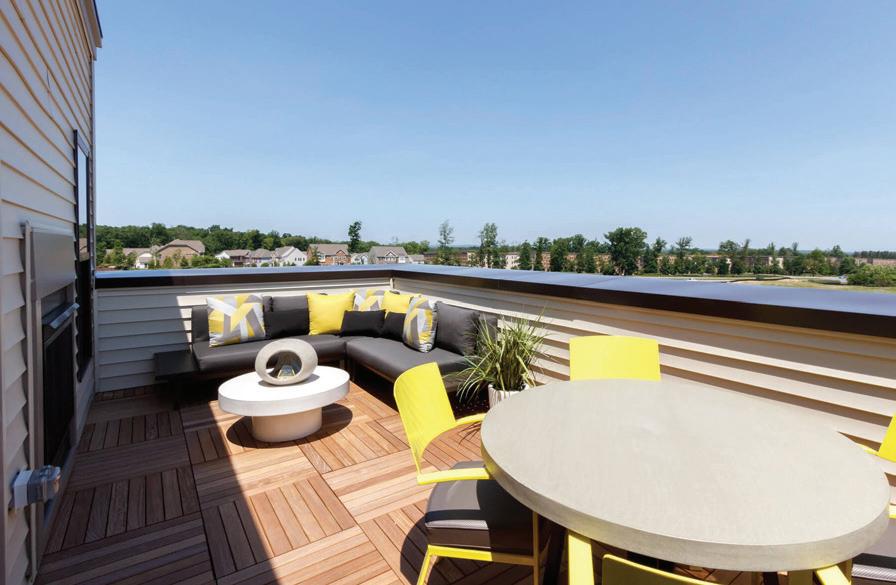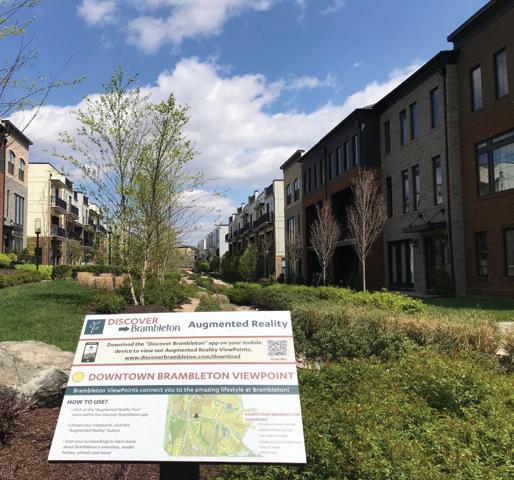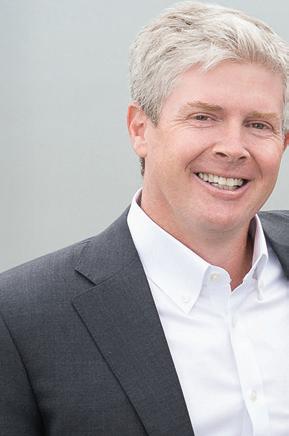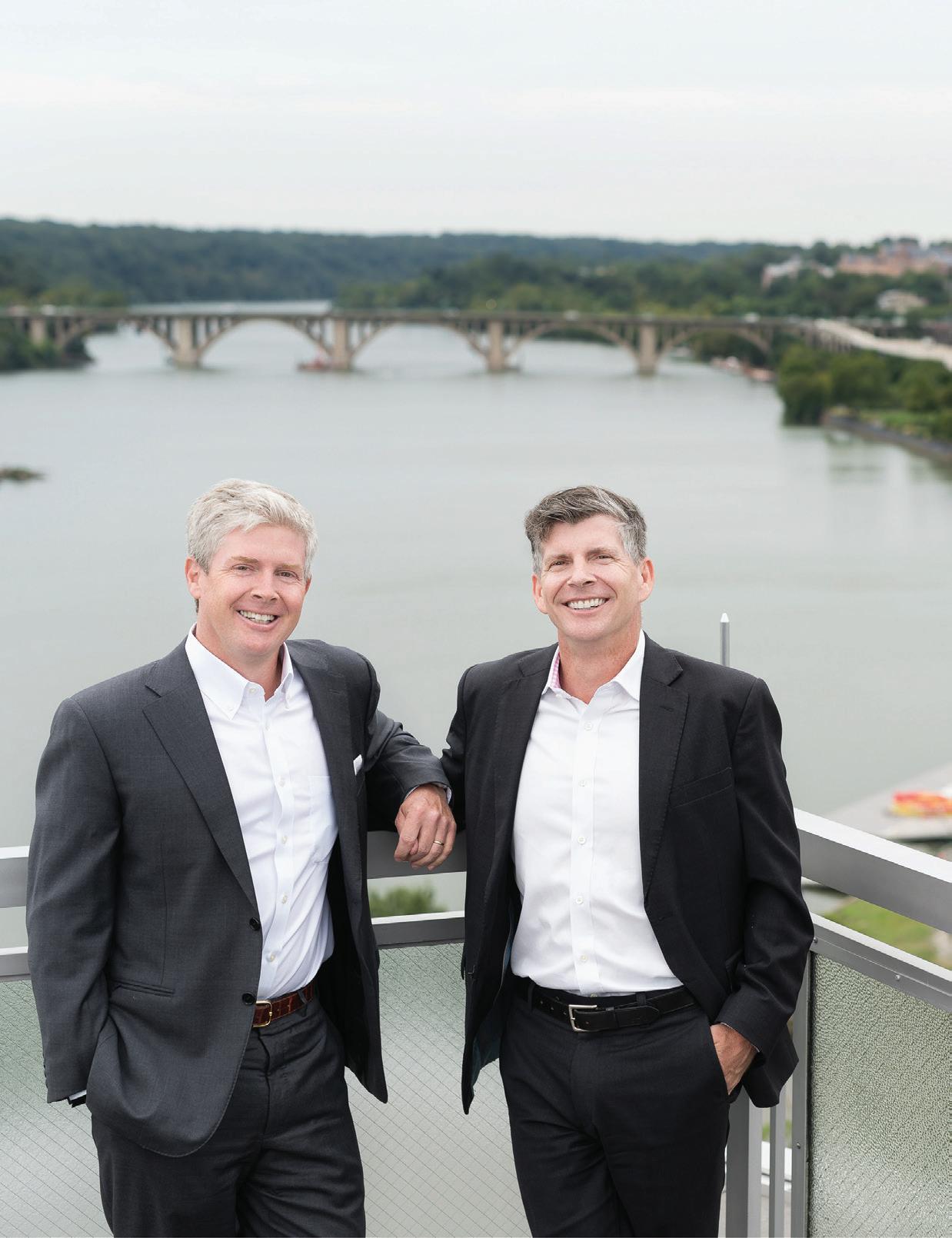LearningHard Way the
Stories and takeaways from the headlong plunge into distance learning

Stories and takeaways from the headlong plunge into distance learning


Whether it’s your daily walk or meeting up on the weekend, getting together makes the heart happy. We love providing a space that also supports our community. Let’s strengthen the heart of our hometown— let’s get together again.
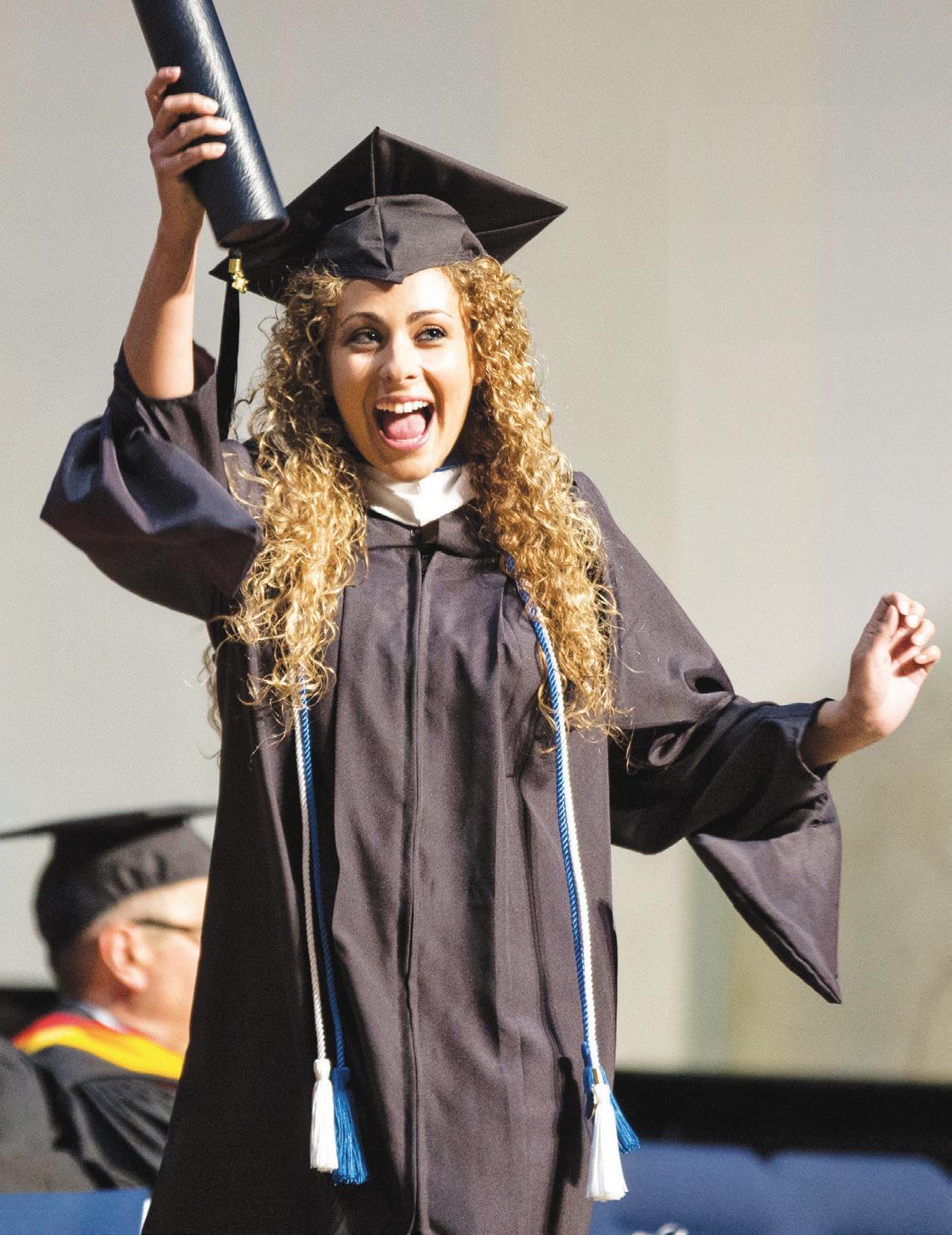



When the path ahead is undefined, you need a guide you can trust. You need someone who understands what success means to you, and knows how to get there. Evermay advisors have two areas of expertise: financial investment, and our clients. We won’t just walk the path with you—we’ll help you forge your own.



Now More Than Ever.





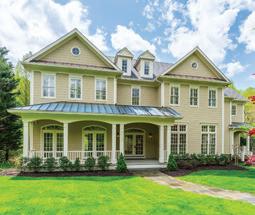







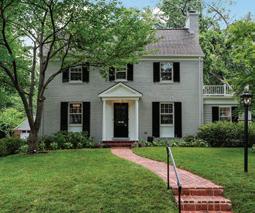








The N ationʼs Fittest Community Deser ves the Cleanest, Safest Gym.


















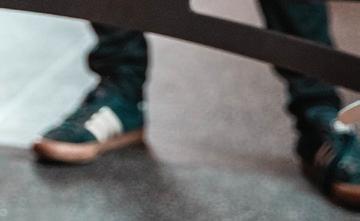



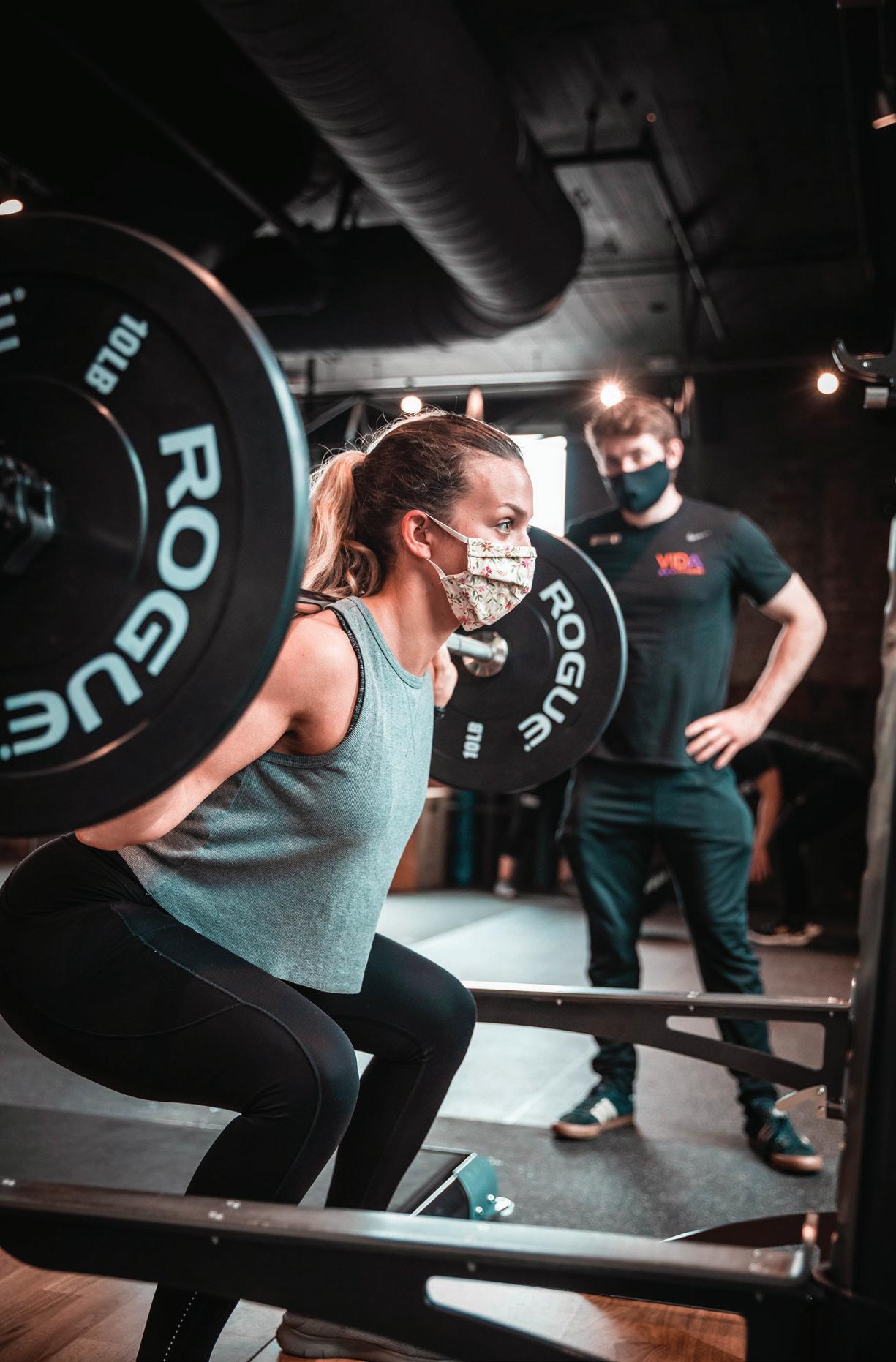
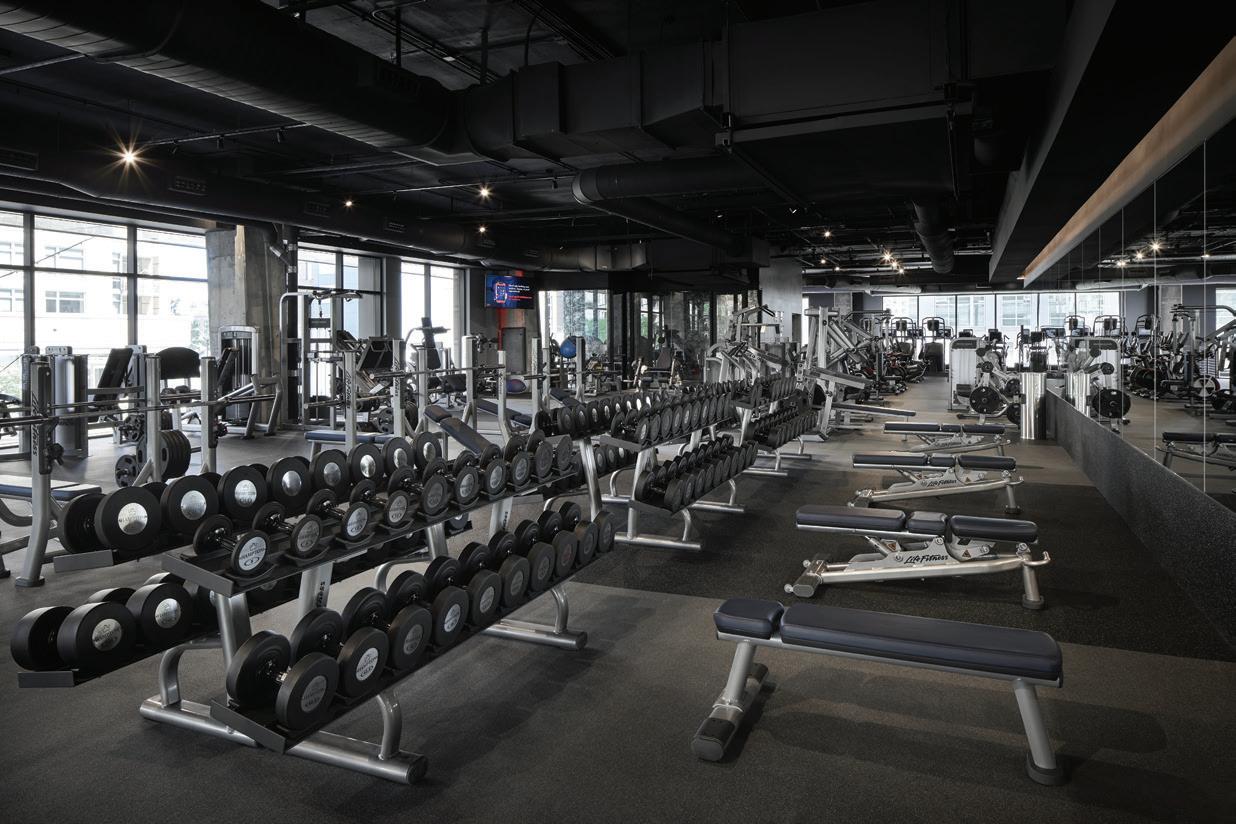
your visit at


VIDA Fitness at Ballston is now open with enhanced safety, cleaning, and social distancing protocols. Our facility is safer than a trip to the grocery store, and weʼre ready to help you achieve your fitness goals. Now more than ever, people need the physical and mental benefits of exercise to boost the immune system, alleviate stress, and facilitate a restful nightʼs sleep.
With over 30,000 square feet and three stories, VIDA Fitness offers innovative cardio and strength equipment, Olympic lifting platforms, five studios for group fitness, yoga, Pilates programming, and our boutique HIIT training studio, SweatBox. Plus, you'll have access to our registered dietitians, luxurious locker rooms, and the award-winning Aura spa.
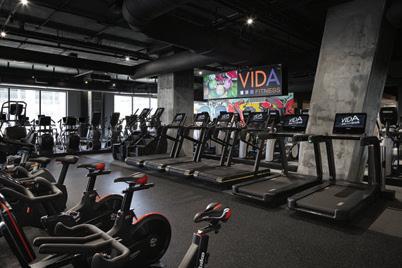
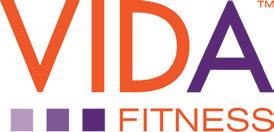
Fitness at Ballston 40 40 W ilson Blvd.
parking for our members in t he garage under t he building
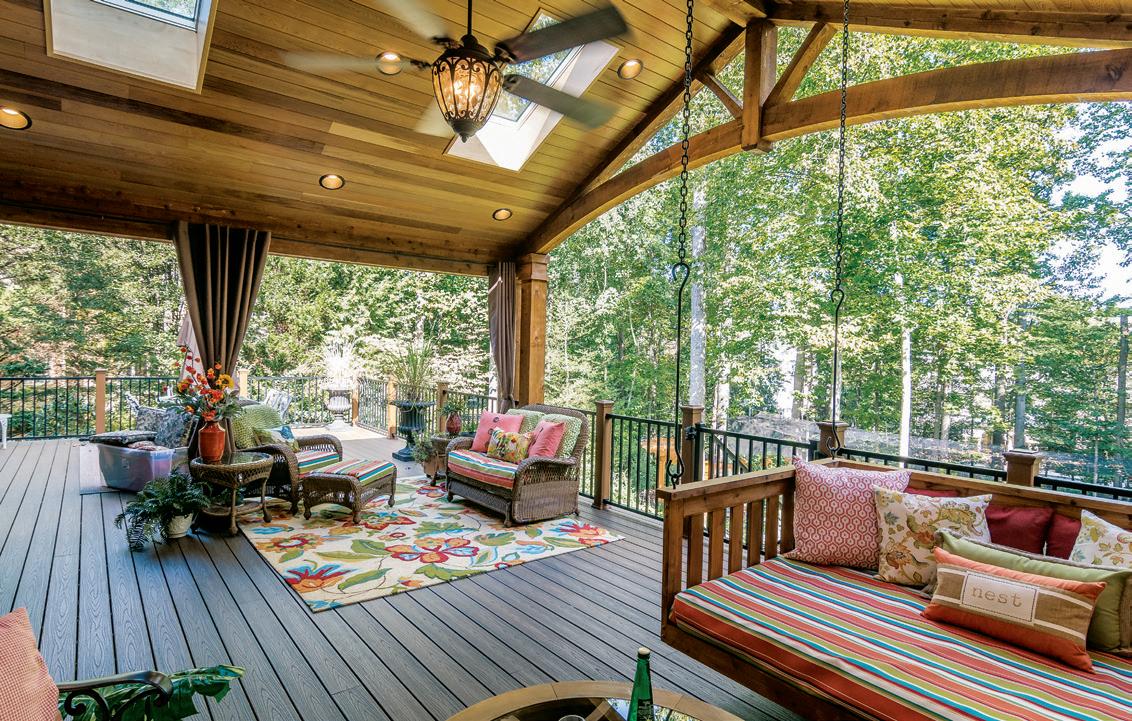
48
No one was prepared for the sudden plunge into distance learning at the end of the 2019-20 school year. Here’s how it played out for a handful of local families, and how their diverse experiences are shaping what happens next.
Where Arlington’s Class of 2020 applied to college and where they were accepted.
With the arrival of Covid-19, restaurateur Dina Daniel had to make some tough decisions to keep her business afloat. Its fate still hangs in the balance.
HOME
84
Will life in the age of coronavirus alter our definitions of home and the kinds of spaces we need? We asked local experts to weigh in.

Many things have changed, including how we live, work and learn. Through it all, the highest quality healthcare has always been right here. Virginia Hospital Center provides you and your family personalized healthcare, convenient face-to-face & Telehealth Visits, and informative online health education. Find a Virginia Hospital Center physician at virginiahospitalcenter.com/doctors.

Positive
and uplifting
Thoughts on structural racism, white privilege and trauma, from our Race & Equity essay series, a community
After the death of George Floyd, Arlingtonians turned out in droves for a series of Black Lives Matter protests. Meet the couple who organized them.
92 Great Spaces
It was a den. Now it’s a multipurpose room that does triple duty.
108 Prime Numbers
The area’s most expensive home sales, and real-estate trends by ZIP code.
114 Home Plate
A local chef parlays his Southern roots into a new restaurant in Arlington Heights.
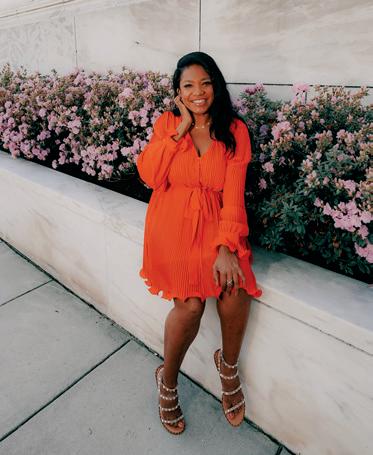
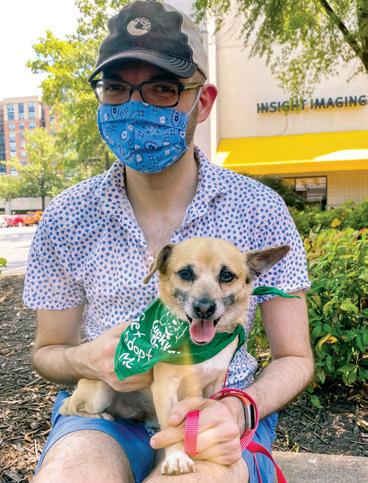
Globally inspired jewelry, whimsical kids’ books and furniture that’s built to last for generations—all made local.
120
White baseball teams weren’t the only game in town in the first half of the 20th century.















 Tapfuma Chibaya Research Analyst
Tapfuma Chibaya Research Analyst







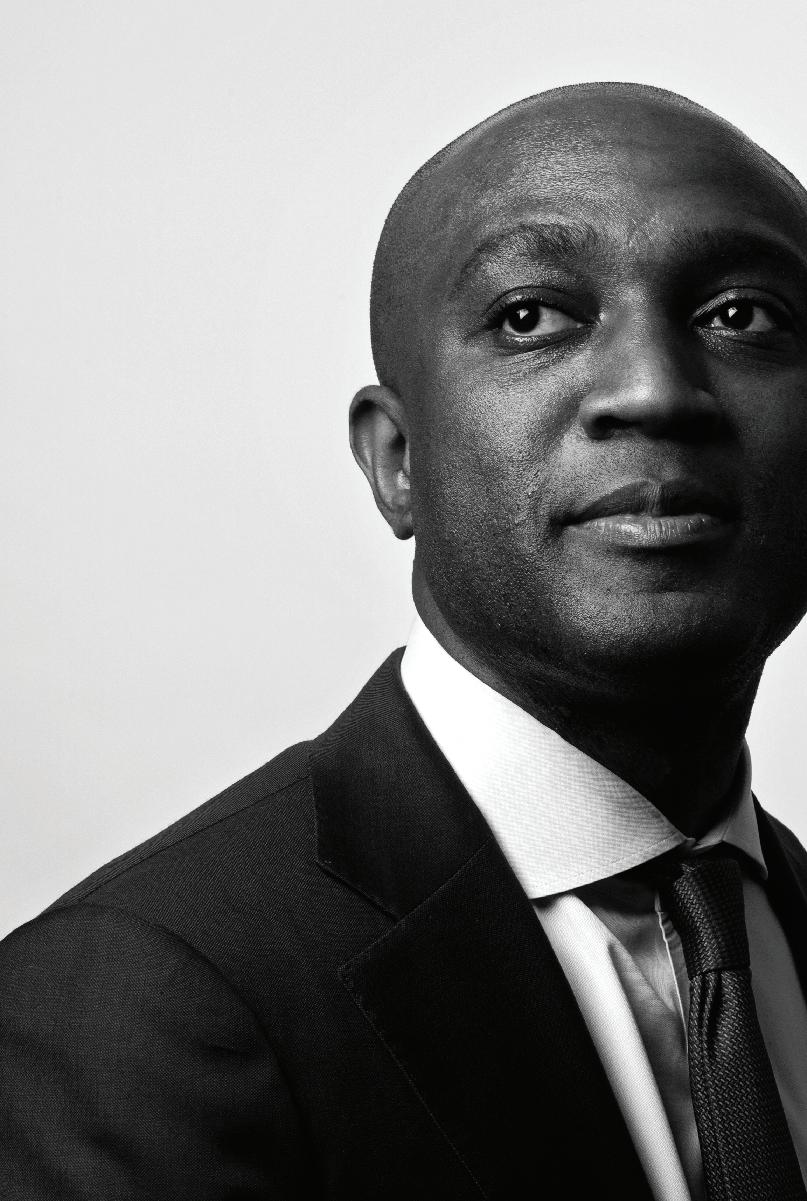










Thematic Investing is a progressive departure from common Wall Street practice. It examines how the world is changing, determines which companies will be advantaged, and invests accordingly. Thematic Investing anticipates where the world is going, not where it has been.
To learn more, call Stacy Murchison at 240.497.5008 or visit us online at ChevyChaseTrust.com.


WHAT DID MY KIDS learn last spring after the schools closed and we scrambled to adapt to distance learning? Julie, who is 12, would like to become a surgeon after binge-watching Grey’s Anatomy for weeks on end. Katherine, 15, is poised to become a personal trainer on YouTube after discovering Chloe Ting’s workout videos. She’s in great shape now, but the jumping rope at midnight is getting old. And Caroline, who is 17? I’m not sure what she learned, but she seemed thrilled to spend a lot of time alone in her room. Her senior superlative ought to be “Most Likely to Thrive in Solitary Confinement.”
Like many families, my wife and I are working from home. We struggled to support our kids’ academics and help them figure out their assignments and priorities while navigating our own Zoom meetings and phone calls. With three children and six or seven teachers per kid, there were days when we received 15 to 20 emails from their teachers. Mondays were the hardest to manage as teachers laid out plans for the week. It was like drinking from a fire hose. I started moving the emails, many of them unread, into a folder with the intention of reading them later, but with disruptions in my business and distractions at home, I did not read many of them. It is safe to say the spring was chaos, and I’m still not sure what my kids learned.
Do I blame the schools? Could they have pivoted (oh, how I hate that word now) to live (aka “synchronous”) distance learning? If parents are on Zoom calls all day, why can’t the teachers and kids do the same thing? These are valid questions. But ask yourselves: When was the last time we had a global pandemic and had to shut everything down? With large school systems—APS has 28,000 students and FCPS has 188,000!—implementing an entirely new way of teaching overnight was extremely difficult for administrators, teachers and students. It also raised a lot of questions around equity and access.
For our cover story, “Learning the Hard Way,” writer Adrienne Wichard-Edds checked in with a dozen local households to give you a sense of what different students and parents were dealing with during the fourth quarter of the school year in Arlington, McLean and Falls Church. There are similar themes, but no two family experiences were the same. The story also examines how public schools dealt with an unprecedented situation, some of the challenges they faced and why administrators made the decisions they made.
As the start of the 2020-21 school year approaches, we are concerned and hopeful—concerned that the fall will be a repeat of the spring, and hopeful that distance learning will go much more smoothly. Our fingers are crossed.
Before I close, I would like to draw your attention to our Race & Equity essay series, an online community voices project we launched in June. We are highlighting several essays in this issue, starting on page 22. I encourage you to read them (and find many more at arlingtonmagazine.com/category/race-andequity/) and consider sharing your personal experiences with race, racism and equity. All perspectives are welcome. Send submissions to editorial@ arlingtonmagazine.com.
I hope you find our September/October issue informative and helpful. As always, we welcome your feedback and ideas. I can be reached at greg.hamilton@ arlingtonmagazine.com. Our editor, Jenny, can be reached at jenny.sullivan@arlingtonmagazine.com. Thank you for reading Arlington Magazine.
 Greg Hamilton Publisher
Greg Hamilton Publisher
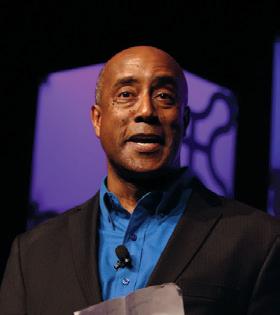
LIVES IN: Arlington, with his wife, Lisa Merman, and two daughters—one a rising sophomore at the University of Wisconsin-Madison; the other a rising senior at H-B Woodlawn Secondary Program
IN THIS ISSUE: Writes about his personal experiences as a Black man in our Race & Equity essay series
DAY JOB: President of SIIA (the Software & Information Industry Association) in Washington, D.C.
PASSION PROJECT: Sits on the board of R.E.A.D. (readearlyanddaily.org), an Arlington nonprofit devoted to ensuring that “babies and young children have new, quality, culturally relevant books of their own that are mirrors and windows into their everyday lives and communities”
SIDE GIG: Plays electric and acoustic guitar, and ukulele, for the Arlington dad band Manther, a six-member rock “collective” that formed about a decade ago and has been spotted at Cowboy Cafe, Rhodeside Grill and the late, great IOTA. The band donates proceeds from performances to various charities. Their motto: The more you drink, the better we sound.

LIVES IN: Arlington, with her husband, Kevin Edds, and two sons—one a sophomore at Washington-Liberty High School; the other a senior at H-B Woodlawn
IN THIS ISSUE: Penned our cover story on distance learning, for which she interviewed a dozen families about their experiences with remote instruction at the end of the last school year
ALSO WRITES FOR: The Washington Post, Washingtonian and Your Teen Magazine about parenting and education topics, and for Billboard and The Hollywood Reporter about pop culture
CONTINUING EDUCATION: “In 2016, I took a cultural competency course through Challenging Racism, one of Arlington’s great unsung resources. It made me keenly aware of how I’ve benefited from education systems that are inherently racist. I vowed to do what I could to help dismantle some of the racism that’s baked into education, joining forces with fellow Challenging Racism alumna and writer Ami Foster to establish The Essay Coaches (theessaycoaches.com). We help high schoolers of all cultural and socioeconomic backgrounds navigate the path to college and tell their stories on college applications.”
PUBLISHER & PARTNER
Greg Hamilton
PARTNER
Steve Hull
EDITOR
Jenny Sullivan
ASSOCIATE PUBLISHER
Susan Hull
ART DIRECTOR
Laura Goode
DESIGNER
Kari Mason
WEB PRODUCER
Erin Roby
DINING CRITIC
David Hagedorn
COPY EDITOR
Sandy Fleishman
WRITERS
Matt Blitz, Tim Hughes, Jeff Joseph, Rachael Keeney, Lisa Lednicer, Jennifer Sergent, Angelica Talan, Adrienne Wichard-Edds, Evelyn Wong
PHOTOGRAPHERS & ILLUSTRATORS
Stephanie Bragg, Skip Brown, Dariush Watercolors, Heather Fuentes, Lisa Helfert, Anice Hoachlander, Geoffrey Hodgdon, Chris Langford, Tony J. Lewis, Brianna Rapp, Angela Newton Roy, Hillary Schwab, Jonathan Timmes, Albert “Pootie” Ting, Joseph Tran, Eli Turner, Michael Ventura, Lloyd Wolf, Darko Zagar Photography
ADVERTISING ACCOUNT EXECUTIVES
Traci Ball, Alison York
FINANCE MANAGER
Jill Trone
AD PRODUCTION COORDINATOR
Meghan K. Murphy
MARKETING ASSOCIATE
Leigh McDonald
CUSTOMER SERVICE MANAGER
Onecia Ribeiro
Arlington Magazine is published six times a year by Greenbrier Media LLC © 2020 1319 N. Greenbrier St., Arlington, VA 22205
Subscription price: $19.95
To subscribe: Fill out the card between pages 88 and 89, or visit arlingtonmagazine.com.
For advertising information: Call 703-534-0519 or visit arlingtonmagazine.com.
Letters to the Editor: We want to hear from you. Please email jenny.sullivan@arlingtonmagazine.com
How to contact us:
Editorial: editorial@arlingtonmagazine.com
Subscriptions: customerservice@arlingtonmagazine.com
Advertising: advertising@arlingtonmagazine.com
Website: website@arlingtonmagazine.com
Arlington Magazine/ArlingtonMagazine.com
1319 N. Greenbrier St., Arlington, VA 22205
Phone: 703-534-0519


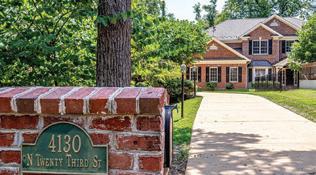







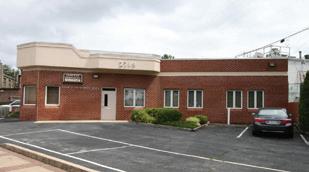
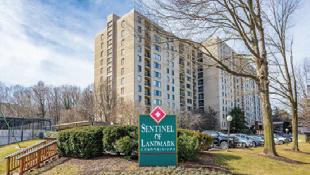
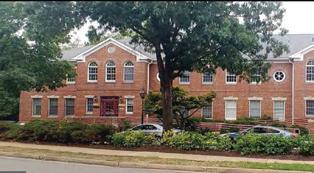
Abolitionist Sojourner Truth spent a year at Freedman’s Village in Arlington.
Editor’s Note: At press time the following events were still moving ahead as scheduled. Check the latest status before you go. An asterisk (*) indicates that the event is all or partially online.
THROUGH SEPT. 7
By Proxy*
Arlington Arts Center
Solitude and solidarity—these are among the Covid-induced phenomena this online exhibit seeks to capture by using (and, in some cases, critiquing) online platforms such as Zoom, Instagram and YouTube. Featured artists include Gal Cohen, Maps Glover, Jeremy Hutchison, Mariah Anne Johnson, Ivetta Sunyoung Kang and My Husband. Free. arlingtonartscenter.org
SEPT. 4-27
Art in Movement*
Del Ray Artisans Gallery

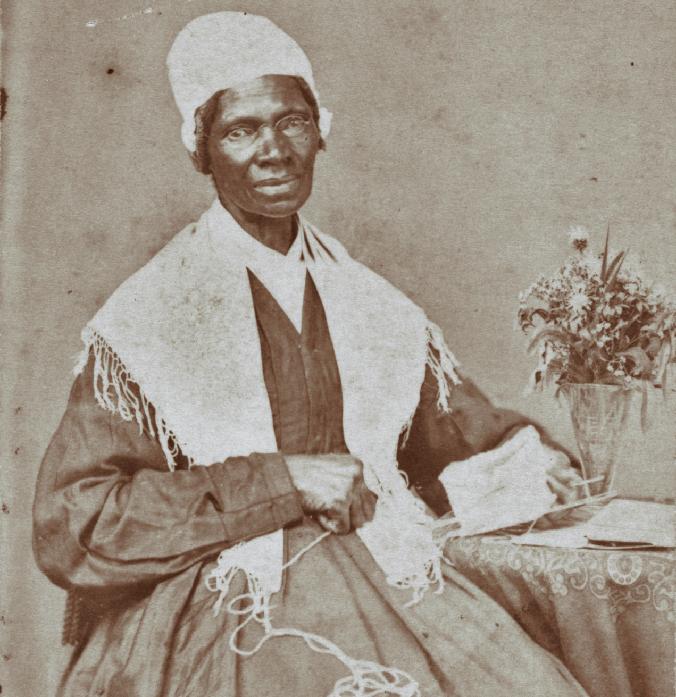

The museum was closed during quarantine, but it reopened to the public on July 9. Mask up and pay a visit to learn more about our area’s rich and complex African-American history, from the Civil War and Reconstruction to school desegregation, the lunch-counter sit-ins of the 1960s, and the legacy of Arlington neighborhoods like Halls Hill and Queen City. Admission is free. 3108 Columbia Pike, mezzanine floor, Arlington, arlingtonblackheritage.org
Anyone with two left feet, or who has been skipping their ab workout, will agree: Belly dancing is art. This exhibit features a belly dance souk—an Arab marketplace containing costumes and accessories— along with paintings inspired by the dance, and even a live performance, to be recorded and shared on social media. Gallery hours Thursday and Friday, noon6 p.m., and Saturday, noon-4 p.m. Free. 2704 Mount Vernon Ave., Alexandria, delrayartisans.org
SEPT. 9-OCT. 4
The Art League
Have you struggled to nd the words to describe this unprecedented period in modern history? Perhaps that’s because words alone cannot do it justice. See artists’ creative interpretations of 2020 in this online exhibit. Free. theartleague.org



Every day can bring changes, challenges and opportunities. Some are big, others small, but all of them can also alter your personal or business financial goals and priorities. What can make it all easier is a true financial partner. Someone who really listens, understands and then creates solutions with you, from managing your personal finances to running your business. That’s real banking for real life. And real business. Call 833.987.REAL or visit sandyspringbank.com/real.
SEPT. 17-NOV. 14
Sculpture NOW 2020
McLean Project for the Arts
The floor. The ceilings. The walls. In this non-thematic exhibit, 3D sculptures can be found freestanding or hung on various surfaces. Free. 1234 Ingleside Ave., McLean, mpaart.org
SEPT. 19-OCT. 25
Flight by Greg Stewart*
Arlington Art Truck
Quarantine provided ample time for us to stop and take in our surroundings. If, in so doing, you discovered an appreciation for our avian friends, this “art activation” is up your alley. It stars the birds that will fly by us this fall. Free. Check website for updates. arlingtonva.us/arlington-art-truck/
OCT. 2-NOV. 1
Living in a Mini World
Del Ray Artisans Gallery
The pieces in this exhibit take “attention to detail” to a whole new level. Whether they’re 3D works, paintings or fiber art creations, all tiny-world depictions must be smaller than 5 by 7 inches. Opening reception Oct. 2 from 7-9 p.m. Free. Gallery hours Thursday and Friday, noon-6 p.m., and Saturday, noon-4 p.m. 2704 Mount Vernon Ave., Alexandria, delrayartisans.org
SEPT. 11, 7:30 P.M.
Edwin McCain
The Birchmere
Originally booked for a June show, the singer-songwriter is now scheduled to visit The Birchmere in the fall, gracing audiences with classics like “I’ll Be” and “I Could Not Ask for More.” June 9 tickets will be honored and additional tickets are on sale now. $35. 3701 Mount Vernon Ave., Alexandria, birchmere.com
SEPT. 19, 8 P.M.
All ’80s All Night
Jammin Java
Find yourself wanting to relive happier times? Take a trip down memory lane by belting out your ’80s faves and competing against other area residents in “Name That Tune” and costume contests. $12. 227 Maple Ave. E., Vienna, jamminjava.com
OCT. 1, 8 P.M.
Tenille Townes
Jammin Java
The Canadian-born, Nashville-based, rising country singer will perform the best of her nostalgia-inducing debut album, The Lemonade Stand. $15-$20. 227 Maple Ave. E., Vienna, jamminjava.com
OCT. 3, 9 P.M.
Melodime
State Theatre
Sam Hunt, Eli Young Band, A Thousand Horses—these are just a few of the performers with whom Melodime has shared the stage. Now the band is taking that stage for the last time, saying farewell with a country-rock send-off. $17-$20. 220 N. Washington St., Falls Church, thestatetheatre.com
OCT. 16, 9 P.M.
Trial by Fire Journey Tribute
State Theatre
“Don’t Stop Believin’” may be the anthem we all need right now, and tribute band Trial by Fire—named for a Journey tour that never happened due to Steve Perry sustaining an injury—stands ready to belt it out. $15-$18. 220 N. Washington St., Falls Church, thestatetheatre.com
BEGINS SEPT. 4
Fall for the Book Festival*
The usual four-day, in-person literary festival has been canceled, but the alternative may be just as enticing: a season-long celebration featuring #FallfortheBookFridays sessions at noon and other special events. Headliners include There There author Tommy Orange and fiction writer Rainbow Rowell, author of Wayward Son. Local booksellers will have festival books available for purchase. Check website for event dates and times. Free. fallforthebook.org/virtual-festival
OCT. 15, 7 P.M.
Jess Walter Discusses
The Cold Millions*
One More Page Books
Jess Walter’s first novel, Beautiful Ruins, seized the No. 1 spot on The New York
16 September/October 2020 n ArlingtonMagazine.com
Times’ list of best-sellers. Will his latest, The Cold Millions, follow in its footsteps? Enjoy a sneak peek during this online author talk. Free. onemorepagebooks.com
OCT. 22, 7 P.M.
Arlington Reads: Colson Whitehead*
Arlington Public Library
The acclaimed author’s 2019 book, The Nickel Boys, is an exploration of life under Jim Crow, told from the perspective of two boys in one of the country’s most notorious juvenile correction institutions. Listen in on Whitehead’s conversation with library director Diane Kresh during this Facebook Live session. Advance registration required. arlingtonva.libcal.com/event/6466658
SEPT. 1
Wolf Trap
Written while Viktor Ullman was in a Nazi concentration camp, this opera (available for streaming) uses blues, Bach and German folk tunes to satirically tell a tale about what happens when a leader declares war on everyone. Free. wolftrap.org
SEPT. 18-OCT. 11
King Lear
Synetic Theater
King Lear is one of Synetic Theater’s most well-known Shakespeare productions, having been nominated for 15 Helen Hayes awards and called a “spectral beauty” by The Washington Post. This encore performance will begin with a look back at the theater’s 2011 production. Check website for times and ticket prices. 1800 S. Bell St., Arlington, synetictheater.org
OCT. 18
In the hope of shattering the stigma surrounding mental illness and substance abuse, the Leesburg-based nonprofit This Is My Brave has hosted events all across the country, inviting participants to share their experiences via song, poetry, essays and more. In-person events have been canceled, but audiences can stream this
year’s D.C. event for free. Donations are appreciated. thisismybrave.org
OCT. 23, 7 P.M.
Halloween Whodunit
Jammin Java
Halloween is all about ghouls and goblins and getting your adrenaline pumping, but who’s to say it can’t be comical, too? Experience the best of both worlds at this atypical murder mystery party, where you’re encouraged to come in costume. $25. 227 Maple Ave. E., Vienna, jamminjava.com
AUG. 21-SEPT. 14
ASPIRE HOUSE:
McLean 2020*
Looking for some home design inspiration? Built by Artisan Builders with architecture by Harrison Design (a contemporary homage to Monticello), this upscale concept home in McLean will showcase rooms and vignettes by 30 different interior designers, many from the D.C. area. Timed tours with occupancy limits will take place Wednesday-Friday, 10 a.m.-3 p.m., and Saturdays and Sundays, 11 a.m.-5 p.m. $45-$50. Virtual tours also available. 952 Mackall Farms Lane, McLean, aspireshowhouse.com/mclean
SEPT. 19, 11 A.M.-10 P.M.
5th Annual Oktoberfest Courthaus Social Oktoberfest 2020 has of cially been canceled in Munich. But if you love food, craft beer and cornhole, all hope is not lost. Grab your friends—furry ones too!— and safely reenact the festival closer to home in Courthouse. Entry is free. 2300 Clarendon Boulevard, facebook.com/ events/873404436428753/
SEPT. 19-20, 9 A.M.-5 P.M.
Colonial Market & Fair
George Washington’s Mount Vernon It’s never too early to stock up on unique gifts for friends and family. Head to our rst president’s Virginia home to nd artisan wares and edible treats—including demos of ice cream and chocolate being made in Colonial fashion. Social distancing guidelines will be observed, masks are required and the historic site has strategically located hand
sanitizer stations. Price of fair included in admission. 3200 Mount Vernon Memorial Highway, Mount Vernon, mountvernon.org
SEPT. 26, 11 A.M.-6 P.M.
Clarendon Day 2020*
In lieu of a centrally located gathering, the 2020 festival will feature a bevy of outdoor activities—a chalk art contest, scavenger hunt—scattered throughout the community, plus a virtual market, concerts and other online events to support local businesses. Free. clarendon.org/clarendon-day
SEPT. 27
McLean Pet Fest*
This year’s pet fest will unfold a little differently (it’s virtual) but promises to be no less entertaining. Online attendees will nd videos of area pets doing tricks and being goofy, and can get their questions answered by groomers, veterinarians and other local professionals. mcleancenter.org
OCT. 11-18
In the course of its 36-year history, the Army Ten-Miler Race and Expo has never faced an obstacle quite like Covid-19. This year’s race is now virtual, and runners will have a week to complete their runs using a tracking app. Proceeds ($59 per individual runner) bene t Soldier Morale, Welfare and Recreation programs. The festivities will also include a virtual 400-meter run for kids ages 4-10. armytenmiler.com
OCT. 24-25, 9 A.M.-5 P.M.
George Washington’s Mount Vernon Mount Vernon is taking extra precautions to keep its visitors healthy—including social distance markers, hand sanitizer stations, and mask requirements—which means your family can safely celebrate fall at the historic estate’s annual harvest festival. The event promises Colonial games, a straw-bale maze and more. Festival price included in admission. 3200 Mount Vernon Memorial Highway, Mount Vernon, mountvernon.org
OCT. 25, 1-5 P.M.
McLean Community Center
Happy hour didn’t end with the pandemic, and neither have wine tastings. Pick up
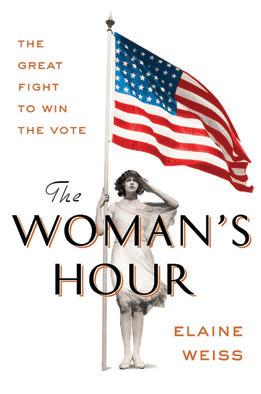

SEPT. 20, 7 P.M.
Join Arlington Public Library director Diane Kresh for a conversation with the award-winning journalist and writer. Weiss’ book about the women’s suffrage movement, The Woman’s Hour: The Great Fight to Win the Vote, follows a handful of remarkable women who led their respective forces into the battle for civil rights. Advance registration is required for this Facebook Live event. arlingtonva.libcal.com/ event/6837703
the recommended bottles and tune in to hear what an expert has to say about each vintage, then download the accompanying documents to learn more about each wine’s grape, terroir and more. Free. mcleancenter.org
OCT. 25
This year’s marathon, 10K, 50K and MCM Semper Fun Mile are now virtual. All runs must be completed between Oct. 1 and Nov. 10. Details at marinemarathon.com.
Got a calendar event we should know about? Submit it to editorial@ arlingtonmagazine.com


Covid-19, for all of its stressors, has yielded a few positive developments—such as homebound families turning out in droves to adopt new pets who might otherwise be euthanized. Arlington-based Lucky Dog Animal Rescue has seen its monthly intake of animals more than double, and since March 16 has rescued and placed more than 1,600 dogs and cats in forever homes.
Adoption applications are submitted online, adopters are vetted virtually, and the nonprofit has a system for handing off pets to their new owners without any physical contact between humans. Recently it’s begun hosting a few socially distanced, outdoor adoption events (for those who’ve completed applications) with limited capacity and strict safety protocols.
“Most of the pets we rescue are owner-surrendered or strays,” says Lucky Dog spokesperson Emily Jagdmann. “We do know that a lot of animals are being surrendered due to economic hardship, for instance if their owners lose their jobs.”
Founded by Mirah Horowitz—a onetime U.S. Supreme Court law clerk for Justice Stephen Breyer— Lucky Dog has saved more than 17,500 abandoned or neglected pets since its inception in 2009.
The group rescues animals from high-kill shelters in the rural South and transports them to the D.C. area for adoption, relying on an army of more than 1,500 active volunteers who foster pets in their homes, drive transport vehicles and manage administrative projects. luckydoganimalrescue.org
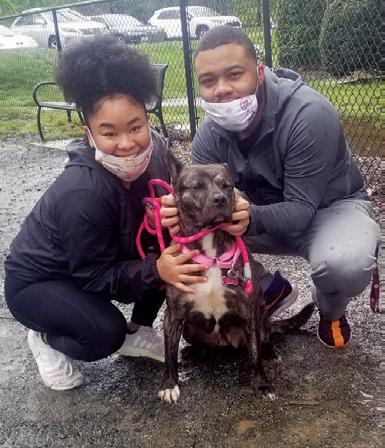

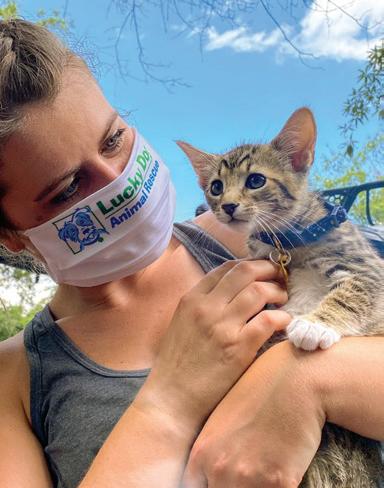

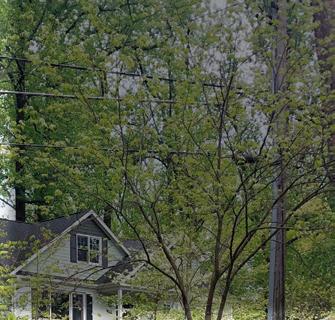


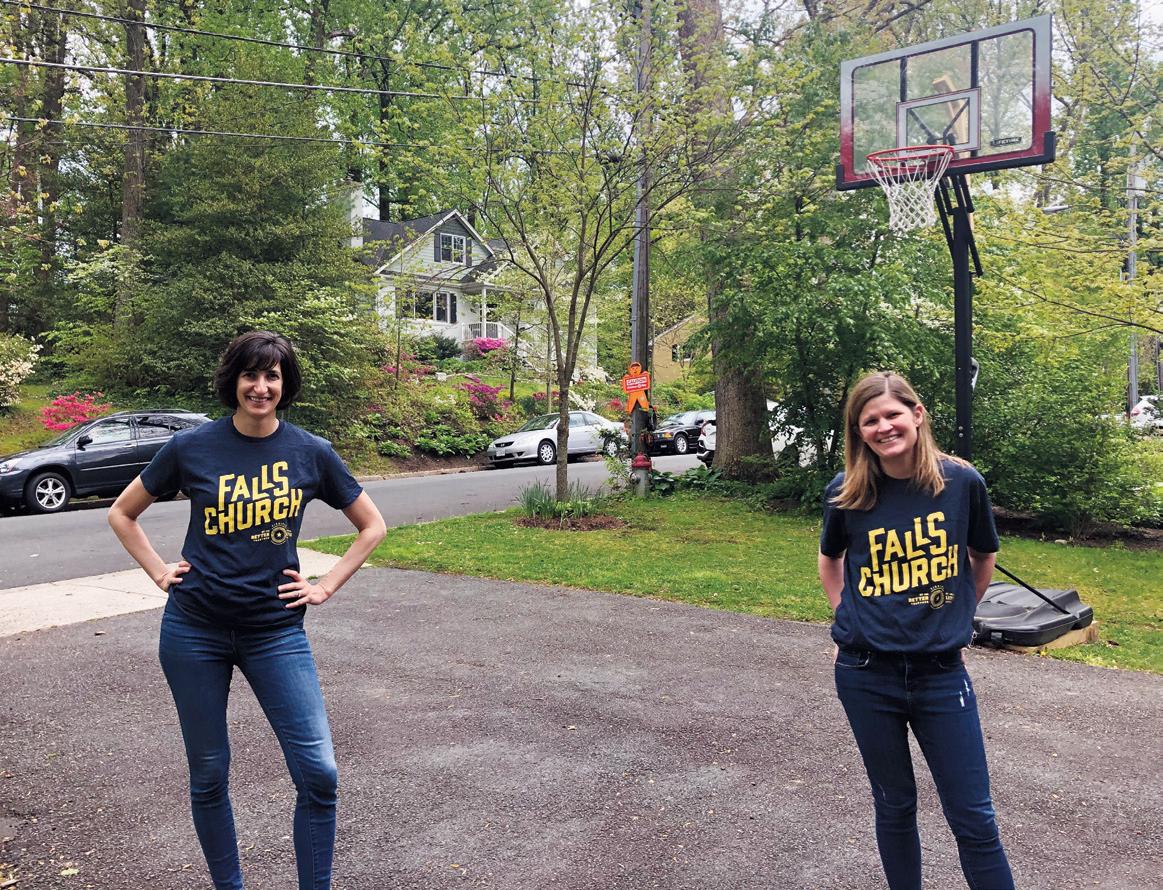
When is a hometown pride T-shirt more than a T-shirt? When you sell 2,170 of them (in a city with an estimated population of 15,000, no less) and raise nearly $36,000 for the community, proving that the shirt’s message isn’t an empty one.
Falls Church residents Suzanne Hladky and Adena Williams did exactly that in April and May with a pop-up sale of their limited-run “Falls Church, Better Together” T-shirts, using the proceeds to
purchase gift cards from 65 local small businesses. The gift cards were then distributed to individuals and families in need through Food for Others, the Falls Church Education Foundation Family Assistance Fund, Operation Pathways, Homestretch and several other area nonprofits.
“In the middle of a really difficult time, it made us feel like we were doing something,” Williams says, crediting the idea
to a similar effort they’d seen on Facebook in San Antonio, Texas.
“We had no idea it would impact so many people. We thought we’d sell maybe 50 shirts. It sounds hokey, but when things feel so overwhelming, to be able to go into a small business and drop $500 feels like a big deal.”
If our math is right, some 14% of Little City dwellers are now proud owners of those hometown shirts. Better together, indeed.

What happens when a volunteer tasked with monitoring a child’s safety and well-being cannot see that child in person?
“The Covid-19 pandemic has created a perfect, tragic storm for vulnerable children,” says Amy Wilker, director of the Court Appointed Special Advocate (CASA) program in Arlington and Alexandria. Risk factors for abuse, such as economic hardship and parental stress, are on the rise, while children have been isolated from teachers and other adults who would normally notice and report signs of distress.
CASA provides trained volunteers appointed by local judges to serve as a direct voice for children in the juvenile court system. During Gov. Ralph
Northam’s stay-in-place order, advocates were not permitted to do in-person visits, so they had to get creative.
One volunteer was able to stay in contact with a teenager in foster care using FaceTime. Together, they began taking weekly “virtual field trips” based on the teen’s interests.
Another, appointed to advocate for a newborn exposed to cocaine, arranged for a virtual tour of the baby’s foster home to see where she sleeps, eats and hangs out while both foster parents telework. The goal is for the infant to eventually return to her biological parents, but visits were suspended due to Covid-19. So was the mother’s substance-abuse treatment.
“It can feel devastating when in-person bonding between baby and
parents can’t happen,” says CASA case supervisor Jacky Jenks.
Through virtual treatment team meetings, the parents were able to see and talk to their baby via video. The volunteer helped the mother identify online support groups and taught her how to take a screenshot so she could keep a photo of her baby with her.
CASA volunteers have also helped families address problems ranging from food insecurity to technology troubleshooting for distance learning.
Some 15 new CASA volunteers were sworn in virtually in April, and nine more entered training in July.
“While this is a time of uncertainty and fear for all of us,” Wilker says, “it is likely affecting children the most.” scanva.org
Tacos, sloppy joes, mac ’n’ cheese. Many of us still remember looking forward to that special day when the school cafeteria was serving our favorite food for lunch.
When local schools closed in March—and their cafeterias along with them—Good Company Doughnuts & Cafe began offering free weekday lunches to school-age kids on a walk-in basis. As of late July, the restaurant had provided nearly 3,000 such meals.
“We knew a lot of kids get their meals through the school program and wanted to make sure they still had something to eat,” says Charlie Kachadoorian, co-owner of the family- and veteran-owned café, which opened in Ballston in 2019. “We have a big family. My sister has all the recipes we grew up with, and now she makes them for her kids—all the favorites. We just extended that and tried to introduce some healthy stuff, like apple slices, or maybe a tuna sandwich instead of a hot dog.”
In recent months, Good Company has also donated meals to staff in the NICU at Children’s National in Washington, D.C., along with doughnut decorating kits for kids in the hospital’s long-term care unit. It’s now contributing another 34 meals per week to a county-subsidized food program through Volunteer Arlington.
To sweeten the deal (literally), each meal comes with a free doughnut. Kachadoorian says the most popular flavors include classic honey glazed, strawberry glazed, sourdough and the Cocoa Cat, a chocolate cake doughnut made with Black Cat espresso. gocodough.com


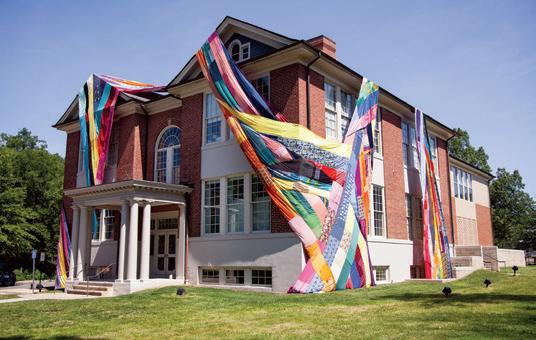
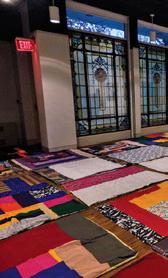

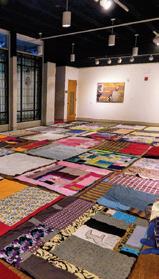

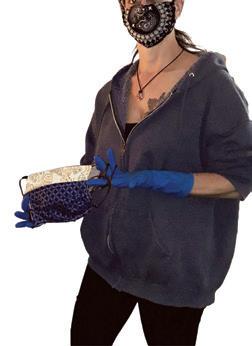
Last summer, the Arlington Arts Center (AAC) mounted City of Threads, a large-scale fabric art installation in which artist Amanda Browder wrapped the exterior of AAC’s Virginia Square building in swaths of colorful fabric. “City of Threads was a communal effort from the beginning,” says AAC executive director Holly Koons, “created from fabric donated by community members that was then sewn by volunteers under the direction of the artist.”
The project’s impact did not end there. Making good use of its ample stash of leftover fabric, local artist Debra Wright and a group of volunteers next began using the remnants to make quilts for the homeless, ultimately donating 75 quilts to two nonprofits in D.C.—the hunger relief effort Food Not Bombs and The Peace House, an anti-racism organization. When the coronavirus arrived in full force in March, Wright still had leftover fabric, so she started making masks. She has donated more than 900 to date, to a variety of good causes. “I couldn’t think of a better way to honor the fabric donors,” Wright says, “than to take their material and turn it into items that are so desperately needed.” debrawrightstudio.com ■
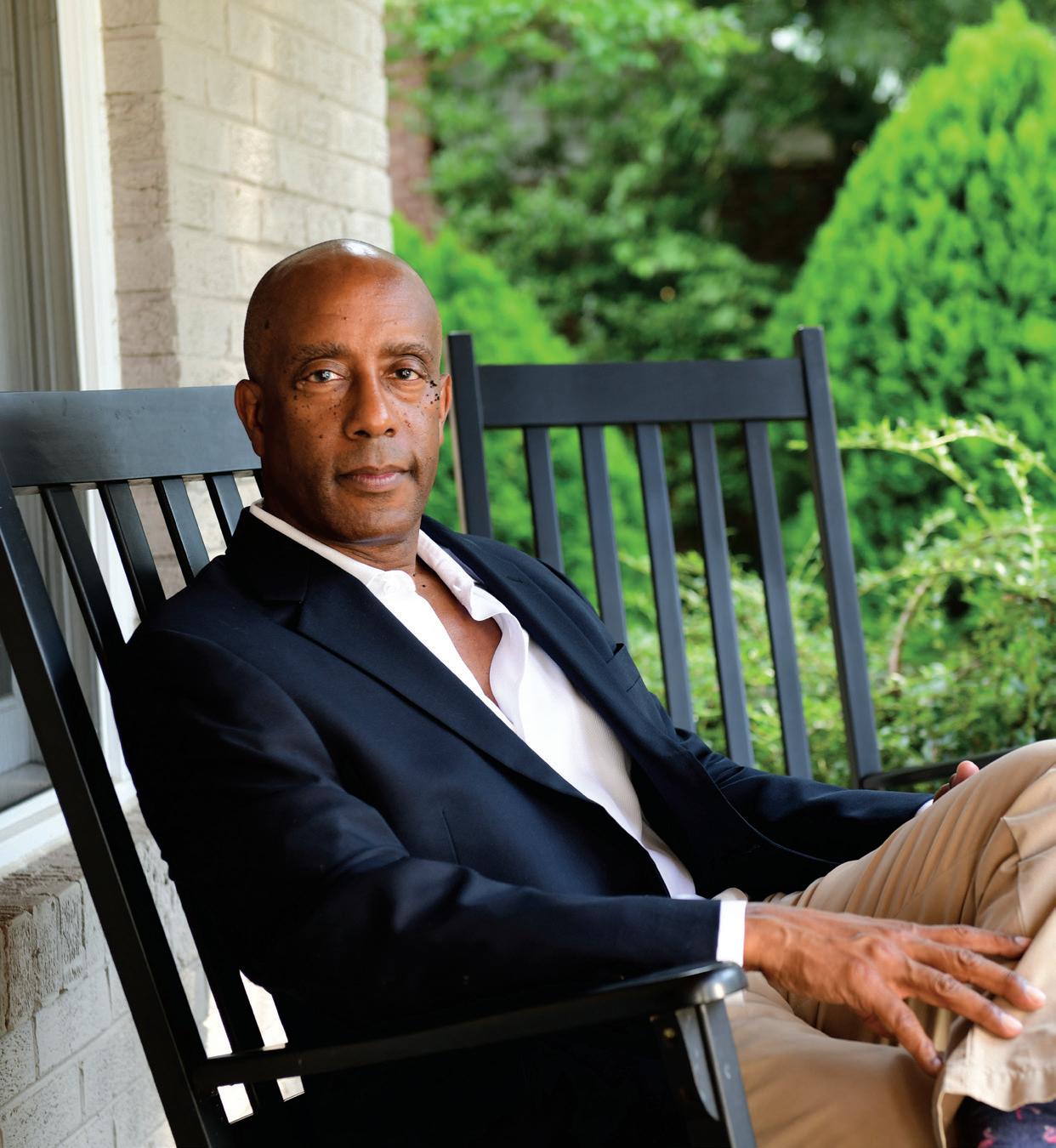

‘You’re
Beyond the violent headlines, people of color also face daily indignities that don’t make news. BY JEFF JOSEPH
“LET’S GET SOME ROPE and string that nigger up!”
A disturbing incident from the Deep South in the early 20th century? Nope. McLean, Virginia, circa 1981.
I was having dinner with three high school friends—all white—when a group of white men a few years older entered the restaurant. They immediately began tossing racial epithets.
Without saying a word, my friends and I rose to leave. One of the antagonists followed us out, kicking me as I walked. Then, without warning, he hit me in the back of the head. As I fell, I could see other members of his group attacking my friends. I rose and ran, my heart racing as I heard those chilling words, about the rope.
I finally reached a gas station and called for help. It seemed like hours passed before my father came to pick me up and we drove back to the restaurant to check on my friends. Thankfully, the police had arrived, and were rounding up the attackers.
Often when we think of racism, we think of dark and horrific incidents like this. Sadly, racism is much more deeply ingrained in our society and often not easily caught on video. Police violence grabs the headlines, but the daily indignities faced by people of color, while less monstrous, are also abhorrent.
Undoubtedly, we have made progress. Yet, too much remains the same.
Forty years after my incident as a high schooler, my teen daughters have heard the N-word tossed around the halls of their mostly white schools and have been harassed on social media.
I am fortunate to have some level of economic and social privilege. I am an Ivy League graduate. I live in a safe neighbor-
hood. I have a stable career. My beautiful biracial family wants for little. But societal and institutionalized racism ignore the misperceived protections of economic success and professional achievement. For example:
On several occasions, as I was mowing my lawn, a white person stopped me to ask how much I charge.
A colleague, upon learning I graduated from an Ivy League school, asked, “So, were you an athlete?”
The physician in charge of the ER misdiagnosed my acute appendicitis because she made certain race-based assumptions. Police have pulled me over in my own neighborhood just to “check my license and registration.”
An astonished, “You are so articulate!” has been a constant refrain across my life. Privilege is not about economic success. It simply means that whites are largely free of the daily burdens we shoulder—the fear of being stopped by police for “driving while Black,” or having my daughter’s elementary school classmate say to her, “I’d free you if you were a slave.”
While attending a recent protest, I overheard an African American father say to his young daughter, “I don’t know why they want to kill us.” Not a conversation likely held in most white households.
Racism does not only materialize in heartbreaking video clips from Minnesota, Missouri, Georgia and Central Park. It happens daily, in incidents large and small. And it happens here in Arlington, circa 2020. n
Jeff Joseph is a 27-year Arlington resident and president of SIIA, a global trade association. He lives for his family, March Madness and performing with Manther, North Arlington’s “least-talented dad band.”
Posting on Facebook is easy. It’s not enough.
BY EVELYN WONGI’M GIVING BIRTH next month. I will be doing so in the immaculate Virginia Hospital Center in North Arlington, located in one of the most affluent places in the country. Meanwhile, across the river in D.C., Black mothers at one point made up 75% of maternal deaths.
My OB-GYN will have come from a practice of all-white physicians. Nationwide, only 5% of doctors are Black. Most of my nurses will be white (80% of registered nurses in the U.S. are white; only 6% are Black). But a
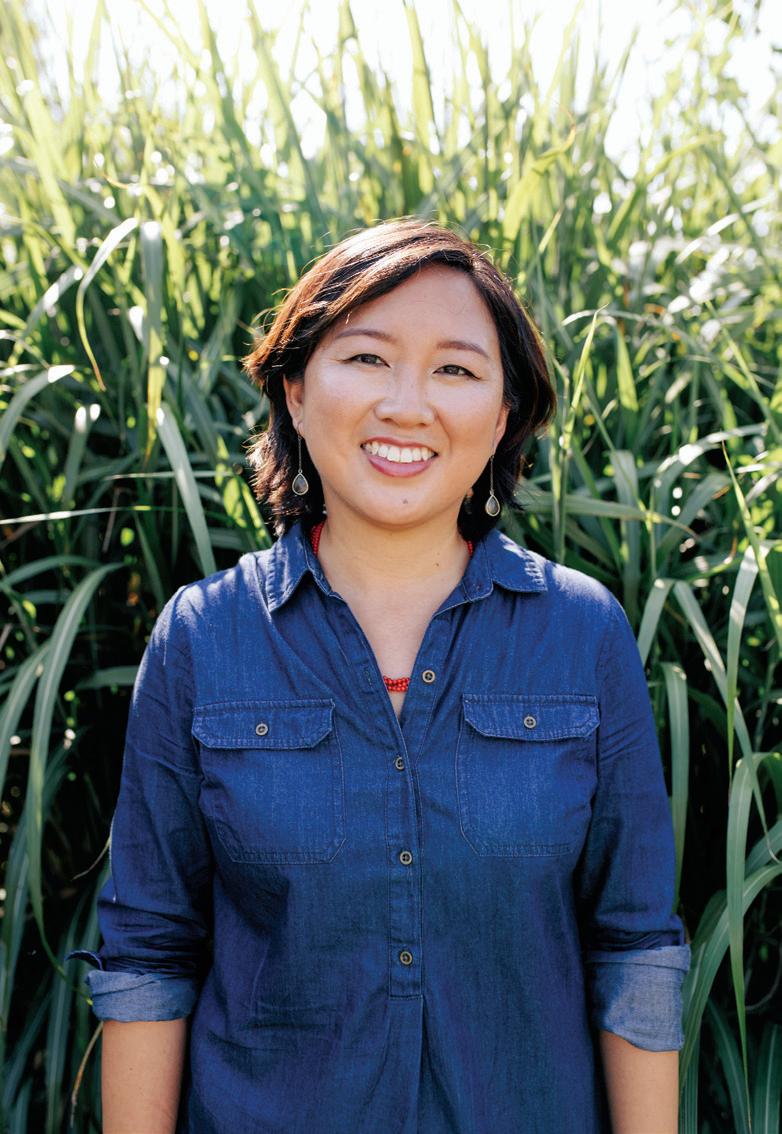
Black or Latinx person will likely bring me meals, empty my trash and clean my room.
In a hospital’s Covid-19 ward, Black patients are nearly two times more likely to die than white patients.
I have great insurance, but Black people are 1.5 times more likely to be uninsured than white people. (I identify as Asian American, but relate more to the white experience in Arlington than the Black experience.)
When I leave the hospital, I’ll drive by High View Park, which had a literal
segregation wall that separated Black residents from white residents.
I’ll DoorDash my dinner, but probably not from a Black-owned establishment. Those have been hit twice as hard by Covid-19 as white-owned small businesses. The food delivery person may likely be Black or Latinx.
I’ll go to Whole Foods, where the cashier may likely be, too. Because nearly a quarter of Black or Latinx workers are employed in service industry jobs, compared with 16% of whites. Too bad only 45% of workers in the
hotel and food service industries get paid sick days, compared with 97% in the financial industry.
As my children grow up, I’m having more and more conversations with folks about “good schools” and “bad schools,” much of which has to do with the racial makeup of the school, but nobody will ever say so explicitly. I notice the tone change when people talk about North Arlington versus South Arlington schools, and most times, even if I’m frustrated, I remain silent.
I’ll post social media tirades about the current president, but be too tired to research Arlington or Virginia elections, which probably impact my neighbors and me more than most federal policies do. If I’m angry enough about the news, I might donate to charity organizations— while overlooking that often, most of their leadership is white.
At work, I’ll support diversity initiatives, but only when I feel like it or it’s convenient. When it comes to hiring and networking, let’s be honest— I’ll probably instinctively prefer and refer people with my background, and pedigree and friend connections.
The demands of daily life make me tired, so you know what? I might actually be okay with living in a country where the net worth of a typical white family is 10 times greater than that of a Black family, but where 38% of the prison population is Black, even though Black people account for only 13% of the general population.
And along the way, I’ll post on Facebook about how Black lives matter.
That’s not enough. Our country needs to change. Let it start with me. n
Evelyn Wong works in communications at a philanthropy and is now a mother of three (this essay was written in mid-June, just before the birth of her third child). Follow her at @EvelynHWong on Twitter.
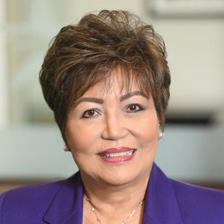
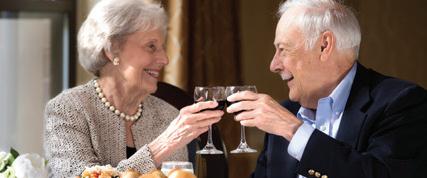
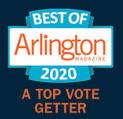

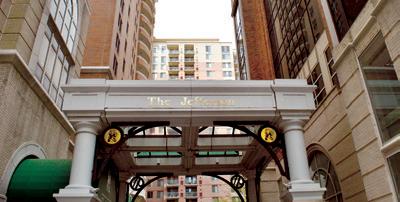

White privilege is an often misunderstood term. Now I know what it really means.
BY TIM HUGHESMaybe I have a Puerto Rican wife and my kids are biracial. Maybe I played ball and am tight with a bunch of Black people, but so what? What do I have to say about race?
It basically comes down to this—it is past time for white people to step up. Black people have carried the weight of our country’s racial problems for generations, from slavery and sharecropping to Jim Crow. It did not end with MLK and the Civil Rights Act. It continues with white flight, the War on Drugs, mass incarceration, redlining, discriminatory lending practices and chronic income and wealth disparity.
Even before Covid-19, life expectancies in the Greater D.C. metro region varied by as much as 27 years from one neighborhood to the next. A study out of Virginia Commonwealth University found that mortality rates were shaped less by
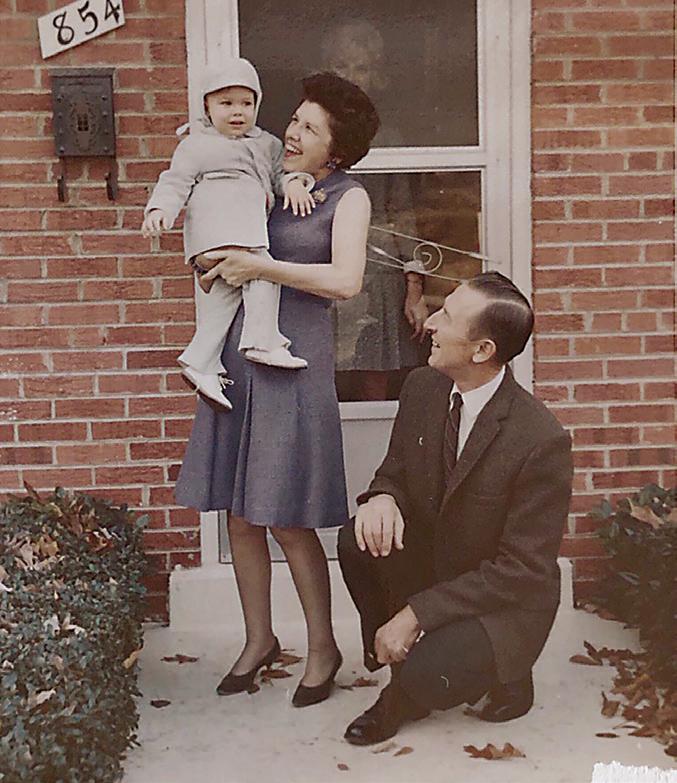
access to health care than by factors like income, education, housing, transportation and the environment—and that people of color were more likely to live in neighborhoods with fewer resources (termed “islands of disadvantage”).
Today, white American families have 10 times the wealth of Black American families. This isn’t due to a lack of ingenuity, drive, ambition or work ethic among Black Americans. You can see the centuries of oppression and apply Occam’s razor to how we got here.
White privilege is an uncomfortable and often misunderstood term. The Arlington of my youth was reflective of its location south of the Mason-Dixon Line. My elementary school had only a small handful of Black students. In high school, “Black history” was slavery, a passing reference to Nat Turner, the Emancipation Proclamation and Martin Luther King Jr. I didn’t learn about the burning of Black Wall Street in Tulsa until I majored in history in college.
And yet I didn’t think “white privilege” applied to me. My mom’s parents were children of first-generation Nor-
wegian and German immigrants and matured during the Great Depression. Their families came to the U.S. after the Civil War. My grandfather served in both World War II and Korea. My dad was an alcoholic who died when I was 9, after which my mom entered a short and even unhappier second marriage. That didn’t feel like white privilege to me.
Wow, I had a lot to learn. The fact remains that my grandparents bought a home in suburban Arlington, benefiting from the boom in real estate values fueled by the GI Bill, VA loans and the economic boom of the 1950s.
I now see how redlining and segregation allowed my family to build wealth, backed by governmental policy, whereas Black families did not have that opportunity. I started my life on second, maybe even third base, compared with so many.
It’s taken a lot of listening and learning from friends and loved ones to get an inkling of just how deep our country’s racial issues run. What is it like to be profiled, pulled over and searched based on race? What’s it like to be con-
stantly viewed as an affirmative action hire, regardless of your talent and ability? To be treated as invisible in meetings, to constantly be the “only one,” to have to fight and claw for representation in every setting? To have the decision of whether or not to engage on racial issues looming over countless everyday scenarios, knowing there could be risks and consequences? These are things I never have to navigate in my day-to-day existence.
My marriage was illegal in Virginia when I was born in 1966. Today, interracial marriage is (mostly) an afterthought. We have made great strides in providing legal rights and remedies for those facing discrimination.
But we still have so far to go. I am close to many people in law enforcement, and they have demanding,
important jobs. Still, I am convinced, like Washington Post journalist Radley Balko, that there is overwhelming evidence of systemic bias in our criminal justice system. It is not just the police; they are the tip of a societal spear. What we are witnessing now is the accretion of hundreds of years of biases, assumptions and unfair institutions shooting through our entire society.
White privilege is not having to see all this. It’s having benefited from a tilted playing field without even being aware of its existence.
Moving forward, it should be my privilege to be part of the solution. That doesn’t mean being the white savior and “pulling someone up.” Rather, it’s me using my position and influence to take on some of this weight and, in some small way, ease the burden that others
• Multidisciplinary team approach
have had to carry for way too long. It can’t be on people of color to solve these problems alone. I will help call out this history. I will help create opportunity and inclusion. I can help build equity in my organization and peer groups. It may require some uncomfortable conversations, but for me it still involves much less risk and reprisal than others have faced for generations.
It also means acknowledging my own internal biases and assumptions. We all have them. Addressing them is the work. You can do it, too. n
Tim Hughes is managing shareholder of the law firm Bean, Kinney & Korman. He is on the board of trustees of the Leadership Center for Excellence and is an inaugural fellow of the DMV Diversity & Inclusion Institute.
• Highly specialized medical oncology, hematology, radiation therapy, orthopedic oncology/surgery, breast surgery, thoracic surgery, genetic counseling, palliative medicine and research
• Highly-rated physicians and surgeons in our community
• State-of-the-art technology, labs, and on-site pharmacy
• Access to Clinical Trials, including Phase I










I’ve
been spit on, threatened, followed and deemed ‘suspicious.’
I’m not pulling the race card. The trauma is real.
BY ANGELICA TALANWHEN I MOVED to Washington, D.C., in the late 1990s, I buried most of the trauma I suffered growing up as a young Black girl in northwest Ohio. I generally don’t like sharing painful things from my past publicly, but I feel I owe it to my friends and community to share my personal experience with racism. As a young child, I was bullied. I was spit on. I was called the N-word. I was called “half spic/half nigger” because my
dad is Mexican and my mom is Black. I had stones thrown at me as I rode my bike home from school. I was threatened if I accidentally stepped off the sidewalk and onto someone’s lawn. In high school, white boys said they wished they could ask me to homecoming or prom—or even just to the movies or the roller rink—but they couldn’t because of what their parents would say or what their friends would think.
A couple of years ago, during a visit to my hometown in Ohio, a cop pulled a gun on me as I sat in the passenger side of our car. My white husband was driving and had been pulled over after he accidentally ran a red light. Our kids were in the back seat. The officer said I looked “suspicious.” He didn’t even ask my husband for his driver’s license. I’ve been followed around retail stores. I’ve had people cross the street
to avoid passing me as I walked my dog while pushing a baby stroller.
Yes, racism still exists. And now all of a sudden many of you are finally “woke.”
The events after George Floyd’s death really triggered my PTSD. I have found solace living in this area because of its diversity. I’ve felt safe here in Arlington, mainly because I see so many people caring about each other—regardless of race, religion, ethnicity, creed, sexual orientation—in a way that I didn’t see growing up in Ohio.
I have tried to find the quiet I need to heal, just enough so that I can gently and carefully explain what is going on to my mixed-race children, who fortunately have not experienced racism the way I did as a child. I also find myself explaining a lot to my white husband, who doesn’t seem to understand that
our kids won’t have the same privilege he does.
I want to protect my kids. I want you to help protect them. I never want them to feel this pain. I never want them to suffer.
Black people aren’t “pulling the race card” when we share our experiences with you. These events are real. They leave deep, hurtful scars.
I have forgiven. I have moved on. I don’t hold any grudges. However, the wounds from my childhood have been reopened and heavily salted in the last couple of months, just when I thought I had escaped from all that trauma so very long ago.
I share this not because I want pity or to make others feel guilty or ashamed. I share it for the sake of understanding. Let’s eradicate systemic racism. Start at
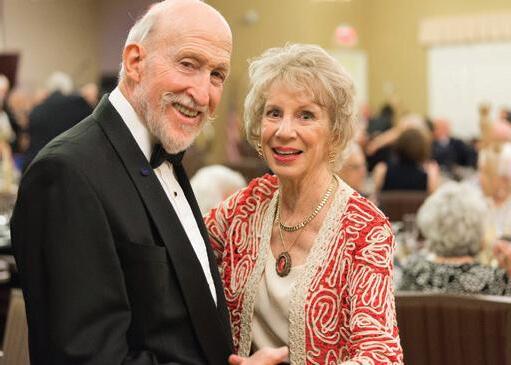
home with your own family. Have those uncomfortable talks. They do make a difference. n
Angelica Talan is a blogger and social media influencer. Follow her on Twitter @Clarendon_Moms and on Instagram @ AngelicaTalan.
The preceding essays first appeared on ArlingtonMagazine.com as part of our Race & Equity essay series, a community voices project that is ongoing. To submit, send a 400-500 word essay, plus a photo of yourself, to editorial@arlingtonmagazine. com. The views and opinions expressed in the series are those of the writers and do not necessarily reflect the official position of Arlington Magazine.
Read more essays from our Race & Equity series at arlingtonmagazine.com/category/ race-and-equity/


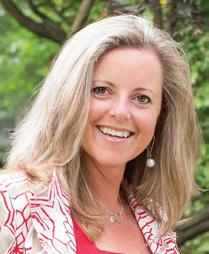
Anika and Yolande Kwinana are powerhouse individuals. Together, they are a force for change.
IN LATE MAY , as outrage over George Floyd’s killing in police custody roiled the nation, Anika and Yolande Kwinana decided they had to do something.
Anika, 49, a program manager in the Kennedy Center’s education division, and Yolande, 28, a business development associate for Salesforce, had volunteered for political causes. But they had never led a protest movement.
Then the demonstrations against police brutality and racism spread to Washington, D.C., and the Kwinanas, a married couple who live in Arlington, found themselves at odds about whether to participate. Yolande, anxious and restless, wanted to join the throngs who were pouring into the District. But Anika, who once worked as an AIDS and HIV educator in South Africa and had seen viruses kill people, was wary of wading into large crowds and possibly exposing her family to the coronavirus.
They decided to organize a smaller demonstration themselves, in Arlington.
So, on May 31, Yolande put out a call on Facebook. She invited fellow Arlingtonians to meet at the Shirlington Branch Library to “take a knee” for Floyd, who died after a Minneapolis police officer knelt on his neck for almost nine minutes while he was handcuffed on the ground.
An Arlington police detective saw the post and sent a text asking what the local police force could do to help— a move that surprised and gratified Yolande. “Definitely a ‘wow,’ ” she says. The ACPD ended up providing snacks and water for demonstrators. Nearly 200 people showed up.
The next day, Arlington County police officers were sent into D.C. at the request of U.S. Park Police, in accordance with a long-standing mutual-aid agreement to provide reinforcements when needed for public safety. When Park Police deployed chemical gas and other methods to forcefully remove peaceful protesters from the area around St. John’s Episcopal Church so President Trump could pose for a photo with a Bible in his hand, a communitywide outcry ensued.
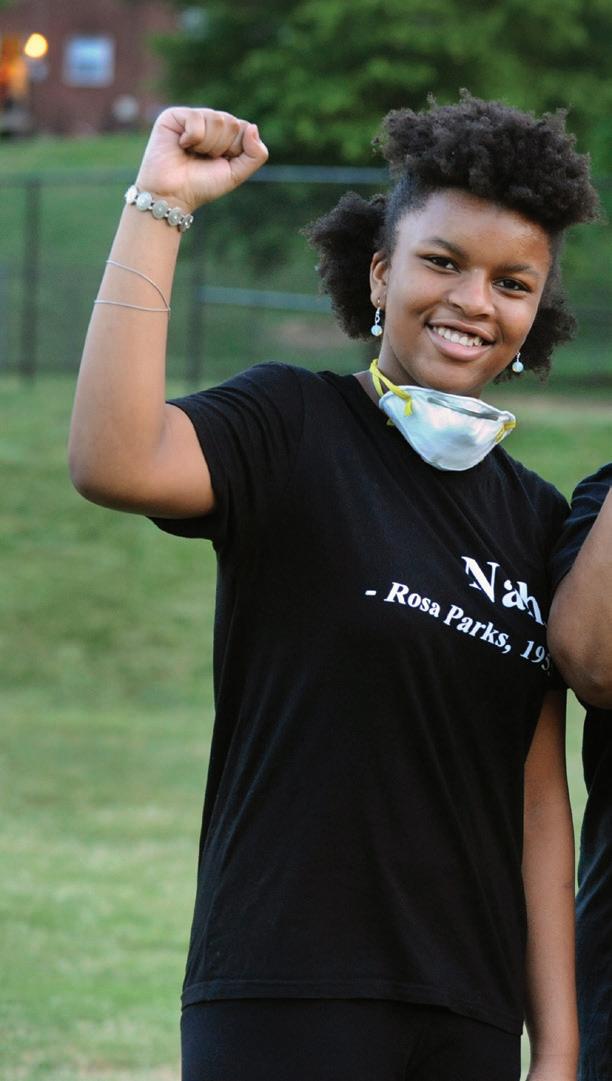
“We paid for them to go and do that! Our tax dollars!” Anika says indignantly. Within hours, the Arlington County Board had ordered its police force out of the city.
In the days that followed, the Kwinanas would go on to organize several other protests and vigils in Arlington— always urging demonstrators to wear masks and practice social distancing. One march, from the Columbia Pike Branch Library to Courthouse, on June 6, drew 1,000 people.
“It was majority white people who came out, which is surprising but really encouraging,” Yolande says. “People in positions of privilege need to be the biggest voices.”
Political activism isn’t new to the Kwinanas. Anika says hers began “in my mother’s tummy” when her parents participated in anti-apartheid protests at the South African Embassy in Washington in the early ’70s. Growing up in Oakland, California, she helped her parents campaign for Democratic congressman Ron Dellums and Gov. Jerry Brown. Locally, she has registered voters and stood outside polling places urging support for Democratic candidates.
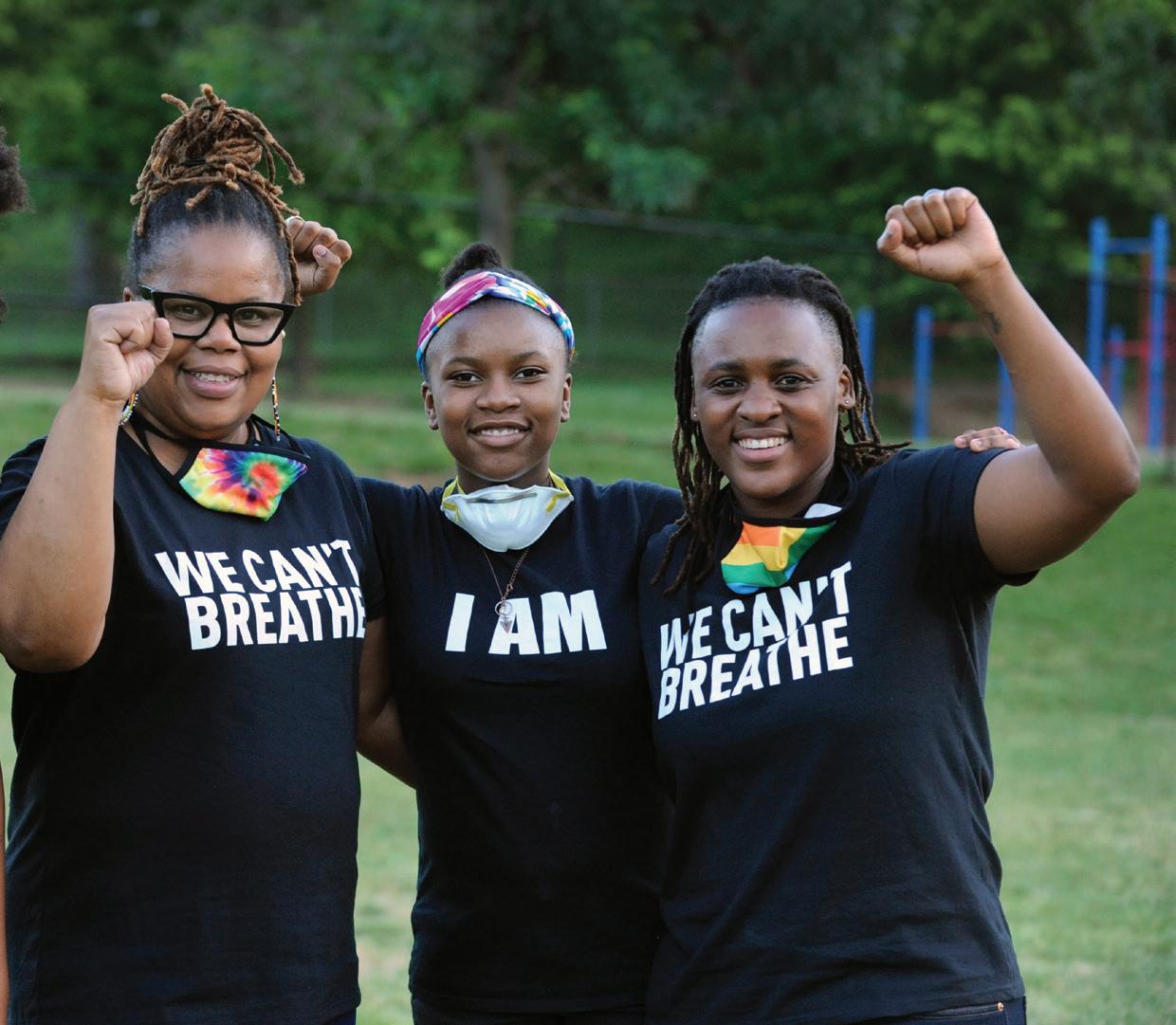
Yolande grew up in South Africa and helped run campaigns for student government at the University of Fort Hare. She and Anika met in church in South Africa in 2013, fell in love and had a long-distance relationship until Yolande was able to move to the United States. They got married in 2016 and are raising Anika’s daughters from a previous marriage—Mayah, 12, and Jada, 14—in Arlington’s Columbia Forest neighborhood.
As the summer wore on and the national conversation on racial equity continued, the Kwinanas pivoted their focus to Arlington County policing.
Yolande set up a Facebook Live chat
with Police Chief Jay Farr, during which she lobbed questions about use-of-force policies, body-worn cameras and crisis intervention training. She pressed the chief on the lack of transparency surrounding complaints against officers (he said privacy rules prevent certain details from being released) and asked for his thoughts about civilian review boards (he said he was open to the idea) and body-worn cameras (he supports them).
Farr, who recently announced plans to retire in September, says he was struck by Yolande’s willingness to listen to what others might consider tedious explanations of Arlington law enforcement policy. “She has her position, but
she’s open to having a discussion,” he says. “She’s not closed to the idea of a conversation.”
In mid-June, Yolande and Anika helped found Arlington for Justice, an advocacy group dedicated to reforming the county’s policing practices, which submitted a list of recommendations to the county board. Among them: funding of body-worn cameras; eliminating school resource officers; ending mutual-aid agreements that result in scenarios such as the Lafayette Square/St. John’s church incident in D.C.; reallocating part of the police budget to mental health services; creating a community oversight board; and
ending the policing of minor offenses.
On June 17, after years of delay, the county announced it would amend its current budget to include $1.05 million in funding for body-worn cameras.
One month later, the county signaled immediate plans for an external review of its police policies and practices.
The Kwinanas, meanwhile, are broadening their network. They continue to work with various advocacy groups, including Justice Forward Virginia (a political action committee advocating criminal justice reform), Black Parents of Arlington, and other local activists, artists and churches.
Between the pandemic, their jobs, parenting and protest work, their days are packed. They’ve had multiple conversations with their daughters about George Floyd’s death, and as a family watched Malcolm X, 13th (the 2016 Ava DuVernay documentary about the intersection of race and mass incarcer-
ation) and other films about social justice. Their YouTube channel, Cocoa Life, features videos of their protests and testimony about policing—along with heartwarming clips of the couple talking about their relationship. “It’s difficult for us to be in different rooms, different spaces,” Anika says with a broad smile. “We are connected on so many levels.”
Brad Haywood, chief public defender for Arlington County and the City of Falls Church and a steering committee member of Arlington for Justice, has been working on police reform for years. Many activists are eager to get involved, he says, “but they don’t take steps to find out what’s already been done. Yolande and Anika are the opposite of that. They’re connecting with the existing advocacy community and they’re very inclusive. They’re taking the time to learn the issues at a detailed level.”
Though they acknowledge the sup-
port they’ve received from white community members, the Kwinanas emphasize that it’s not just bad police officers that are the problem—it’s structural racism. Many parts of Arlington are still segregated. Anika says she has been trailed by security guards while shopping. Friends of Yolande’s who live in D.C. express reluctance to visit Arlington because they don’t want to be stopped by police. Some of their daughters’ friends haven’t been allowed to come to their house, they say, because the parents don’t feel comfortable that the Kwinanas are a same-sex couple.
“Arlington is liberal, but there are levels of ‘woke,’ ” Yolande says. “Racial justice has been a fight for 400 years. We are at a point at which we can’t be quiet anymore. It needs to be all-hands on deck.” n
Lisa Lednicer is a freelance writer in Arlington.
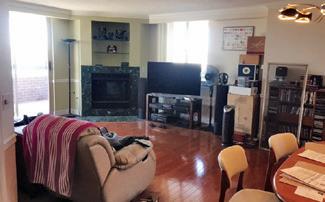



Only the best homes sell in uncertain markets. Renata will make your home look its best to maximize its value, so that you get the best price. Small investments can make a big difference, and expert staging is included in the listing fee.

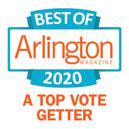
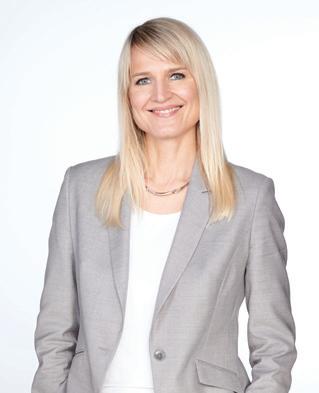





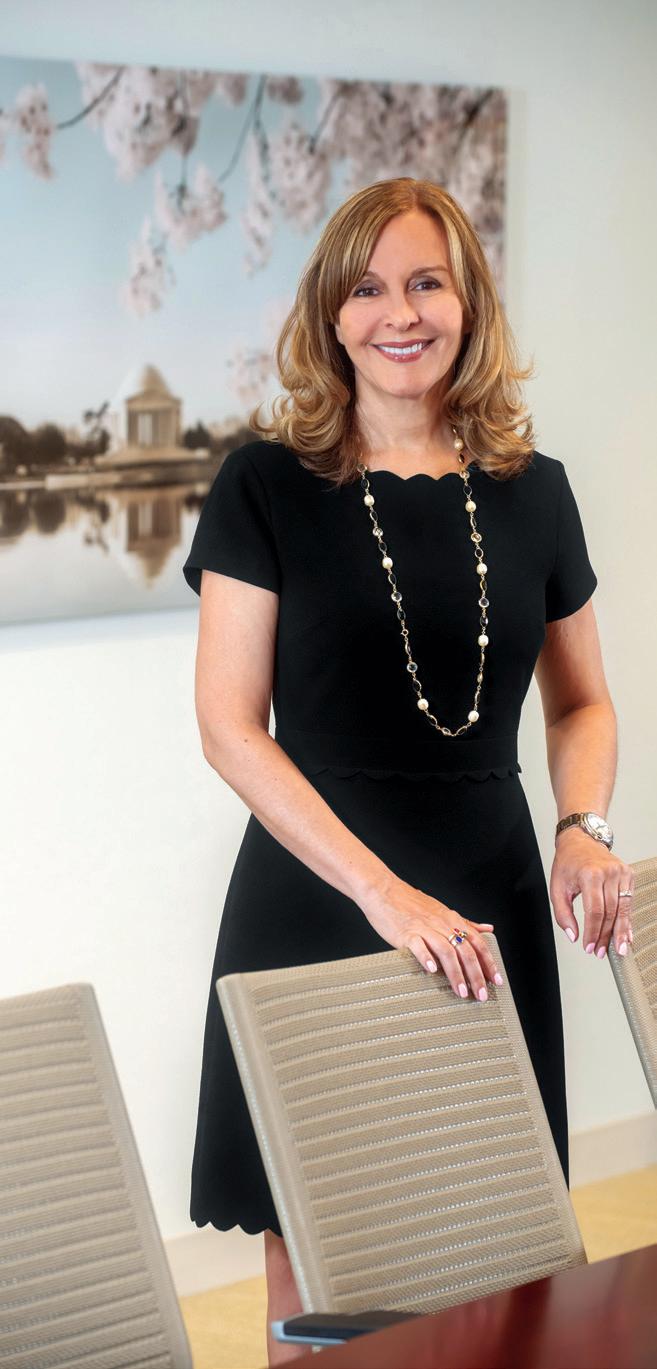
EAGLEBANK,
SENIOR VICE PRESIDENT & RESIDENTIAL LENDING MANAGERBorn in California, Roshan Ardalan Alavi spent most of her youth in Iran before returning to the United States in 1980. She and her husband, Hamid, have raised two sons who take pride in their Iranian heritage. Alavi, who oversees EagleBank’s mortgage sales and operations, has more than 30 years of hand-on mortgage lending, operations and management experience.
EagleBank 6010 Executive Blvd., Suite 300 Rockville, MD 20852
301-738-7200 www.EagleBankCorp.com
Q: How have you mentored or inspired others who are following in your footsteps?
A: I believe in leading by example—I would never ask an employee to do something I’m not willing or able to do. My understanding of what my staff deals with on a daily basis allows me to better support them, acknowledge their good work and encourage them to innovate. My team does not shy away from challenges and is always willing to go the extra mile, and their help is vital to my success.
Q: What do you love most about doing business in this area?
A: I am passionate about creating an environment in which home ownership is a possibility for all. There is a lot of work to be done, and I appreciate working in the nation’s capital, where federal and local housing initiatives are put into action. The work of affordable housing does not feel far away to me. Leading a department that helps people achieve their dreams of homeownership motivates and inspires me to work hard every day.
Q: What advice would you offer for women just starting out?
A: Speak your mind and ght for what you believe in—the sky is the limit! After I had children, I had to restart my career from the bottom. When I joined EagleBank 10 years ago, I was inspired by our female CEO. I hope I can have a similar in uence on my team, especially as a Persian woman leading a diverse group of employees.
The Veterans Day event will be held at the Sharon Masonic Temple the week of Nov. 8. Email Rotarian Lynn Heinrichs at lynn@ lynnhenrichs.com or mcleanrotary.org for more information on how to honor your heroes. Rotary is a global network of 1.2 million people collaborating to make our world a better place.
State Farm
6842 Elm St., Suite 101 McLean, VA 22101 703-827-0377 www.lynnheinrichs.com
Q: What woman inspires you and why?
A: Before Covid-19, I was inspired by women I’ll never know personally—women I read about, saw on television or followed on social media. I’ve found new heroines during these challenging times, and I’m thankful that nine of them agreed to meet me in front of the McLean & Tysons Rotary Clubs’ fundraiser, “Flags for Heroes.” These women are business owners who inspire me to try harder, be a good neighbor and to never give up.
I’m lucky to be affiliated with a large Fortune 500 company like State Farm, especially during this pandemic. While many of my small business owner friends have been severely impacted by Covid, their resilience is beyond admirable. I’m so fortunate to call these women—Elda Diaz (primasalonandspa.com), Sun Lee (washingtoninteriors.com), Gina Ferrell (primasalonandspa. com), Jennifer Nguyen (mintnaillounge.com), Sandra Panetta (sweetbitescafe.com), Kerstin Stitt (facebook.com/ KerstinStittRealEstate), Pamela Danner (dannerandassociates. com), Dr. Lois Wilson (awilsonsmile.com), Cecilia Poon (ichibansushimclean.com)—my friends.
Q:
A: Every Memorial Day, Fourth of July and Veterans Day, the Rotary Clubs of McLean & Tysons host this fundraising event in celebration of people who have shaped and inspired us. For $60 (one flag) or $100 (two flags), a flag will be placed to honor your hero. The attached medallion, which features your name alongside your hero’s name, is yours to keep when the flags come down. I dedicated 10 flags to my local heroes and would love to see 100-plus flags flying on Veterans Day.
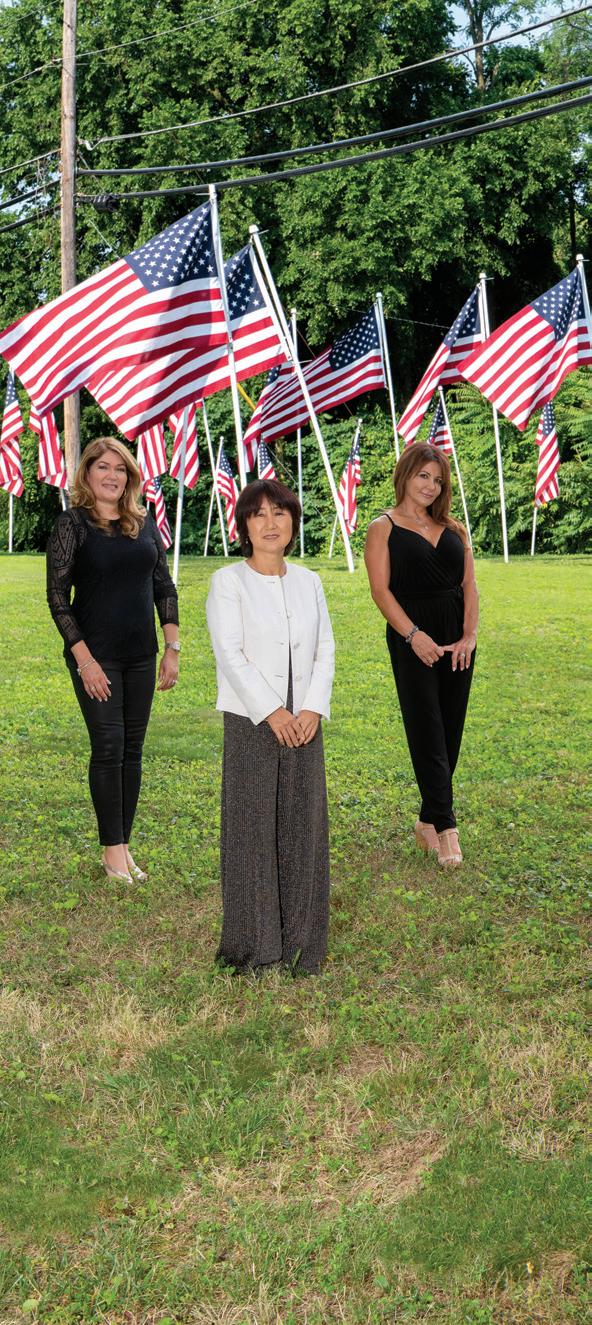
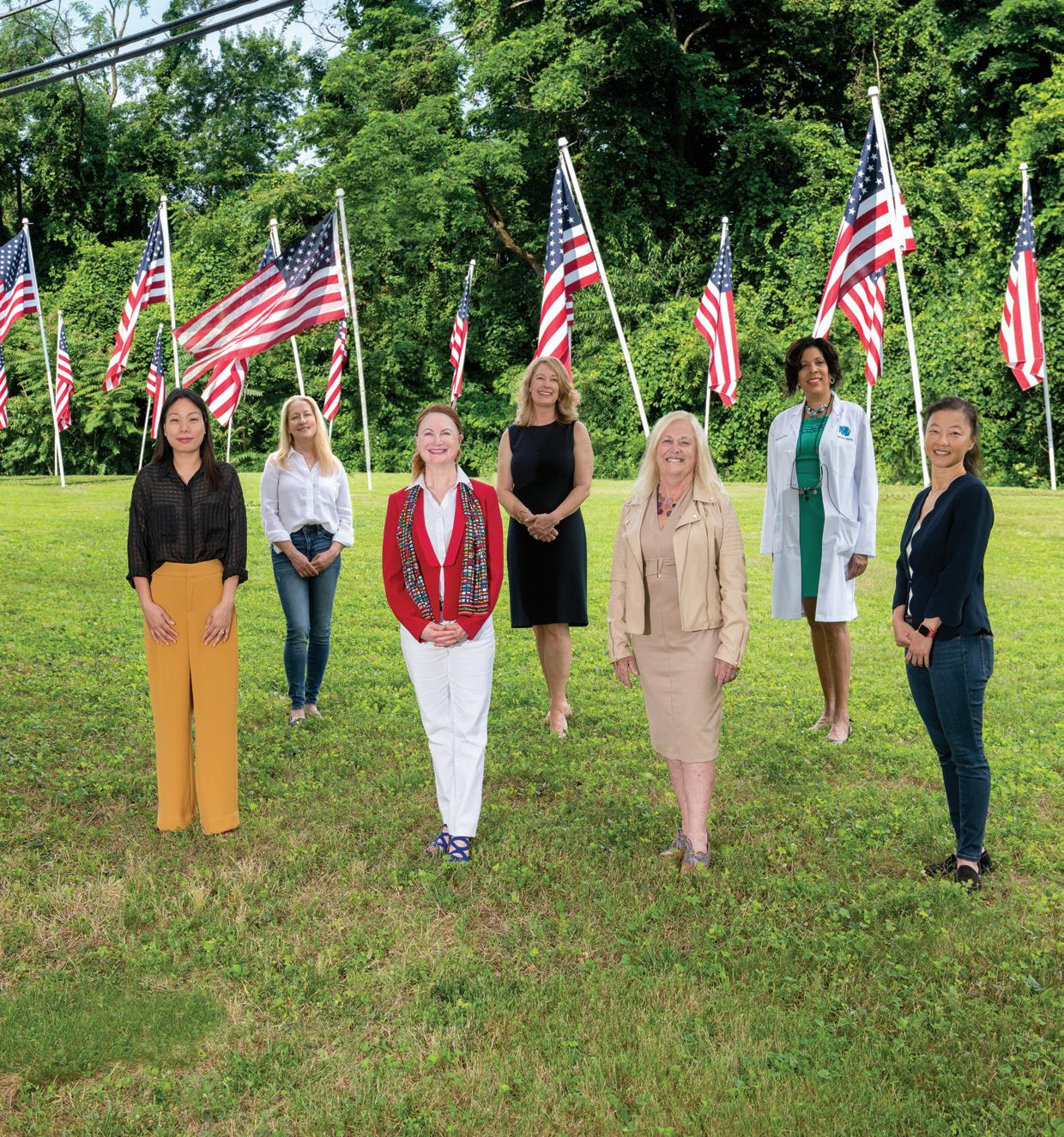
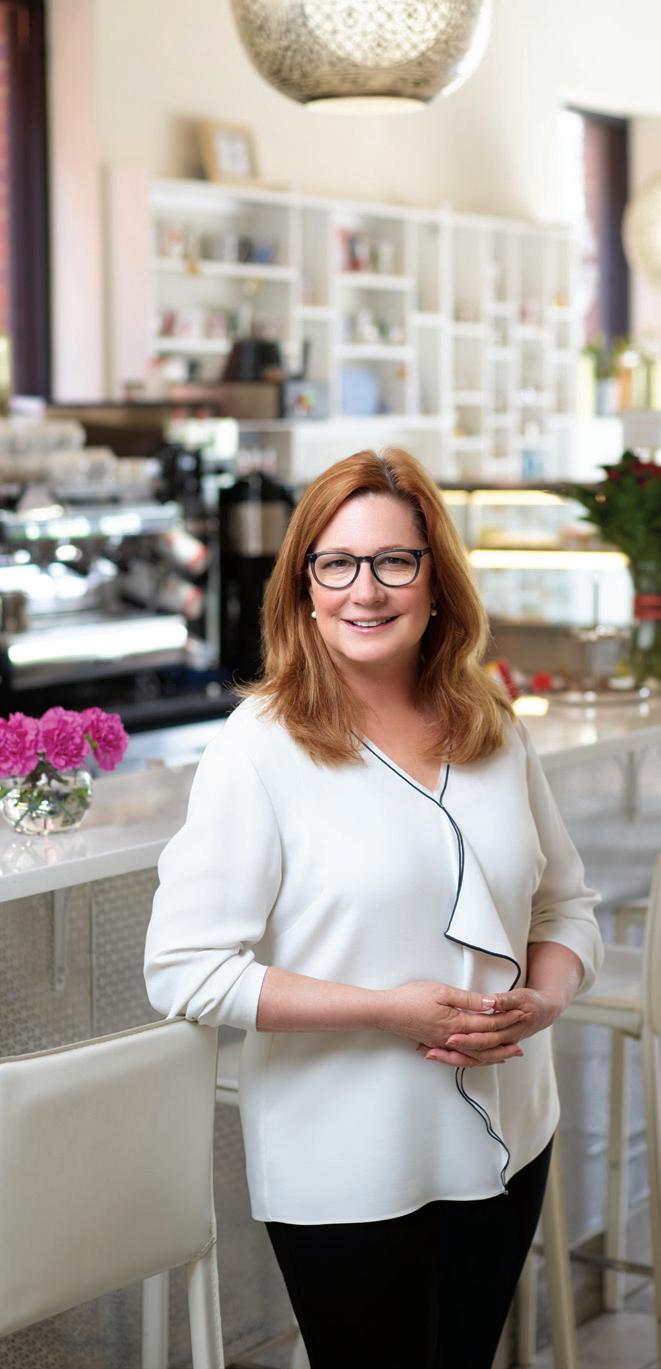
BUCK & ASSOCIATES, REALTOR®
“Surround yourself with people who continually strive for excellence, both personally and professionally.”
Buck & Associates 2519 Wilson Blvd. Arlington, VA 22201 703-582-7779 donna@BuckRealtors.com www.DonnaHamaker.com
Q: What advice would you offer to women just starting out?
A: Surround yourself with people who continually strive for excellence, both personally and professionally. Learn from and emulate women you admire in your field. Reach out to another woman with more experience in your profession and ask if she’ll be your mentor. This is a powerful way to connect. Networking is also hugely important. By becoming an active member of your local Chamber of Commerce and other organizations, you’ll build relationships and gain exposure within your field and beyond.
Q: How do you measure business success?
A: Goal setting is crucial when measuring success. I strive to help as many families and individuals as possible with their dreams of homeownership. I have the business sense and life experience to guide my clients through the entire real estate process—from buying their first home to upsizing, investing and downsizing. The truest vote of confidence, trust and success is when previous clients ask me to help a friend or colleague.
Q: What do you look forward to when you go to work every day?
A: Spending time with my clients! Of course, that looks different in this current climate, as we navigate the COVID-19 crisis, but I’m taking advantage of Zoom and FaceTime and ensuring that all CDC guidelines are followed when touring homes and at settlement. This will be the new normal for a while, however, I’m grateful that my job still allows me to meet and help so many interesting people. What a joy!

CLARENDON DENTAL ARTS
"Our motto, “Mouth, Mind and Body,” promotes integrative dental health so that dental solutions are created based upon life’s challenges, genetic risk factors and science. Healing is for a lifetime.”
Clarendon Dental Arts
2700 Clarendon Blvd., Suite R480 Arlington, VA 22201 703-525-5901 www.clarendondentalarts.com
Q: What are your top priorities for women patients?
A: Helping women live healthier lives! Women tend to be gatekeepers to their families’ health and their health and wellbeing often take a backseat. Our motto, “Mouth, Mind and Body,” promotes integrative dental health so that dental solutions are created based upon life’s
challenges, genetic risk factors and science. Healing is for a lifetime.
Q: Your practice is women owned with an all-female staff—why is that important to you?
A: Part of paying it forward in business is creating mentorship opportunities for those beginning their business careers. We encourage our team’s professional development, so they are not only better providers of dental care, but better individuals. Our values encourage selfworth through education, relationship building, individualized customer service and community outreach. We’re lucky to live in an area that encourages health and social service integration.
Q: What’s changed for women in dentistry over your career?
A: Our ever-evolving field has seen a huge growth in female entrepreneurship. Here at Clarendon Dental Arts we are
proud to continue our vision by further empowering women in business. It is with humbleness, gratitude and positivity that Dr. Manisha Grover has joined our practice to continue the high level of care we’ve steadfastly provided the Arlington community for more than 30 years. Keeping a women-owned business in this community reflects the diversity, gentle touch and necessity that this world and our local community currently needs. We look forward to doubling our efforts within the community and building upon the many lasting relationships that have developed over the years.
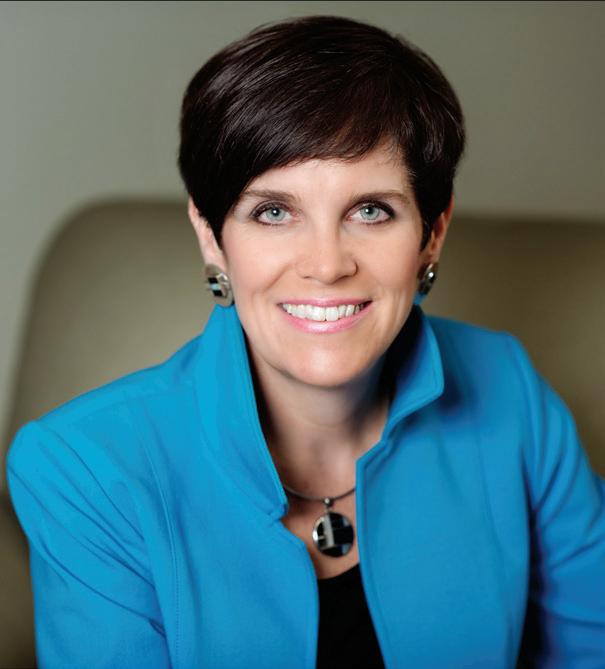
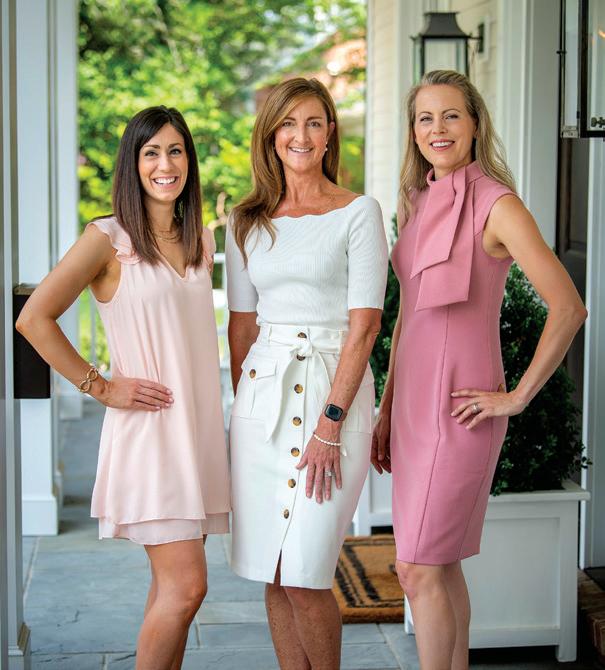
FOUNDER & PRESIDENT, CFP®, RLP®, CeFT®
Omega Wealth Management, LLC
200 N. Glebe Road, Suite 730 Arlington, VA 22203 703-387-0919 www.omegawealthmanagement.com
Q: Why do you do what you do? What inspires and motivates you?
A: My personal mission is to have a positive and significant impact on as many people as possible, while I am on the planet. Whether it’s through my business, helping clients to live a life without regrets or working with entrepreneurs to maximize the financial and life opportunities of business ownership, it’s all about helping people see their strengths and live their best lives. It’s incredibly rewarding when I can show people possibilities where they once saw obstacles. I also love finding out what makes each person “tick,” and offering guidance on how to use their unique qualities to their benefit. I’m inspired every day by the impact encouragement and support can have on people’s lives.
BECKY CULLINAN, CO-FOUNDER, REALTOR®
LORI TAIBL POLISKY, CO-FOUNDER, REALTOR® LINDSEY HACKER, REALTOR®
The Chain Bridge Group www.thechainbridgegroup.com
Q: What differentiates The Chain Bridge Group from other real estate businesses?
A: As a referral focused, employee invested, fullservice real estate team, our success is predicated on the trusting relationships we build, not only with our clients, but with members of our team as well. We understand that buying or selling a home can be an overwhelming experience, and we remain by our clients’ side as zealous advocates from start to finish, helping them navigate—and hopefully enjoy—the entire process. Beyond listening to our clients’ wants and needs, we pay attention to their lifestyles and preferences. Learning about what is important to them allows us to empower them to make decisions that will best achieve their ultimate real estate goals.
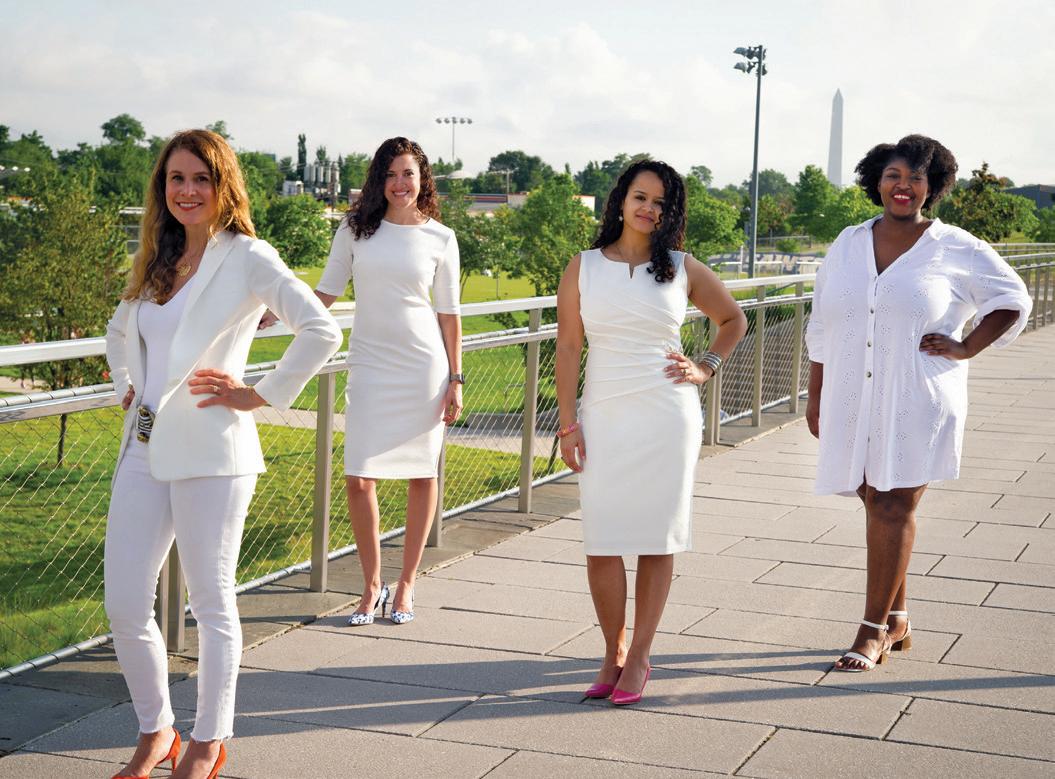 TRACY SAYEGH GABRIEL PRESIDENT & EXECUTIVE DIRECTOR
TRACY SAYEGH GABRIEL PRESIDENT & EXECUTIVE DIRECTOR
The National Landing Business Improvement District (BID) promotes, activates and enhances the vibrancy of National Landing, Virginia’s largest downtown encompassing Crystal City, Pentagon City and Potomac YardArlington. The BID is helping steward the area's transformation to improve placemaking and enhance sustainability, diversity and livability for businesses, residents and visitors.
National Landing Business Improvement District
2011 Crystal City Dr., Suite 205 Arlington, VA 22202
703-412-9430
www.nationallanding.org
From LeFt:
the inspiring women oF the nationaL Landing Bid: tracy sayegh gaBrieL, cassie Bate hurLey, mai aBdeLaziz and Jasmine gipson
Q: What is the National Landing BID’s key to success?
A: People are both the foundation of any great organization and its most valuable resource. That rings particularly true here. I’m honored to work with a talented and committed group that has helped move the organization and business district forward. It’s important we continue building on this dynamic and invest in the next generation of leaders. Encouraging professional development opportunities, facilitating mentorship, and advancing diversity and equity are cornerstones of our organizational development.
Q: What will the BID focus on over the next year?
A: As with most downtowns nationwide, the pandemic’s impact and measures in place to stop the spread of COVID-19 have presented challenges for our residents, businesses and local
institutions. The BID is proud to play an essential role in getting the community back up and running by helping our businesses adapt to new regulations and protocols. We aim to expand and enhance National Landing’s public spaces, allowing people to safely enjoy the outdoors, and we will continue to seek opportunities to infuse color and vibrancy into the streetscape as we did with the storefront murals of our #LoveNationalLanding initiative. We will also focus on expanding our organization and services to serve new portions of our district in Pentagon City and Potomac Yard-Arlington, as well as promote our new place brand.
Q: What inspires you?
A: My fascination with city building began during my childhood in New York City. I’m passionate about the built environment, sustainability and fostering great neighborhoods—cities should be places of inspiration, inclusion, equity and resilience.
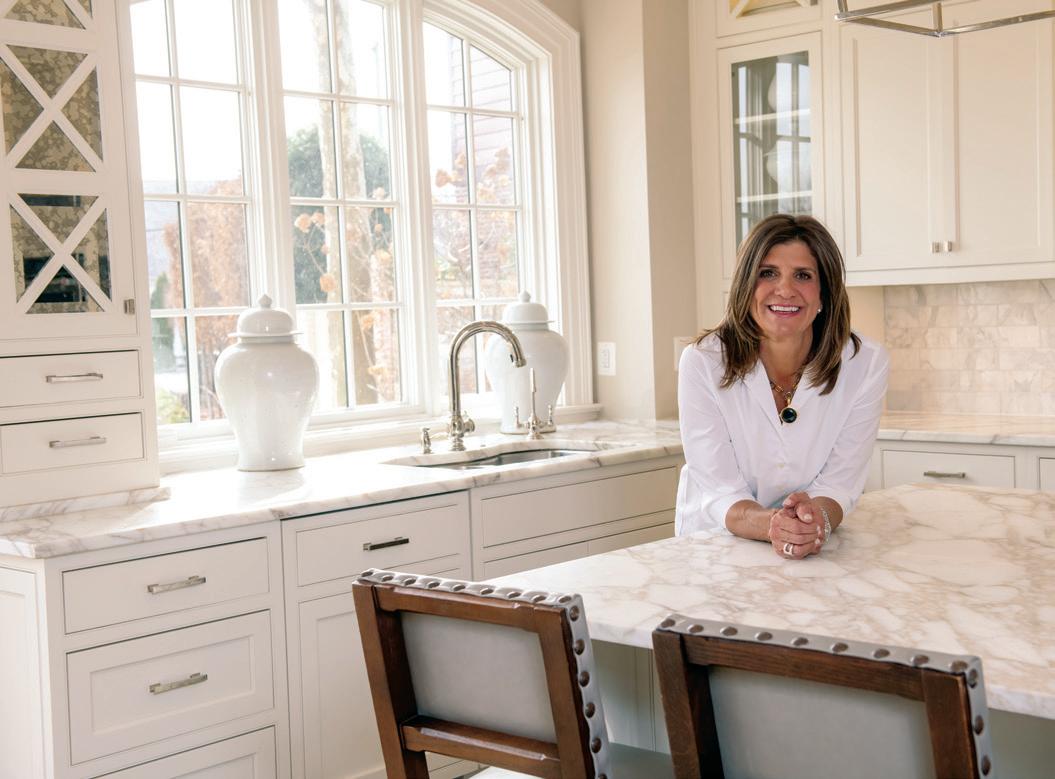
“People hire us to handle what is typically their most important asset. We value the confidence they place in us and offer truthful, trustworthy advice, even sometimes telling people information that they do not want to hear. We prioritize providing our clients with the best information possible, enabling them to make good real estate decisions.”
Washington Fine Properties 703-973-7001 Diane@LewisTeam.com www.LewisTeam.com
Q: What’s the best advice you’ve received and how has it helped you?
A: Become an expert in your marketplace and stay current. I am engaged with the market every day and I am a true expert in the area. I’m also not deterred by obstacles or challenges. Real estate
transactions can become complicated, but I’ve learned that when a problem arises, it’s important to stay focused on finding a solution. I have become an expert at solving problems!
Q: What changes or innovations are on the horizon in your industry? How are you preparing for them?
A: Technology has transformed the real estate business. Buyers now visit homes only after they study information and pictures online. We hire top photographers to take compelling photos of our listings to make sure our properties stand out. We utilize the latest tools available to promote our listings and find homes for our buyers.
Q: What’s the most important lesson you’ve learned during your career?
A: Strong communication skills and confidentiality are paramount. People hire us to handle what is typically their most
important asset. We value the confidence they place in us and offer truthful, trustworthy advice, even sometimes telling people information that they do not want to hear. We prioritize providing our clients with the best information possible, enabling them to make good real estate decisions. Clients also need to know that everything they tell us is absolutely confidential.
Q: What do you love most about doing business in this area?
A: Having grown up in Arlington, it’s fun to sell in an area I know so well and reconnect with people. The D.C. area is also very transient, affording us the opportunity to work with interesting people from around the world.
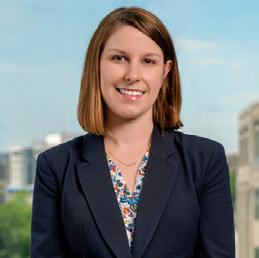
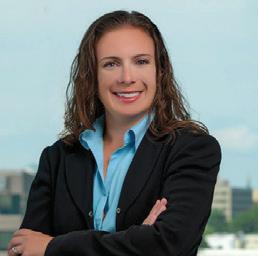
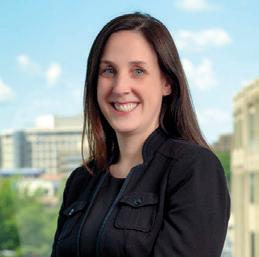
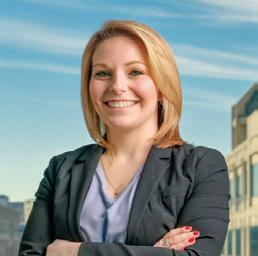
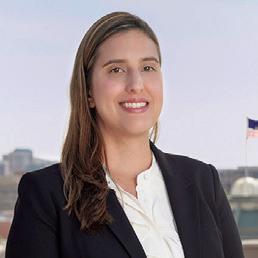
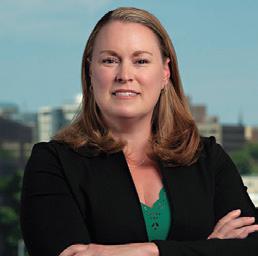
ATTORNEYS AT LAW
The attorneys at Bean, Kinney & Korman, particularly the women represented here, understand the importance of putting their clients first. Jennifer Brust shares her insights on being a successful woman in business. Our specialities include business transactions, bankruptcy/creditors rights, employment, real estate, family law and estate planning.
Bean, Kinney & Korman PC
2311 Wilson Blvd., Suite 500 Arlington, VA 22201
703-525-4000 beankinney.com
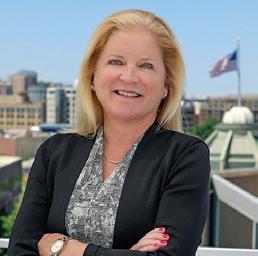
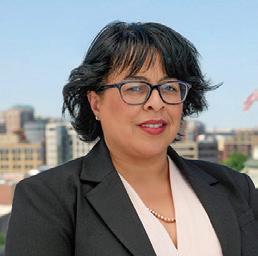
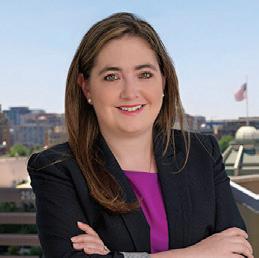
Q: What has changed for women in business, if anything, over your career?
A: An enormous change for women attorneys over the past 25 years has been the acceptance of working moms in the legal profession. When I had my children in the 90s, there was no maternity leave and it was extremely rare to see a pregnant woman in court. The legal profession is now far more accepting and supportive of working moms.
Q: What will be the biggest challenge for the generation of women behind you?
A: I think the biggest challenge for female attorneys who practice in the business arena, whether it be commercial litigation or business/transactional work, will be to attract large business clients. Until we see an increase in women in C-suite positions of authority and power, it will remain very challenging for women attorneys to attract these clients.
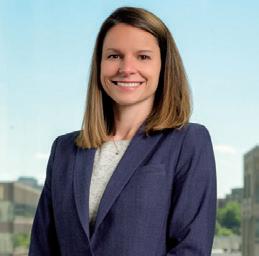
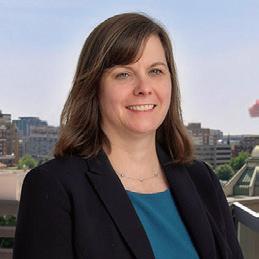
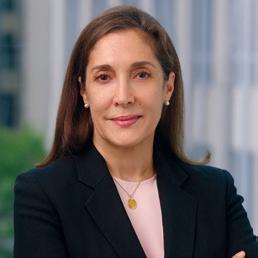
Q: What motivates and inspires you?
A: I am motivated and inspired to provide the absolute best service I can to my clients every day, to help them through what can be extremely difficult and trying circumstances, to be an asset and beacon of professionalism to my colleagues and my profession, and to make my family proud.
Top Row: AndReA dAvison, emily neRino, JennifeR BRusT, JennifeR mccAmmon
middle Row: JennifeR schiffeR, Jill seifeRTh, JuAniTA feRguson, KAThleen Kelley
BoTTom Row: lynn hAwKins, mAuReen cARR, michelle BieBeR, KAndis KousTenis
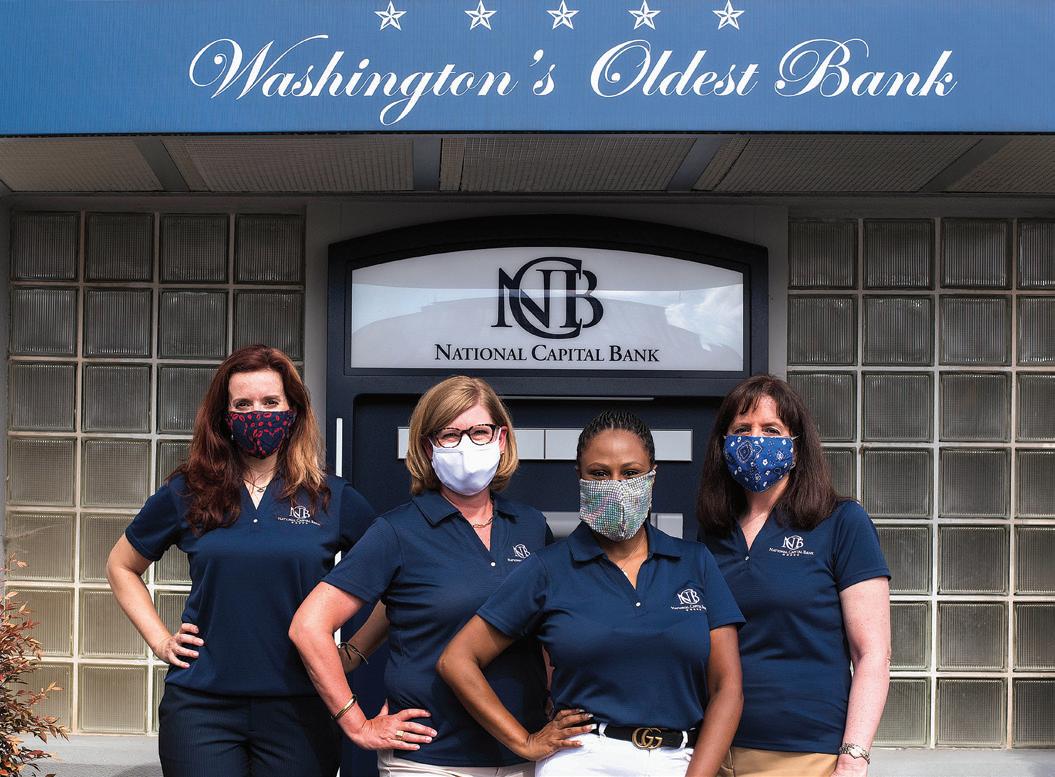
JENNY SHTIPELMAN, ROBIN ROBERTSON, KESHAUN CLARK AND KATHY SPEAKMAN
“We cherish the trusting long-term relationships we have built with multiple generations of families and businesses.”
National Capital Bank 2505 Wilson Blvd. Arlington, VA 22201 571-982-5460 www.nationalcapitalbank.com
Q: What do you look forward to when you go to work every day?
A: Collaborating with our supportive teams and striving to provide clients with the best personalized service in addressing their banking needs— from loans and deposits, to treasury management services and everything in between. One of the area’s oldest financial institutions, National Capital Bank has been serving the needs of our community since 1889. We cherish the trusting long-term relationships we have built with multiple generations of families and businesses. We’re proud to play our part in maintaining this tradition of client- and community-centric service. During the pandemic, we worked hard to help our business clients receive more than $61 million from the Small Business Association’s (SBA) Paycheck Protection Program.
Q: What advice would you offer for women just starting out?
A: Find a strong mentor, raise your hand, speak up and take chances—for a position, career or opportunity. Seek out ways to bring your knowledge and experience to any position that will make you happy. Be persistent; you can do anything you put your mind to. There will be obstacles along the way; don’t let them deter you—learn from them.
Q: What was a major turning point in your career?
A: Being hired to work for a woman who would become a tremendous mentor. A mentor should be more than a person you look up to, but someone who will hold you accountable, and challenge and push you to reach for your highest potential.
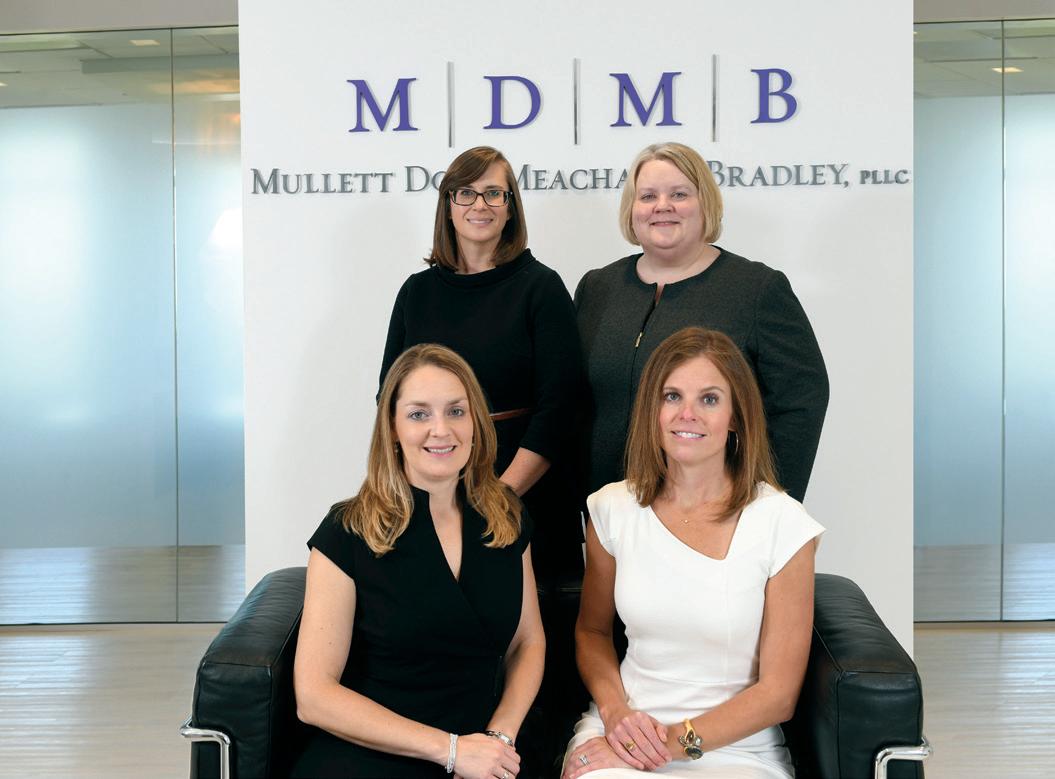
JENNIFER MULLETT, LAURA DOVE, AUGUSTA MEACHAM AND JENNIFER BRADLEY
Best Lawyers™; Washingtonian Top Lawyers; Super Lawyers™; MartindaleHubbell Client Champion; U.S. News and World Report Best Law Firms; Northern Virginia Top Lawyers; Arlington Magazine Top Attorneys
Mullett Dove Meacham & Bradley, PLLC Three Ballston Plaza 1100 N. Glebe Road, Suite 1100 Arlington Virginia 22201
703-522-8100 www.mdmblaw.com
Q: What changes or innovations are on the horizon in your industry? How are you preparing for them?
A: The coronavirus pandemic has presented uniquely challenging circumstances for the court system. Though courts were initially forced to suspend all non-emergency hearings, the local circuit courts have begun allowing attorneys to appear telephonically or via webcam to conduct hearings and trials. The efficiency of this process has led some to wonder whether there will be a movement to permanently incorporate these remote appearances. In preparation, our firm has prioritized learning all procedures and software being used by the courts and has effectively transitioned our conference rooms to successfully and safely accommodate evidentiary hearings, mediations and judicial argument, both at the trial court and appellate level.
Q: What qualities do you think a successful family lawyer should have?
A: Extensive knowledge of the law and the ability to successfully negotiate favorable settlements and execute creative trial strategies and presentation are all vital. But the best family lawyers are those who are most adept at adjusting to changing conditions throughout the process of resolving a marital dispute, and who are able to provide empathy and perspective to their clients, emphasizing the bigger picture and focusing on end goals.
Q: How do you measure success?
A: When we resolve clients’ disputes in a manner that leaves them as whole as possible and ready to move forward. Client satisfaction is our No. 1 priority. We take an individualized approach to every case, and keep clients fully informed, explaining all available options while pursuing the best approach to meet their needs.
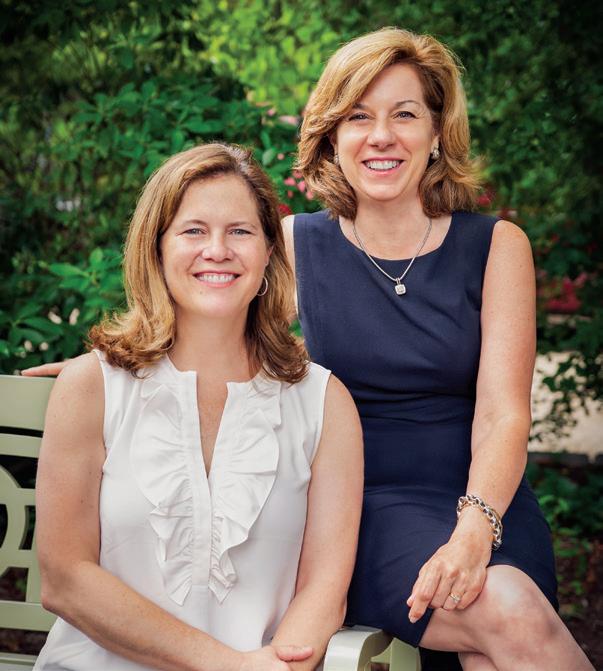
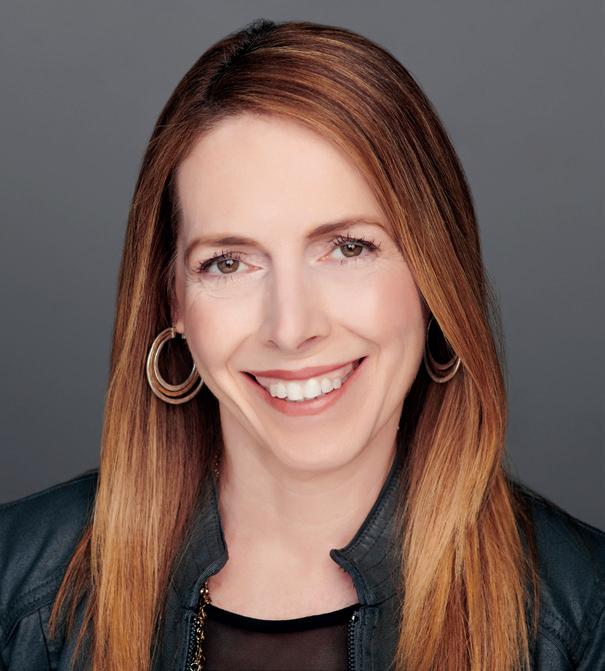
ASSOCIATE BROKER, VA & DC
Compass 3001 Washington Blvd., Suite 400 Arlington, VA 22201 | 703-266-7277
www.compass.com/agents/marga-pirozzoli | 703-585-4844 www.compass.com/agents/justine-pope | 571-388-7359
Q: What motivates you in your work?
A: The opportunity to use our backgrounds and experiences to help our clients find their dream home. My 30 years in real estate and previous experience as an attorney, and Justine’s 22 years at Fannie Mae guide our approach. Real estate, like life, is a giant jigsaw puzzle. Sometimes finding the perfect home is a seamless process, other times the missing piece is more elusive. Each of our clients presents an individual puzzle, and we love the rewards of working toward the finished product, figuring out the parameters, finding the proper fit, and celebrating once the “puzzle” has been completed and our clients move into their new home.
ATTORNEY AT LAW
Reese Law
3050 Chain Bridge Road, Suite 510 Fairfax, VA 22030
703-279-5140 www.reeselawoffice.com
Q: What is the best advice you’ve received and how has it helped you?
A: “Argue for your limitations, and they are yours.” Consciously reject any self-imposed limitations and determine what tools you need to set yourself up for success. I recently got a Master of Arts in Counseling, and I am a certified conflict coach, Virginia Supreme Court certified mediator at the highest level and a specially trained collaborative family law attorney. All of these qualifications allow me to serve my clients to the very best of my ability.
Q: What woman inspires you and why?
A: Too many to count, but Brene Browne, Ruth Bader Ginsburg and Angela Merkel are among my current favorites. I’m most inspired by women who strive to be the best in their field, not just the top female.
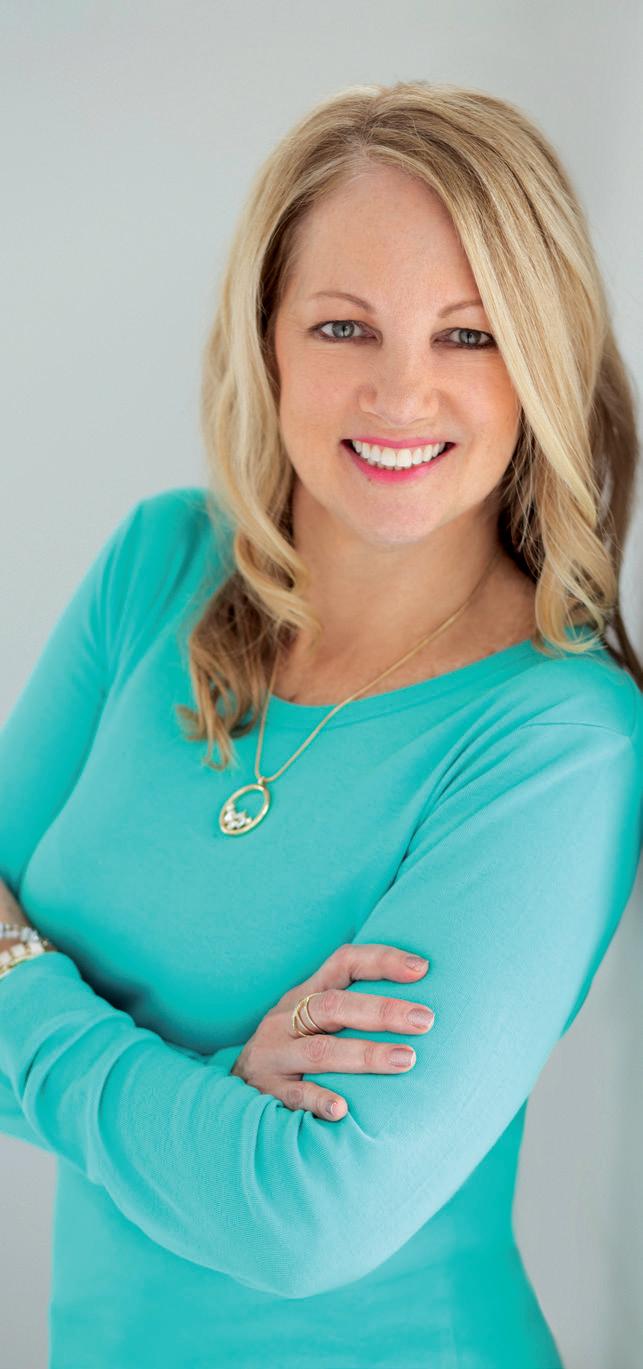
“We are educators and mentors by nature and that really comes across in our individualized approach and the improvements we see in our students.”
Tutoring Club of McLean 6228 Old Dominion Dr. McLean, VA 22101 703-237-8886 McLeanVA@TutoringClub.com www.TutoringClub.com/McLeanVA
Q: How have you mentored or inspired others who are following in your footsteps?
A: At Tutoring Club of McLean, we are committed to creating confident, self-motivated learners for life. And that goal doesn’t stop with our students—I’m always encouraging my staff to develop their skill sets, follow their passions and expand their leadership roles within TCM. Our tutors have the opportunity to be lifechanging role models for our students and inspire a love for lifelong learning.
Q: What’s the best advice you’ve received and how has it helped you?
A: Do something that you care about. Work with people who inspire you. I’m fulfilled each day, seeing our students advance in their academics. And I’m lucky to work with likeminded people! We are educators and mentors by nature, which comes across in our individualized approach and the improvements we see in our students. We’re proud to consistently be voted “Best Tutoring Service,” “Best SAT/ACT Program,” and a “Top Enrichment Program,” by readers of Arlington, Northern Virginia and Washington Family magazines.
Q: What changes are on the horizon in your industry? How are you preparing for them?
A: With the unprecedented changes to education due to the coronavirus, it’s more vital than ever to keep our students engaged in learning and motivated for the future. We’ve added extended hours, online sessions, learning studios and study groups, and we will follow strict health guidelines for those who will join us back in our center (when it’s safe). Our community is resilient; we’ll come out on the other side of this even stronger.
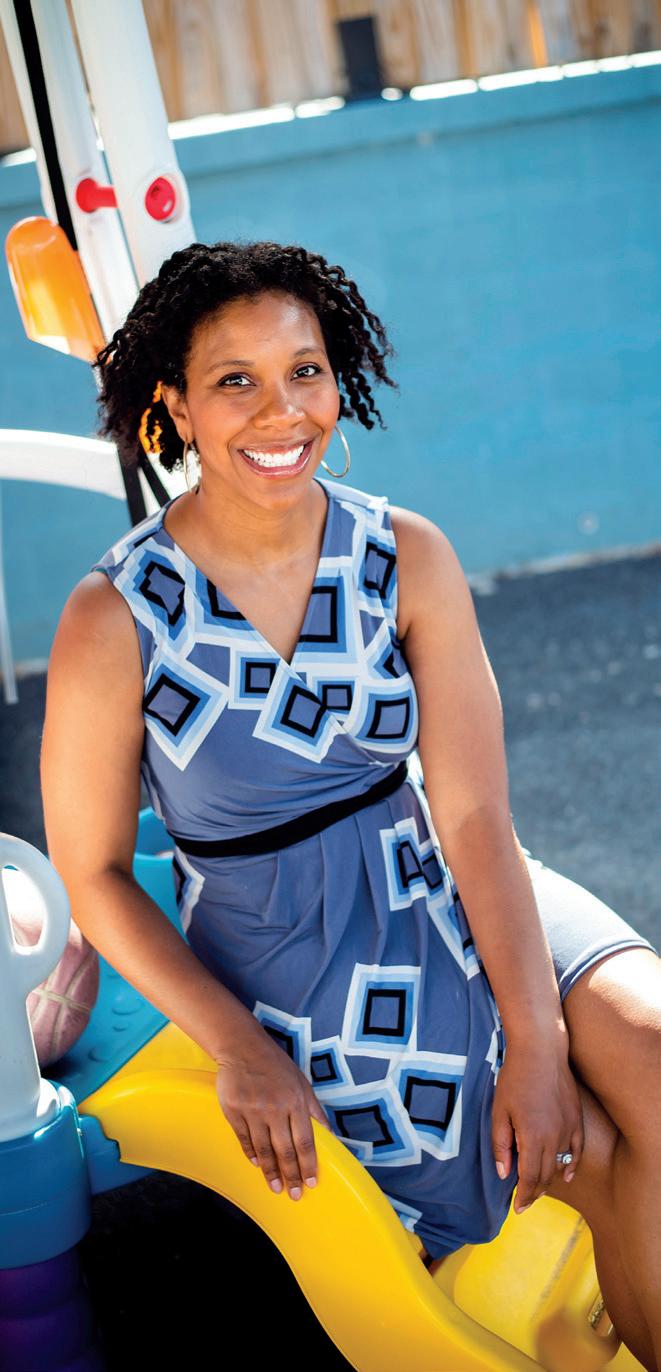
“It is our privilege to work with small children; we are committed to establishing a foundation for their success and developing lifelong learners.”
Little Ambassadors’ Academy 5801 Lee Hwy. Arlington, VA 22207 703-635-1155 www.littleambassadorsacademy.com
Q: What woman inspires you and why?
A: My mother is my biggest inspiration. An outstanding educator and loving mother, she strives for excellence in everything she does. She’s always been there to push me when I’ve needed to be pushed, hold me when I’ve needed a shoulder to cry on and listen when I’ve needed a sounding board. She’s a resilient, funny and amazing person who reminds me to never stop learning.
Q: What do you look forward to when you go to work every day?
A: The laughter, from children and staff, echoing in our hallways. It is our privilege to work with small children; we are committed to establishing a foundation for their success and developing lifelong learners. Children in nurturing learning environments with knowledgeable and passionate educators will thrive in an increasingly complex world. I cherish the opportunity to watch children in our care grow in confidence and self-worth, and I love seeing the enthusiasm from our teachers as they cultivate an environment in which children can be their authentic selves.
Q: What’s changed for women in business over your career?
A: We still have a long way to go on the issue of gender and cultural bias, but one of the most significant changes over the course of my career has been the growing number of women in business—creating a more powerful network that ties us together. It is important for women to lift each other up, and I’m thankful to have found a network of supportive women who encourage each other in their pursuit of business success.

A licensed architect for more than 20 years, Sarah has been featured by Houzz and named one of Washington, D.C.’s Top 100 Designers by Home & Design Magazine. She mingles her time between parenting her three kids and directing Studio 360, a residential architecture firm providing design excellence and attentiveness to discerning clients.
Studio 360 LLC
703-350-5562 www.studio360architect.com
Q: What advice would you offer for women just starting out?
A: Find a mentor! I encourage both young women and new women business owners of any age to stay curious and demonstrate a desire to continue learning. Find a mentor in your field, ask questions and be fervent in applying their advice. Don’t be afraid to look inexperienced; too many people pretend they know more than they do. Be authentic and own what you don’t know. It’s OK to ask for help. Good leaders appreciate teachable and humble employees and business partners.
Q: What has been an unexpected surprise in your work?
A: When I was a young professional, I was taught to separate business from personal life. As I’ve become more experienced, I’ve been surprised by how easy and natural it is to allow both sides of life to mix. I genuinely care for and connect with each of my clients. I’m also committed to offering the highest level of professional service on every project, and perhaps because I do all residential work, by the end of a project, I feel like I know that family so well. It’s a privilege to work on their home and consider them my friends.
Q: How have you mentored aspiring architects?
A: I often have high school and college students shadow me on job sites or work as interns. I’ve enjoyed the opportunity to volunteer at my kids school teaching about artists and architects. Investing in the next generation of young people by spending time with them and exposing them to the profession is so important to me. I love my job and hope my enthusiasm is contagious!

The
abrupt shift to remote
instruction was painful, and it played out differently in every household. What did the spring of 2020 teach us?By Adrienne Wichard-Edds
On March 13, life as we knew it—at least for those of us with schoolage kids—came to a grinding halt. Within a span of 13 hours, schools in Arlington, Falls Church City and Fairfax County announced that they would be closed through spring break in response to Covid-19. Ten days later, Gov. Ralph Northam made the decision to close Virginia schools for the rest of the school year.
And just like that, our reality was tipped sideways. With little guidance from those in charge and even fewer answers to comfort our kids, we braced for a world of homeschooling and lost sports seasons, of missed performances and virtual graduations. Amid the uncertainty of a global pan -
demic, families also had to grapple with upended routines and the educational fallout of quarantine.
The staff and teachers at our schools, meanwhile, were tasked with inventing the remote learning process almost overnight—including determining which interactions between teachers and students would be live (“synchronous”) versus prerecorded or assignment-based (“asynchronous”).
“We were building the plane as we were flying it,” says Bridget Loft, assistant superintendent of teaching and learning for Arlington Public Schools (APS). “Some families had the means to dive headlong into distance learning, and some didn’t. We tried to shoot for the middle. We also tried to be very
mindful of equity, which included having a device at home and knowing how to use it, ensuring wireless connectivity and working through any language barriers that might exist.”
Private schools, for the most part, didn’t miss a beat; many were able to ensure that their students had the necessary resources to learn new content and attend live classes online. But public schools found themselves in the awkward position of having to truncate the third quarter and largely suspend the teaching of new concepts for the remainder of the year.
In Arlington, public schools adopted an asynchronous model, limiting fourth-quarter assignments to concepts that had already been taught. There would be no fourth-quarter grades; instead, kids had the option of completing enrichment work to raise their year-end grades by one letter grade. The criteria for raising grades were largely left to individual teachers to determine.
Falls Church City and Fairfax County public schools attempted a hybrid model—a combination of live and asynchronous instruction—and implemented similar policies with regard to
fourth-quarter grading. But the holes in the enrichment-only approach soon became apparent. Students already earning A’s had little or no incentive to continue participating in schoolwork. Students who had specialized education needs—or didn’t have the space, technology or parental guidance at home—struggled to take advantage of the opportunity to improve their grades.
Technology was a flash point. Knowing that APS issues personal devices to all students starting in third grade— iPads for elementary and middle students; laptops for high-schoolers— some Arlington parents were baffled as to why every student didn’t have access to a personal device, and why schools couldn’t invest in hot spots to ensure connectivity.
“Kids get devices in third grade, but many schools hadn’t been sending their devices home, so kids weren’t acculturated on to how to take a device home and use it,” Loft explains.
For families without internet access, APS provided MiFis—personal broadband devices—as a stopgap measure. “But they had limited capacity,” Loft says. “If you have more than one kid or someone else in your household who’s trying to get online, that’s going to eat up the internet for the day.”
Students’ home lives were yet another variable. “My home wasn’t a great environment for me to focus on schoolwork or attend online meetings,” says Netsanet Gumru, a recent Wakefield High School graduate who will be attending the University of Pittsburgh this fall. “I had to babysit my younger brother who’s in kindergarten and share space with my other brother who’s in 10th grade. All the places I usually study were closed. This pandemic affected all of my study habits and schedules.”
Gumru lives with her family at the Gates of Ballston, a subsidized housing complex run by AHC, a local nonprofit that provides social services and educational support for people in its communities.

“We’re working to make sure families can stay in their homes and put food on their tables,” says AHC communications director Celia Slater. “We help out with learning issues where we can. One little girl was trying to do her homework on her mom’s cellphone, so we got her a tablet. But some families don’t have Wi-Fi at home, and [community] hot spots are difficult to access if you don’t have transportation.”
For parents concerned about loss of learning, Loft offers the reassur-
ance that their kids didn’t miss out on as much as they might think. Typically, “there are far fewer new concepts addressed in fourth quarter than in quarters two and three,” she says.
“By not introducing new content, we were almost closing the gap, shoring up the foundation of everything they’d learned thus far.”
Not all parents saw it that way.
“The lack of new content was a huge problem,” says one dad whose children attend Washington-Liberty High
“The lack of new content was a huge problem. How exciting could it possibly be to get a one-way lesson on a topic you’ve already been taught?”
School. “It leads to boredom and disengagement. How exciting could it possibly be to get a one-way lesson on a topic that you’ve already been taught?
“I certainly support directing resources toward helping families overcome the opportunity gap,” he says. But he thinks APS’s decision to freeze the fourth-quarter curriculum likely only widened the disparity: “Households with greater resources or more-engaged parents will find private offerings to help make up that gap in new learning. The kids who will be most injured are those from disadvantaged households who depend on APS to provide access to educational opportunities.”
Or, as another Arlington parent puts it: “The same kids get left behind, they just get left behind in different ways. If anything, the divide is even more pronounced” when parents with means end up seeking private supplemental education for their kids.
TEACHERS DID WHAT they could to engage students remotely during quarantine. Though APS officially adopted an asynchronous model (meaning no live classes), teachers maintained regular “office hours” online. Some organized digital class meetups at their discretion, using various video streaming platforms. Those connections allowed them to touch base with students on everything from emotional well-being to AP test prep.
Swanson Middle School drama teacher Monique Caldwell worked with her cast and crew to reinvent the school’s spring production of A Wrin-
kle in Time as a virtual performance, conducting rehearsals and production meetings on Zoom and then Microsoft Teams. (The final production was streamed on Vimeo.)
At H-B Woodlawn Secondary Program, songwriting teacher Dan Paris challenged his music students to continue writing songs, then orchestrated several live online concerts throughout the spring.
“We did a bunch of scavenger hunts, where our teacher would post a list of things that you had to find around your house. That was cool,” says Miles Martin, a rising eighth-grader at H-B, who lives with his parents and older sister in Arlington’s Claremont neighborhood.
Even without the incentive to raise his grades (he already had A’s), Miles continued to participate in weekly school projects—writing poetry and sharing it with his English class using the Flipgrid app; building a circuit board for his robotics class; identifying wildlife around his home (his family retreated to their lake house in Orange County, Virginia) for a science project.
“All of our teachers did a good job of keeping in touch with us during fourth quarter,” Miles says. “They had a nice format for classes, with a couple of [live] meetings a day over Zoom or Microsoft Teams. Each teacher would post what we needed to do on Canvas with a link that we tapped on to go to the class. Then we’d do an activity, talk about how our days and weeks were going. It was kind of like being in actual school.”
But for other students, there was no substitute for in-person learning.
“The lack of human connection was a real problem,” says the mom of a rising seventh-grader at Dorothy Hamm Middle School who had been diagnosed with anxiety before the pandemic. “By mid-April, he seemed particularly sad, not his usual talkative self. He was becoming more withdrawn—his instinct was to curl in on himself, and it was becoming more pronounced. I had to force him to get out of his room, get out of the house.”
Elisa Nebolsine, a cognitive behavioral therapist based in Falls Church City, says that during quarantine she saw a notable spike in student anxiety and depression.
“I work with kids who are already anxious, and distance learning has been very difficult,” says Nebolsine. “The majority of kids I see aren’t finding meaning in the busywork. They feel disconnected from their peers. Every day feels the same. We need to treat this as a period of grief, then try to find ways to acknowledge the happy moments and remember that this feeling won’t last forever.”
Schools that were able to offer synchronous classes often saw better student engagement and time management, even when students weren’t learning new content.
But synchronous learning also had its drawbacks, as Fairfax County Public Schools discovered on April 14— the first day it tried to roll out live classes through the Blackboard platform. Virtual classrooms were hacked and chat rooms were defaced with expletives, pornographic photos and anti-Semitism.
“It was chaotic,” says Anne Neuman, whose daughter Becca was in her first year at James Madison High School in Vienna and was in one of the Blackboard classrooms that was hacked. “Becca’s first two classes that Tuesday went completely fine. Then she had Spanish, and all hell broke loose. It
started off with kids in the chat room— boys ganging up another kid—but once they went to audio, there was profanity and yelling so loud that I could hear it down here in the kitchen.”
Becca’s experience was a tipping point for the Neumans, who have decided to send their daughter to private school in the fall.
They’re not the only ones seeking refuge in smaller class sizes and what they perceive as a more controlled environment. “We’ve definitely seen an uptick in public school families who are looking into private school options,” says Leigh Ann Cahill, director of Independent School Options, an educational consulting and placement firm based in Alexandria. “Parents of children in third grade and younger are the most concerned, since they often need more interaction and hands-on work instead of Zoom classes and online work.”
Kathy Essig, an executive functioning coach based in Arlington, says she is seeing the same trend. “The public schools have done a really lousy job,” she said during an interview in June. “All my private school kids received 90 to 95 percent of what they would have gotten in person. They were attending one or two fewer classes per week, but they essentially maintained a regular school day [online].
“Public schools have let all of us down,” Essig says. “I get that there are some kids who didn’t have devices, but there should have been some level of work-around. I don’t get what the thought was behind Let’s bring this to a screeching halt.”
Hindsight, says APS assistant superintendent Loft, has afforded some clarity: “If I could do it magically all over again, I would have gotten devices into everyone’s hands on March 13.”
Now Arlington schools, in partnership with county officials, are taking aggressive strides toward ensuring connectivity for all. In July, Arlington County announced it will direct $500,000 in funding to provide broad-
“We're dealing with trauma, stress and isolation. The more we can return some sense of normalcy to our families, the better, but we don't want to compromise health.”
band internet access to APS students who don’t already have it. Funds received through the CARES Act will be used to purchase iPads for students in pre-K through second grade.
Loft acknowledges that distance learning is imperfect, and that some needs were unmet at the end of the school year—“like our Shriver Program students, who [were] receiving comprehensive physical therapy on a daily basis.
“Kids are going to be forever impacted by this,” she says. “We went asynchronous [in the fourth quarter of 2020] because we recognized that teachers have families, too, and we wanted to make sure they were able to balance their lives. Also, if we had live [classes] but some kids weren’t able to make it, that’s kind of stigmatizing.
“Looking forward,” she says, “we need to do a better job getting all of our teachers on the same platform. We need to systematize distance learning for teachers, which includes executive functioning and trauma-informed instruction—not just using the tool but understanding our kids’ experiences.”
AS THIS ISSUE went to press, the trajectory of Covid-19 was still a moving target. After weighing various options, public schools in Arlington, Falls Church City and Fairfax County in late July announced that they will begin the 2020-21 school year 100% online, with plans to phase in socially distanced classroom time once it is safe to do so.
APS superintendent Francisco Durán was the first leader of the three school systems to recommend a virtual start to the fall semester. He did so despite many families expressing a preference for at least partial on-site classroom instruction. Some parents even staged protests.
“After reviewing feedback from families and staff, we found the three most important issues were access, content and teacher support,” says Durán, who stepped into the superintendent role at APS in July after leaving his previous post as chief academic and equity officer for Fairfax County Public Schools.
APS has ramped up its teacher training accordingly, he says, is addressing problems with digital access and intends to teach new material in the fall. “We’re making very difficult decisions. Health and safety are the forefront, coupled with instruction—students need to learn. We’re also dealing with trauma, stress and isolation. The more we can return some sense of normalcy to our families, the better, but we don’t want to compromise health. It’s very difficult to follow that data. It’s changing every day.”
So far, each family’s ability to adjust and engage with distance learning has been as varied and diverse as our population. There are as many stories of disappointments, hardships and failures as there are of successes and silver linings. The following interviews were conducted at the end of the fourth quarter of the 2019-20 school year.

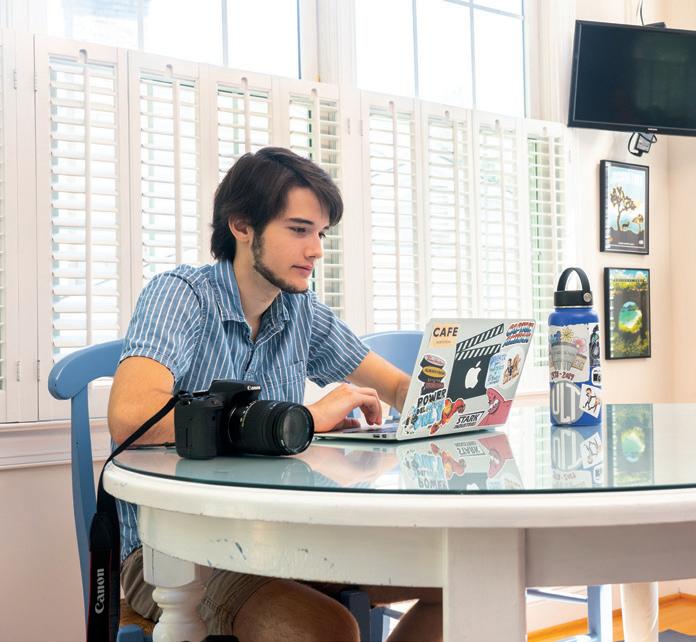
JOHN BARNES, 17, is a rising senior at H-B Woodlawn. He earned a fellowship with the PBS NewsHour Student Reporting Labs before the quarantine moved both school and the fellowship online. He works part time at Bakeshop in Clarendon and Falls Church, and lives in Arlington’s Yorktown neighborhood with his mom.
“When school was canceled, I already had the grades I wanted, so I chose the optional fourth-quarter work for every class. But by late March, I started to give up on school. I was still working [at Bakeshop] and all of my anxiety about coronavirus started giving way to physical symptoms—increased heart rate, insomnia. Distance learning wasn’t working for me, even when I was trying super hard, because there was no extrinsic motivation. I had all A’s and it didn’t matter—all this bad stuff was still going on in the world.
“I started thinking, Do I really want to keep doing this busywork? I worried that I wouldn’t experience any of the things I wanted from life or even have the high school experiences I’d been looking forward to. I was so worried about getting coronavirus that I stopped asking to be scheduled at my job.
“On March 13, I had made a list of things I really wanted to do but didn’t have the time—like record an album
or finish a screenplay—but even with all this time, I had no motivation to do any of them. Before quarantine, I was doing too much; now I’m not doing anything, and that’s making me anxious. I need to find some kind of middle ground. I think this has been my lowest state of mental health ever. I talked to my mom about it and decided to start going to therapy.
“Sometimes Zoom calls [organized by H-B teachers] have been helpful. The teachers are doing a good job of keeping up traditions remotely, but seeing friends isn’t consistent and it’s hard to keep a social connection going. When I do get to see friends [at a social distance] in a parking lot or wherever, it feels even more important. I’ve been able to practice guitar and get better. I continued to do a lot of work for my fellowship because it actually had meaning, staying up late to edit videos.
“The pandemic has also helped me realize what I really care about—like the friends I want to keep in contact with. I was always hesitant about [the practicality of] a career in show business, but those are the things I’m daydreaming about now. I’m not daydreaming about calculus.”
See Barnes’ work from the PBS NewsHour fellowship at youtube.com/ johnthecoolguy123
In June, LANA HEARD , 11, graduated from fifth grade at Thomas Jefferson Elementary School in Falls Church. This fall she’ll attend Mary Ellen Henderson Middle School, where her brother, Corey, recently graduated from eighth grade. Lana’s mom, Eden, is an attorney with the federal government. Her dad, Addison, is a consultant with Booz Allen Hamilton. Both parents worked from home full-time during quarantine. Falls Church City Public Schools conducted distance learning through a platform called Schoology. Teachers did introduce some new content, but all fourthquarter grades were pass/fail.
Lana: “On Schoology, we had a scheduling table with five sections for each day, Monday through Thursday. Friday was a flex day. We had two videoconferences a day except for Friday, which was optional. Morning conference was checking in and going over all the stuff you had to do for the day; afternoon conference would be half math, half whatever the other subject for the day was—science, language arts or social studies. Most of my classmates were on the conferences. Sometimes there were so many kids logging onto Schoology at once that they had trouble getting into the system.”
Eden: “But that happened only two or three times total—so, not bad from my perspective—and the school provided everyone with their own device. The teacher was always online and responsive and would gap-fill anything that was missed.”
Lana: “My math teacher tried this method called backwards learning. She gives the assignment and you practice it, and if you still have trouble then she gives you a lesson. It was pretty effective, at least for online learning. I liked the old method better. Maybe that’s because I was physically at school.”

Eden: “I feel like my kids were really lucky. If they needed help with a math problem, one of us could put our work down for five minutes and help them. I have friends who are single parents with two kids, and maybe their little one couldn’t do anything without them, which got really hard.”
Lana: “I hang out with my brother a few days a week—riding skateboards, making board games, having art competitions. We’re very competitive with each other. I haven’t really seen friends. I find that I’ve been spending more time alone. I do my work in my room, watch my show in my room, play with my action figures in my room. I really only come downstairs for meals and exercise. It’s not the same to hang out with your friends online as in person. I felt less encouraged to talk to my friends online.”
Eden: “Seeing them on FaceTime would sometimes make her sadder. Sometimes it was better not to see them than to see them in that capacity. One thing I’d commend the school district for—and I say this in regard to my older child, too—is that the teachers were constantly mindful of the fact that these kids were frustrated and angry and depressed, and that the good parts of school got pulled out from under them. We got messages from teachers checking in on the kids’ well-being. About a week in, my son’s math teacher called him and asked if he was exercising enough and eating okay.”
Lana: “I will hate it if we don’t go back to school in person in the fall. I’ve been looking forward to middle school. I just hope that I can have some part of sixth grade in the building. I would totally wear a mask in
order to go back to school.”
Eden: “Overall, I was really impressed with how compassionate the school was and how they met each kid where they were. They gave them some substantive work that was reasonably challenging, but they also recognized that these kids were going through a lot of emotions and a lot of processing and they struck as good of a balance as anyone could under the circumstances. The silver lining for us—as our kids are wanting to separate themselves from their parents and spend more time with their friends—is that we get them at home a little longer. More movie nights, more walks together. This feels a little bit like cheating the fates because I get to reclaim a little bit more time with them. Maybe not a silver lining for them, but a silver lining for us.”
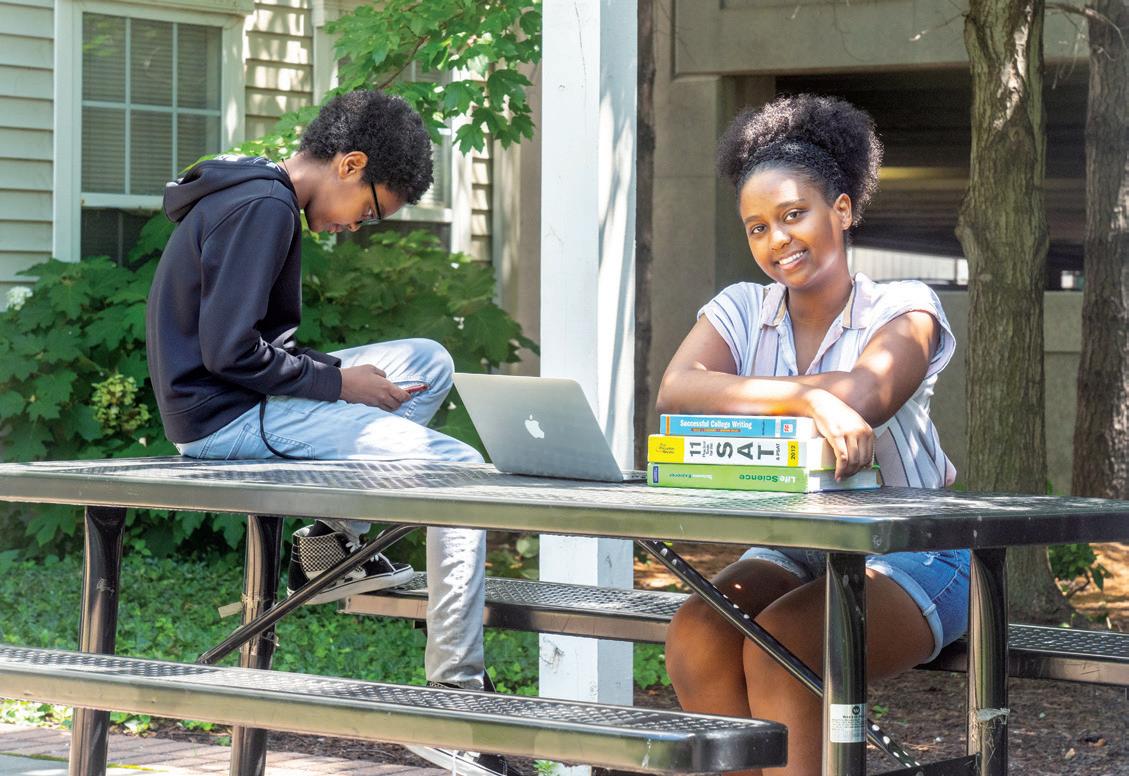
ELENA OGBE, 16, lives near Pentagon City. She was a junior at Wakefield High School, taking a full course load, including three AP classes, when the pandemic hit.
“The big implication of distance learning for me is the work environment. I live in a small apartment with six people, so I usually do most of my work at the library and at school. Before quarantine, I was rarely ever home; I stayed at school and kept busy. My apartment is very small, so being stuck at home is very stressful. I don’t have a desk, so I’ve been working on my bed, propped up against my wall, which has been causing me some back pain, and the amount of time I have to spend on my screen to complete my assignments has also been causing me eye pain.
“For me, AP English has been the hardest because of the workload. I tried
to do it consistently, even at the beginning, when I didn’t know if it was going to impact my grade. But after a while, I couldn’t find the motivation to keep up. I felt trapped inside my house and was dealing with a lot of anxiety. I keep thinking that if I don’t get this grade, then I might not get the scholarship I need in order to go to college.
“Wi-Fi has been a problem. The five other people I live with also need to use it, so the Wi-Fi cuts out a lot, or the Global Protect [that APS has set up on students’ computers] will stop working and I won’t be able to use the internet at all. My [adult] sister who lives in Springfield had to pick me up so that I could take my AP exams at her house in a quiet space with reliable internet.
“I also have two older siblings and a brother in eighth grade. I try to make sure he does his work, but he’s the kind

of student who needs the extra push from teachers. My brother and I go to tutoring after school, but now we’ve both been cut off from those resources.
“Doing well in school is mostly up to us. Our parents expect us to do well, but they went to school in Eritrea and don’t know how school works in this country. They give us money and transportation whenever possible, but they can’t help us with schoolwork. My mom had a job in hospitality and had to file for unemployment. My dad drives a bus in Fairfax. Thankfully he’s still earning some salary. My parents don’t tell me a lot about that.
“I don’t want to blame the teachers— they’re just doing their job. But my ability to raise my grade might determine whether or not I get a scholarship and whether I can afford to go to [college]. It could impact my whole future.”
ELLIE [last name withheld], 14, lives in Falls Church and was enrolled in seventh grade at Longfellow Middle School when the shutdown began. She has high-functioning autism as well as anxiety and ADD. Prior to quarantine, she attended school in a contained classroom environment with other students who also have learning and emotional challenges.
“On my first day [of middle school], I texted my mom: Please take me home. I don’t like it here. I couldn’t yawn in class without getting in trouble, and if we got something right playing a game, we weren’t allowed to have big reactions when we won. It was very frustrating. Even in my favorite subject, the teacher would take the fun out of class.
“Distance learning has been a lot better. My teachers have pointed out that I’ve been more engaged. Because I’m sleeping more, my mood has changed. I went from unhappy, grumpy, frustrated-about-school Ellie to overjoyed Ellie. My mom loves the new Ellie.

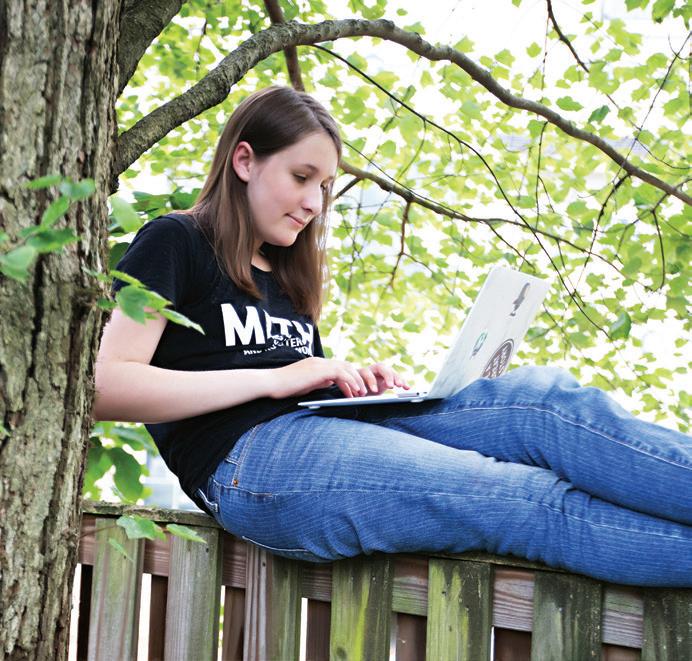

[Synchronous] classes start at either 9:15 or 9:30. I’ve been showing up on time to help improve my grade because I want to get into a good college. During normal school, my grades were suffering, but now that I have more time to complete my work, I’m doing a lot better. If I miss a class or show up late, I immediately get on and apologize and teachers say, ‘Oh, it’s okay, Ellie, I’m just happy that you apologized.’
“I miss my friends, but we’ve made screen dates several times a week. I also get to spend about six or seven hours a day [playing] at the creek near my house. If I start to get my anxiety, I put on headphones and listen to calming whale sounds or play with my turtles. I can engage with schoolwork much better on a computer, and the environment at home is way safer and more calming. I want to keep doing school online, either through Longfellow or maybe private school. As long as I can keep going to the Old Firehouse at McLean Community Center after school.”


ANILA BUTT is a single mom living in Clarendon with her two daughters. During quarantine, Fatima, 11, was in sixth grade at Thomas Jefferson Middle School, and Kareema, 9, was in third grade at Long Branch Elementary School. Anila was a classroom assistant at Full Circle Montessori School and had been taking classes toward her college degree. She earned her bachelor’s degree in early childhood education on July 18.
Anila: “At the start, to be very honest, we didn’t know what things were going to look like for us. It blew my mind that I was going to have to be teaching my children by myself. My younger daughter has an IEP where she requires a lot of help from teachers, both during the school day and after school. English is our second language. My children know five languages—they speak Urdu and Punjabi at home, and they’re learning Arabic at home and Spanish and English in school. Kareema was depending on me so much that she couldn’t read one single sentence by herself. She really wanted me to be there. She had four different teachers sending her homework, but when the school started using [the remote learning platform] Seesaw, they were able to consolidate assignments.
“There was a lot of pressure to keep
up with my job, but thankfully my employer was flexible. I was dealing with the stress of being a student, an employee and a mom. I remember one day when I was working and Kareema came to ask for help; then I got an email from a co-worker who needed something right away, and I also had to finish up some schoolwork for my degree. That was the moment I felt like I was going to cry. It was a lot of pressure. You don’t want to neglect your child, and you don’t want to be seen as not fulfilling your job. I’m a very responsible person—I didn’t want to give them the impression that I couldn’t work from home.
“I learned from my daughters that we adults are so used to having schedules that we don’t see the fruits that life is giving you. Now, this second life that we have at the moment, we’re cool with it. My older daughter sleeps in— she doesn’t get up until after 11. My younger daughter gets up at 8 a.m., gets her iPad, has a full day. Over the course of distance learning, she no longer needs my help. I had an online meeting with Kareema’s IEP counselor and I told her that she might be able to move on. She now reads everything and doesn’t ask for my help—she submits everything on her own. I don’t know if it was having more time, staying home, being relaxed, but she’s really changed.
“Emotionally, my girls are very good. Their life has been so up and down, but they really roll with whatever happens. Fatima didn’t even get upset that she couldn’t see her friends. We were outside at Rocky Run playground the other day and she ran into one of her best friends from school. It was like nothing ever happened.
“We also had our Ramadan—for the first time in eight years, I was able to stay home and do my prayers and break my fast with my children. This pandemic brought mental stress, but it also gave us the privilege to reconnect as a family. We are happy. We enjoy our life.”

down schools.
“At the beginning of quarantine, our science teacher sent us little portable microscopes that we got to assemble on our own. We’d make slides with water, cheek cells, things like that. We got to look at them under the microscope and make diagrams, then post them so everyone could see.
“I used to wake up at 6 a.m. to get to school, but now I’m waking up around 8 a.m., which is when teachers start posting our work for the day. I do the posted schoolwork until around 9 or 10 a.m., then I have one or two Zoom [classes] in the morning. I have another Zoom call at 1 p.m., and then I might have assignments to work on in French, P.E. or music.
“For drama, we were doing commedia dell’arte, and so we did [the character] Capitano’s yoga class. We would do yoga poses and take pictures and send them in to our drama teacher. I’m still learning new things on flute, and we even had a virtual recital. We have math homework every day. After that I usually take a walk with my nanny, practice violin and flute, and read for a little bit. I’m reading a lot of graphic novels, like the
up for a group where you get to read to a kindergartner, so every week I read to my kindergartner and I have her choose new books.
“I’m fairly independent with things, so I don’t really need my parents’ help to do my work. I don’t have any siblings. My parents have both been working from home. My mom has an office in the basement and my dad’s office is on the second floor. Moving to distance learning meant that we could do individual work at our own pace, which was a lot nicer, but we were also able to incorporate with groups, which was a lot of fun. I’m happy not to have to ride the bus home from school, which took about 45 minutes to an hour.
“I have Zoom calls with my friends once or twice a week, and we do Lego challenges and things like that. For birthdays, we’re doing drive-by parades where we drive to their house, honking horns, holding big signs, with maybe some decorations on the car, sometimes jumping up through the sunroof.
“I mostly changed from a public to a private school because in second grade I wasn’t learning things; it was mainly a choice in education. When we hear that public schools aren’t teaching new things…at my school we’re still learning things, not just reviewing things, so I feel lucky to be in that environment.”
MAYA WATSON , 10, lives in Arlington Forest. She was in fourth grade at Burgundy Farm Country Day School in Alexandria when the coronavirus shut Princess Diaries series by Meg Cabot. I signed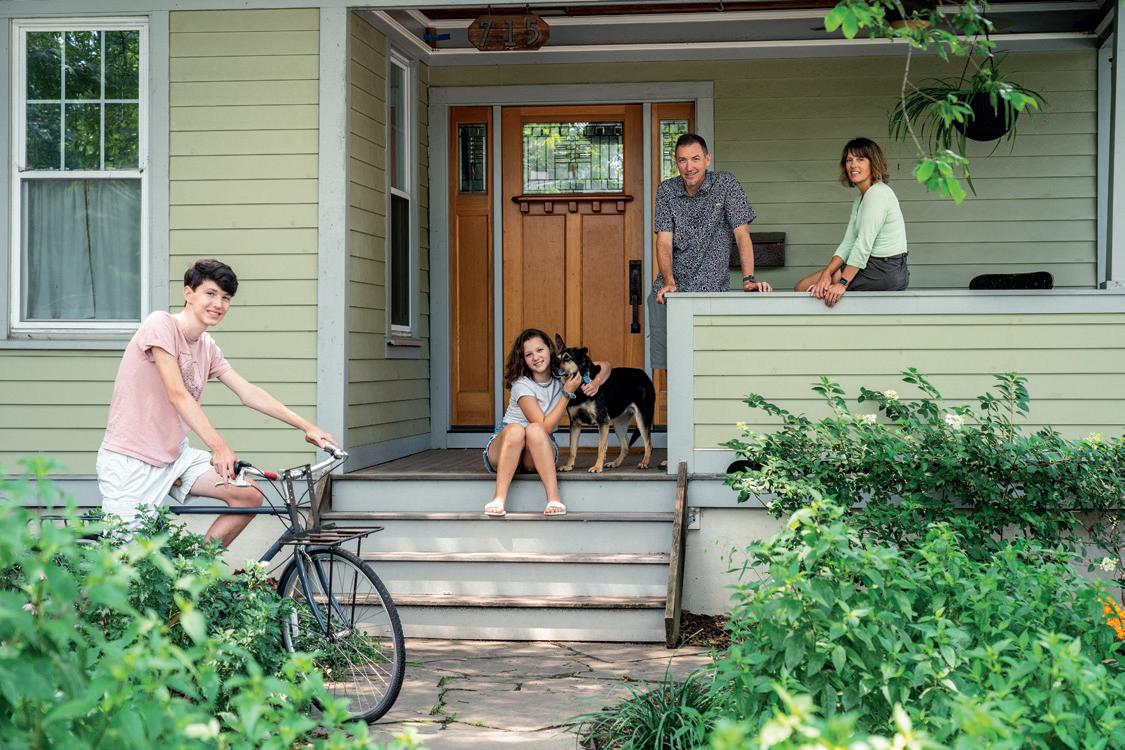
THE MANN FAMILY lives in Aurora Hills. Their household represents four different Arlington schools. Mom Joanne is a sixth-grade reading teacher at Thomas Jefferson Middle School. Her husband, Chris, teaches math at Dorothy Hamm Middle School. Their son, Edwin, 15, is going into 10th grade at Wakefield High School, and their daughter, Maxine, 13, is a rising eighth-grader at Gunston Middle School.
Joanne: “The motivation piece has been the hardest. If kids in middle school are going to be open to learning, what comes first is emotional buyin, the connection and relationships— even more so for kids who struggle a little bit with the skills. As a teacher, it’s been hard to keep kids coming back to engage online. Even if the materials are well organized, it’s a challenge for students to sift through and prioritize what should be done. These kids are having to build executive functioning skills overnight. It was like suddenly
taking off the training wheels and saying, ‘Now you do it!’
“Thankfully, the pandemic didn’t hit earlier in the year. At least we were able to build trust with our students by the time we had to send them off on their own. Next year it’s going to be tough to build relationships with them through the screen. And then there’s the equity piece in terms of access. Going live requires high-speed internet. Imagine households with multiple kids needing to access live lessons at the same time, while parents continue to work from home. Parents are clamoring for live learning for their kids so they can have a regular schedule, but that’s a big issue that needs to be addressed before it’s equitable.
“For kids, peers are the most important thing in their lives. They’re not going to go ask a question that they think is stupid, and it’s much harder for teachers to see questions in their face and body language through a screen. The social-emotional component—
where kids learn how to listen to each other, talk to each other, take risks, have an open mind—we’re going to have some catching up to do for sure.
“APS is doing the best they can, having been blindsided. Equity is a huge focus. Going to live learning, like private schools can do, would mean leaving so many kids behind. On my middle school team, we’re keeping track of each kid and their level of engagement in each of their core subjects. If we notice that there’s a kid who’s had little to no engagement for two weeks in a row, we’ll send them an email or give them a call. But some families have so much stress—health problems, unemployment—that keeping up with schoolwork is just too much. It’s so upsetting not to be with these kids. It’s really hard.” n
Adrienne Wichard-Edds is an Arlington mom and writer specializing in parenting and education. She’s also a college mentor and essay coach. Find her online at @Wich ardEdds and theessaycoaches.com.
The following is a list of the colleges and universities where Arlington Public Schools (APS) high school graduates (Class of 2020) applied and where they were accepted. Data are provided for H-B Woodlawn Secondary Program, Wakefield High School, Washington-Liberty High School and Yorktown High School. Given that the acceptance information was self-reported by the graduates, school officials stress that they cannot verify its accuracy. The data reflect completed applications only. For brevity’s sake, we limited the list to colleges and universities with at least five applicants from the combined high schools.
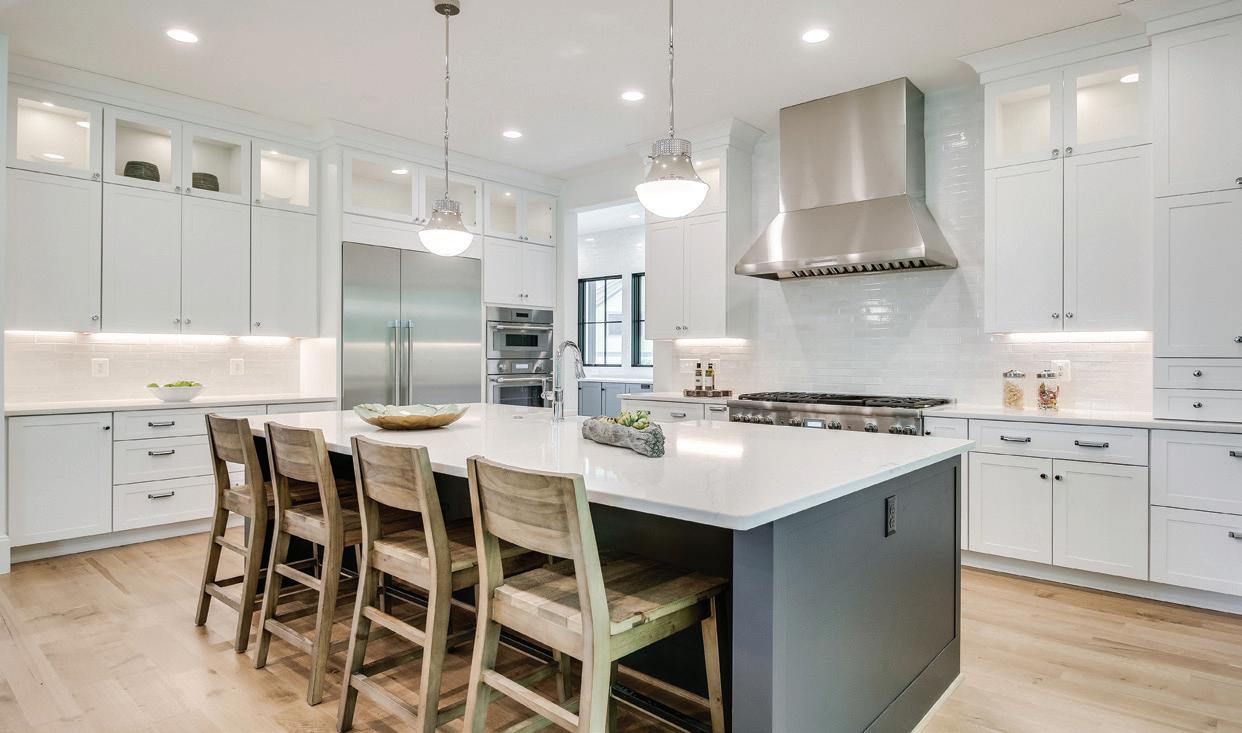



















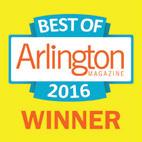

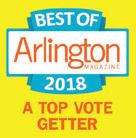

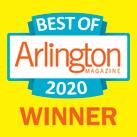
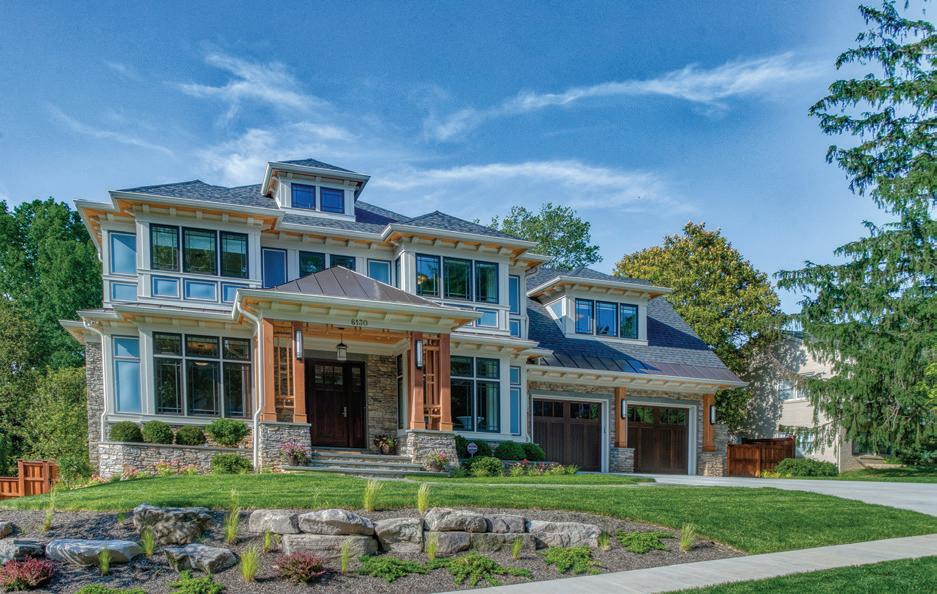


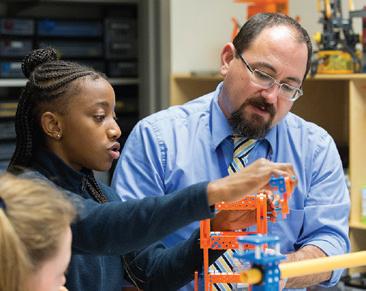

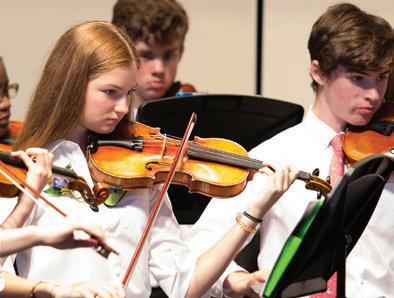

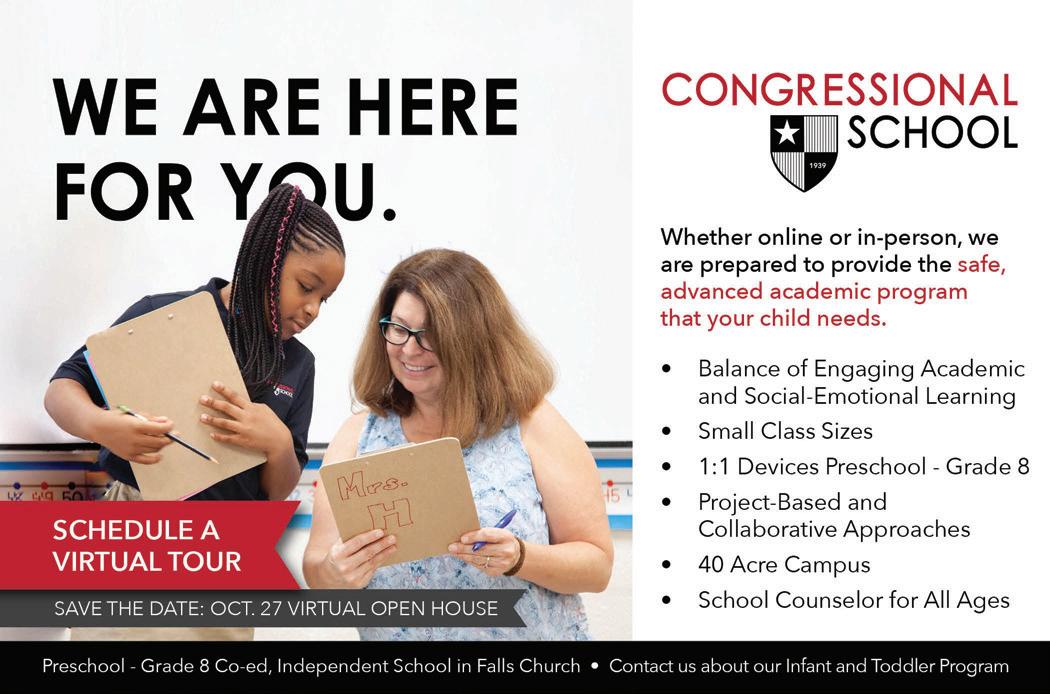
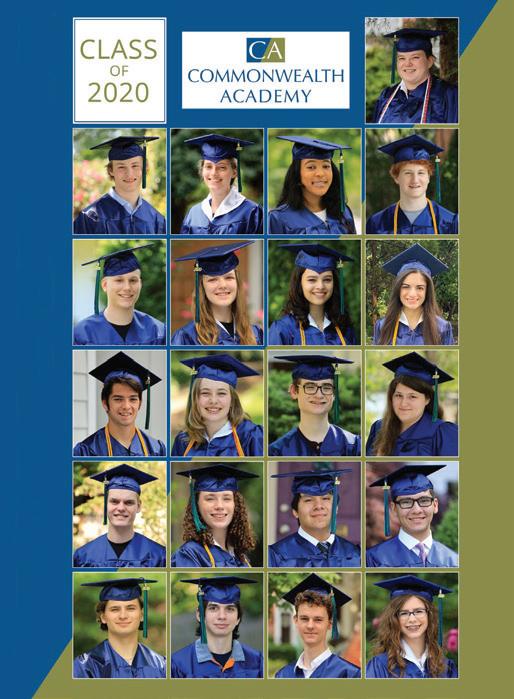
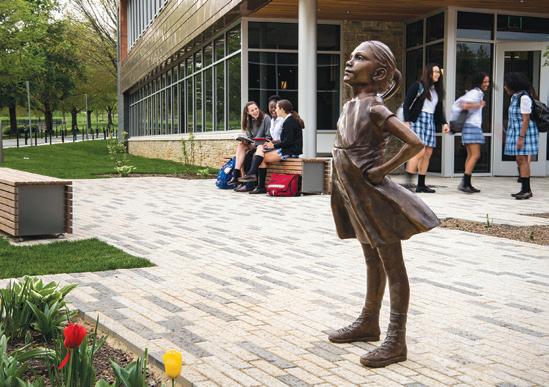



Try something new. Learn a new language, become a scientist, take the stage.
Learn and explore and dream big. Be honored for who you are and who you will become.
Be ready for the academic challenges of college and the world beyond. Lead with goodness and integrity. Become Ready.

Alexandria, VA Age 3-Grade 12 Coed Episcopal Small Class Sizes (12-15) Extensive Bus Service
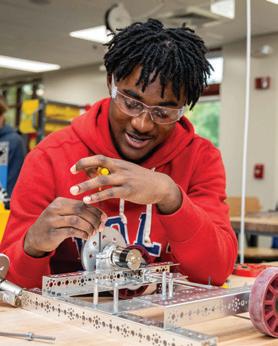
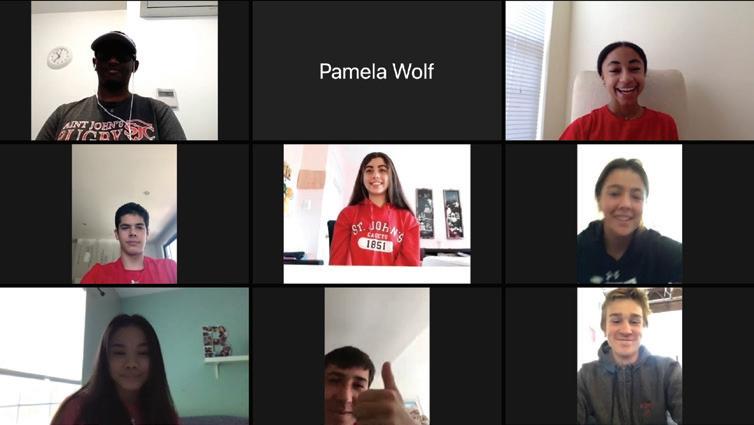
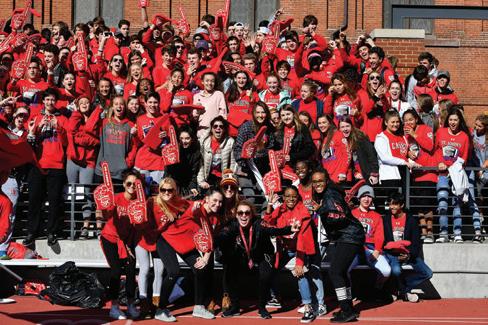
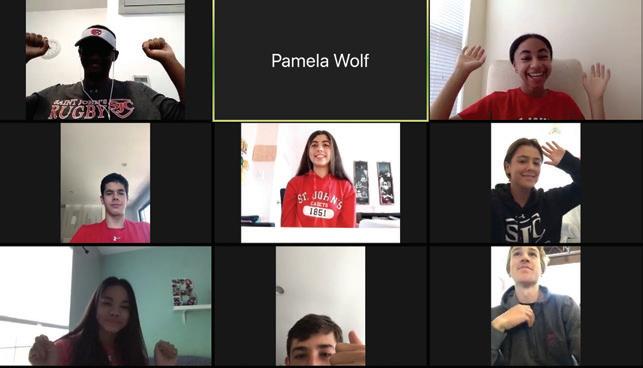
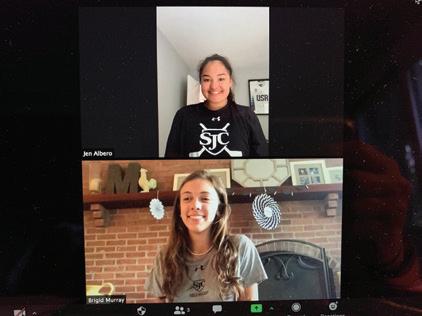


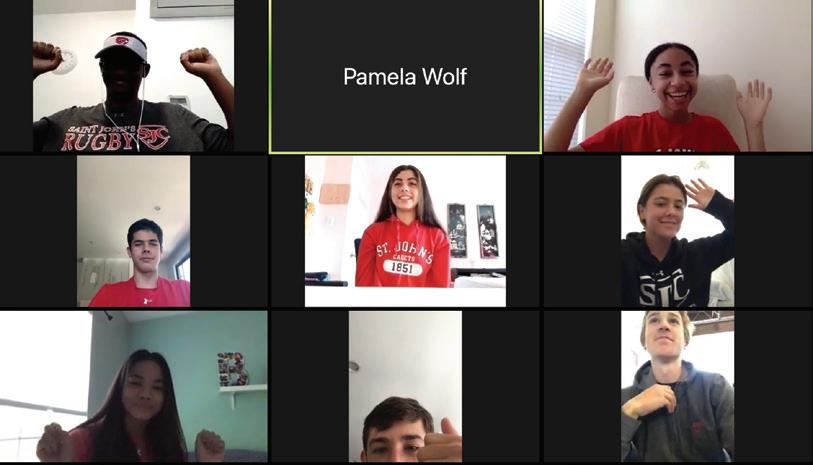
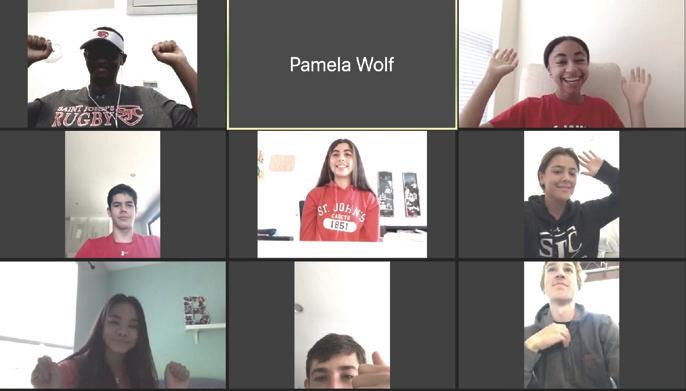



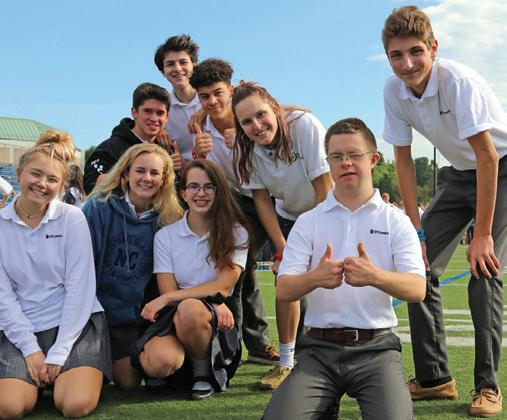


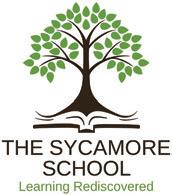

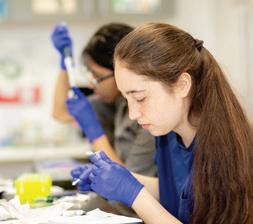
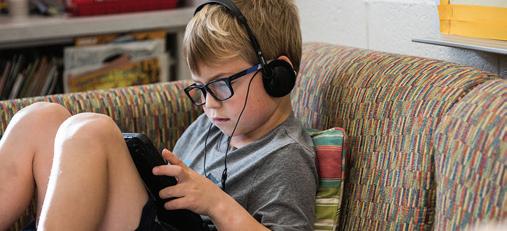


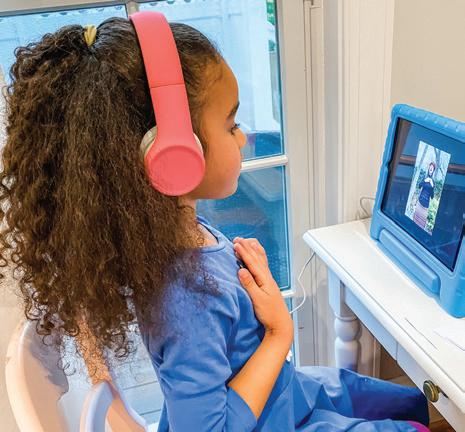




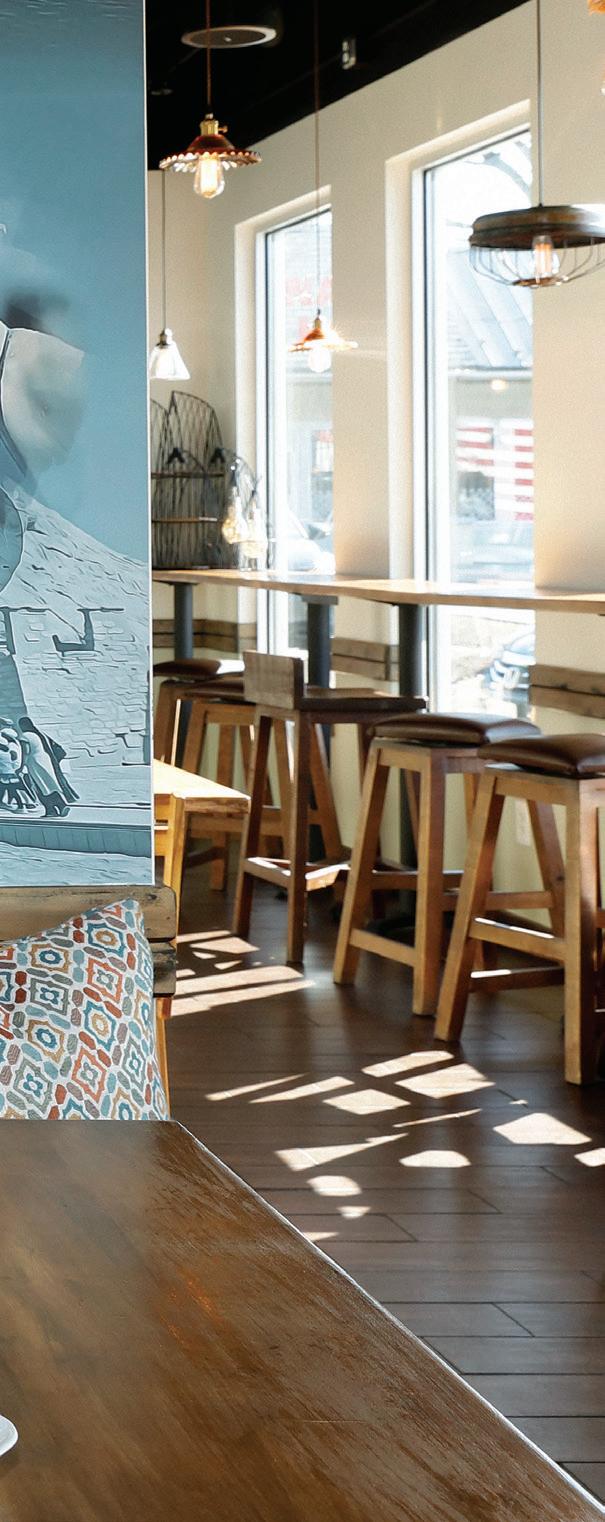
Dina Daniel emigrated to the U.S. alone in 2004. Her restaurant is her extended family. Its fate hangs in the balance.BY DAVID HAGEDORN
The future looked bright for Dina Daniel in early 2020. Fava Pot, the Falls Church restaurant she had opened three years earlier, was thriving—its loyal and growing customer base delighting in the Egyptian cuisine of her homeland. Diners couldn’t get enough of dishes such as koshary (lentils, macaroni, chickpeas and rice in tomato sauce), táamya (fava bean falafel) and fluffs of aish baladi (flatbread) served piping-hot from a stone oven.
The Fava Pot food truck, which Daniel started back in 2013, was preparing to emerge from its winter hibernation. A Fava Pot pop-up in Washington, D.C.’s Union Market had been well received. Now Daniel, 51, was finishing up negotiations to open another brick-and-mortar eatery, Egyptian Street Food by Fava Pot, in Rosslyn this fall.
“Sales were unbelievable in February,” she recalls during our Zoom interview. “I was extremely thankful that I would start to see a profit in 2020 and that my labor of seven years would finally pay off.”
And then. Well, we all know what happened next.
Daniel realized Covid-19 was serious by the end of February, but didn’t panic. “I thought it would affect us for a month or so. I didn’t imagine it would be a global pandemic,” she says. “The weekend before we shut down, we

had a full house at Fava Pot. By St. Patrick’s Day, we were closed.” (On March 17, Gov. Ralph Northam imposed a 10-person maximum for on-site dining. His subsequent stay-at-home order on March 30 limited restaurants to takeout and delivery.)
Daniel was scared but couldn’t show it to her staff. “You don’t want them to be afraid, to have the uncertain feeling—Are we going to get paid? Do we have a job? But I was wondering, Is this the end?”
Reluctantly, she sprang into action. Although it broke her heart, she laid off three full-time and three part-time workers, leaving her entire operation with a staff of six, including herself, to perform various jobs in rotation—cooking, dishwashing, delivering.
Realizing she had to convert phone ordering to online, she put her website developer to work, bartering a deal—$39
per month for each of her three locations, plus 99 cents per food order (with no cap) in exchange for his services.
To bolster cash flow, she began offering free delivery within a 30-mile radius of the restaurant. She and her staff took turns making deliveries. “We had DoorDash and Uber Eats and Grubhub before, but they take 30% of sales,” she says. “Before Covid, that was okay as a marketing tool, but now we would be losing money on each sale.”
While the drives were a grind, delivery exposed her product to people in places like Woodbridge, Middleburg and D.C. who had never been to Fava Pot. And even though delivery was free, she found grateful customers leaving enormous tips, essentially paying the delivery cost anyway.
“All of this is light in the middle of darkness. I see people have great love in
their hearts,” says the chef/entrepreneur.
One day, a regular customer came to pick up an order and handed her what she thought was a postcard in an envelope. She thanked him and threw it on the passenger seat of her car as she headed out to deliver food. At a traffic light, she opened the envelope and found a check for $1,000, along with a note expressing how much he and his wife believed in her and her goodness. They wanted her to use the money as she wished—to share it, pay bills or take care of any needs.
“I broke down in tears,” Daniel says. “That is the moment that I thought, God is taking care of me.”
dropped precipitously during quarantine (as of late June, they were at 40% to 50% of normal). Yet Daniel remains resolute about maintaining her full menu and not raising prices, even though the costs of goods and disposables have shot up.
“Here’s how the equation is still working. We put in extra work on our side, rotating all the jobs to be able to serve the same quality without increasing prices,” she explains. “You can’t raise prices. Not even 10 cents. This is a survival struggle.”
She insists on using compostable takeout products. “A dinner container costs me $1.10. Styrofoam would be less than 10 cents, but I chose to go green and [provide] a nice, appetizing presentation. I don’t want you sitting at home in the middle of a pandemic and eating out of foam and foil.”
In March, sourcing ingredients such as halal chicken and meat, grass-fed veal, and wheat bran and yeast for the bread became difficult. Daniel recalls schlepping all over the DMV in search of specific items, to places like Restaurant Depot (a wholesale food supplier) in Alexandria and Capitol Heights, Maryland; H Mart supermarkets in Annan-
dale and Falls Church; and Aphrodite Greek Imports in Falls Church. Yeast was particularly scarce. She’d comb multiple grocery stores and buy up all the packets she could find.
“Then my contact at Restaurant Depot in Alexandria, with whom I’d been doing business for six years, called me and said, ‘Hey! The truck will be here at 6 a.m. tomorrow. You need to be here!’ And I went, because you have to understand, bread is a main item in our restaurant, not a side item. It’s so important to Egyptian food.”
Packaging posed other hurdles. Her supplier, Acme Paper & Supply Co., ran out of the recyclable paper to-go bags she normally uses, and no one else had them. For a month, she had to use the ubiquitous white plastic bags that she abhors. Disposable gloves were also hard to come by, as was hand sanitizer, deemed a necessity at any cost.
And then there was the rent. Daniel reached out to her landlord, EDENS, with a copy of her sales report from March. They initially offered her a two-month postponement, but no lease forgiveness.
In June, she reached out again. “I said, ‘I’m not here to go out of business; I’m here to stay in business. So postponing the rent is not a solution. Let’s talk about solutions.’ ”
This time they came to an equitable agreement, the terms of which are confidential. “They made a very reasonable offer that is fair for them and for us,” Daniel says. “I can say that this company is a business partner, not just a landlord. I am so blessed.” (EDENS is also the lessor of the pop-up space at Union Market, as well as her apartment building in Falls Church.)
DANIEL, WHO IS a Coptic Christian, has faced other life challenges before. In 2004, she sought and received asylum in the U.S., leaving her friends and fam-
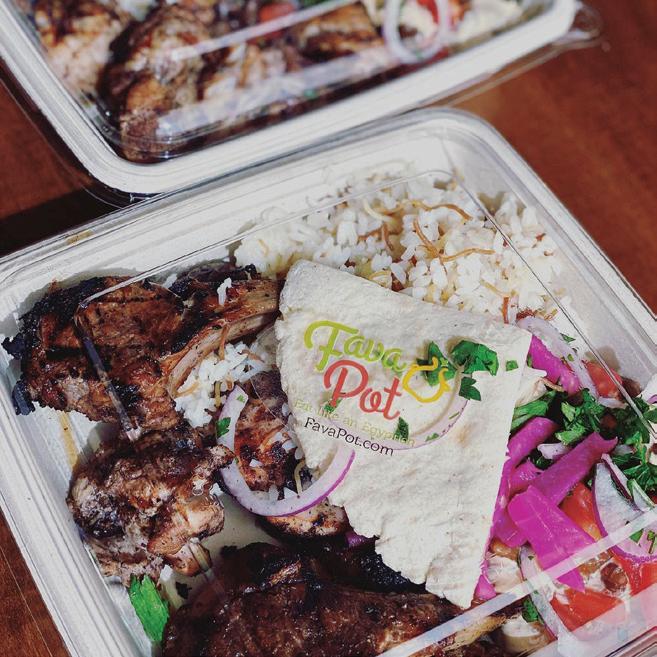
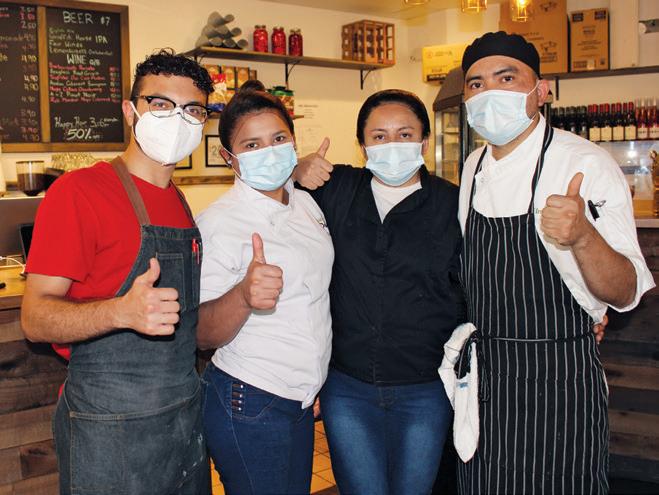
ily—and support system—behind, for religious reasons. In 2007, after holding a series of jobs in the D.C. area, she became the director of donor relations for Coptic Orphans, an AmericanEgyptian nonprofit organization based in Fairfax that provides aid to orphaned Christian children in Egypt.
Six years later, the food truck tsunami took the Greater Washington area by storm, and with it came another calling. Daniel decided to introduce her culture to the American public through food,
putting to use the culinary know-how she’d acquired from growing up around great food. “Extended family and friends were always delighted to get invited for dinner at our house,” she reminisces. She had also learned a thing or two from the chef of an upscale Lebanese restaurant she once owned in Cairo.
The executive director of Coptic Orphans thought she was crazy, questioning why, at 44, she would do something so risky. She told Daniel she’d hold her job open for six months.
But Daniel forged ahead. She tracked down a food truck company in Miami, flew there one weekend and put down a $10,000 deposit on an $85,000 truck. That Monday, she took a food manager course in D.C.
A friend picked her up from the Metro and said she looked ashen.
“I looked and felt terrible,” Daniel recalls. “Something was really wrong with me. My friend took me to her home and I broke down. I was crying. I couldn’t breathe. I thought I was having a heart attack.”
In the ER, her symptoms were diagnosed as acute anxiety. “Apparently, it was because of a lot of change in a very short period. When I saw the truck in Miami, it hit me—Am I able to do this? I always kept things bottled up and it came out as panic attack.”
She canceled the truck and lost her $10,000 deposit. A psychologist helped her work through her anxiety and fear of failure. So did Falafel, the 6-weekold beagle she adopted, now her faithful companion for the past six years. (For her Fava Pot truck, she ultimately bought a used one in Pennsylvania and had it outfitted in Manassas.)
When Covid-19 arrived with all its uncertainty, Daniel remembered the panic attack and how it felt as her empathy for her staff kicked in. “I feel responsibility toward them. I don’t want the atmosphere of the pandemic to be forcing anxiety,” she says. “That’s why it’s important we all do deliveries, so we won’t always be stuck inside. It helps keep minds fresh to be outside.”
The claim that “employees are just like family” is often a hollow one in the restaurant business. But with Daniel it rings true.
Two of her employees, Elmer Ramos and Cintia Lemus Ramos, have been with her since the food truck began in 2013. Elmer started off as a cook and helper; now he’s the restaurant’s souschef. Cintia was a cleaning lady; now she’s a chef supervisor and Elmer’s assistant. The couple met while working on
“If one of us gets sick, we will have to shut down...I won’t put my staff and guests at risk and create more anxiety and stress.”
the truck, married last year, and now have a 1-year-old son, Dylan Samuel.
Two other employees, Stephen Samuels and Ingres “Flor” Prada, have been working for Daniel since 2017. Samuels started as a cashier and is now an area manager, overseeing the Union Market operation. Prada, originally a dishwasher, is another chef supervisor. Sara Reyes, who came to the U.S. from El Salvador in 2018, joined the team eight months ago as dishwasher, and now works prep.
Daniel does not believe the relationships are coincidental. “This is God, 100 percent,” she says. “I’m alone here from Egypt and have no children. He has chosen for me these people of different backgrounds, different educations, different cultures, different everything. He gathered us to run a family business, even if we are not family by blood. If, at any point, I go to heaven, these are the people who will run the restaurant. I’m happy that they contributed to my success and my life and that God used me in their lives. It’s a very beautiful picture.”
She speaks of her staff with the ado-
ration of a proud mother. She got to know Elmer as the two worked long hours, side by side, in the early days of the cramped food truck, hearing how he had suffered in his native El Salvador. “Even though he’s been through so much…he gives the benefit of the doubt to everyone. When my brother passed away, and then [later] my mom, I had to go to Egypt. On these two occasions, his eyes were red. He hugged me and said, ‘You go.’ ”
Samuels, whose family emigrated to the U.S. from Egypt when he was 5, was on the construction site, helping the contractor, when Daniel was building out Fava Pot in Falls Church. She noticed what a hard worker the 17-year-old was and told him to call if he ever wanted to get into the restaurant business. He emailed a week later.
“He is a very smart, responsible young guy. He told me he wants to go to college, but prefers community college to not overwhelm his parents with tuition. Then, after that, he will go to George Mason. I just fell in love with him and hired him. Now he is my left hand. Elmer is my right hand.”
AMID THE PANDEMIC, Daniel applied for the federal government’s Paycheck Protection Program and received $36,600 in May during the second round of funding. She used 25% of it for rent and the rest for payroll, meeting the government’s requirements to have the loan forgiven. Whereas many businesspeople have expressed frustration with the program, Daniel lauds it.
“I am in touch with other EgyptianAmerican business owners [she became an American citizen in 2015] and we all have a similar viewpoint—only in America do you find a government that supports small businesses and gives them forgivable loans during crises.”
She is moving ahead cautiously.
For now, her food truck is limiting its rounds to private functions and special occasions. Fava Pot Union Market reopened at the end of June, but only on weekends. The Rosslyn restaurant project is totally on hold.
She did not open her Falls Church eatery for indoor dining during Phase 2 or Phase 3, even though the governor’s order allowed it. “Now I’m able to operate with almost 50% of my income doing curbside pickup and delivery,” she says. “We will stick to that. If one of us gets sick, we will have to shut down, and I feel we deserve not to have another hit. I won’t put my staff and guests at risk and create more anxiety and stress.”
In June, Daniel started working out with a trainer to get back in shape and renew her mind.
“After I had that panic attack, I decided I will never let myself get to that point again,” she explains. “I’m not allowing any negativity around me. I’m not living in denial; I’m protecting myself and my staff. Even listening to a radio show, if people just want to say, ‘We’ve got problems! We’ve got problems!,’ I turn it off. I only listen to people saying ‘We’ve got problems’ if they are looking for solutions.”
Although she considers herself optimistic about the future, she’s reluctant to even think a week ahead.
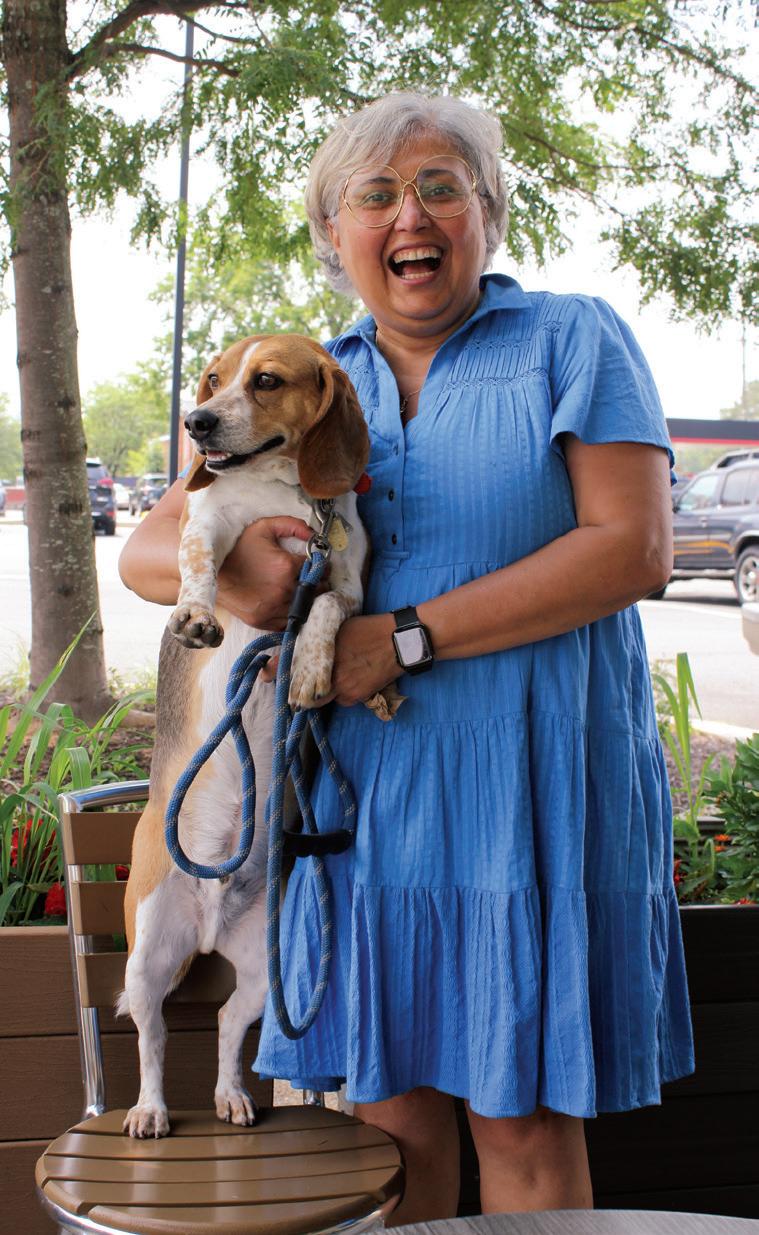
“There might be a vaccine in four or five months, or it might be two years. I like to plan, but you can plan only if you have most of the elements under your control, and I don’t,” she says.
“Delivery and takeout are the only elements I can control; everything else is loose. If another wave comes and there is no PPP, how will we pay our rent, our personal bills? These are
unknown things I’m not in control of, so I’m taking it one day at a time.”
For now, at least, there is koshary and táamya and hot aish baladi from the oven. And there is comfort in that. n
David Hagedorn is the restaurant critic for Arlington Magazine and Bethesda Magazine. He is the co-author of several cookbooks, including Rasika: Flavors of India.

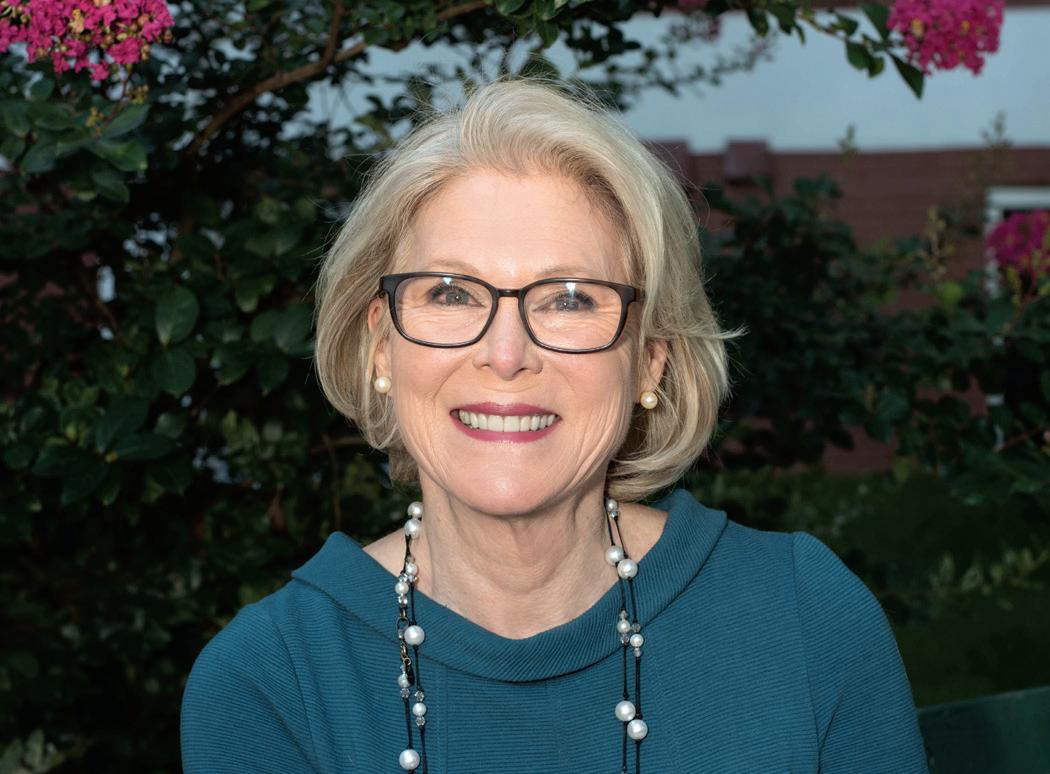 MARTA HILL GRAY, EXECUTIVE DIRECTOR, ARHC
MARTA HILL GRAY, EXECUTIVE DIRECTOR, ARHC
“I am so pleased and honored to be carrying on the great work done here at Culpepper Garden. The renovation has given new energy to the organization and we are excited to see what the future holds,” says Culpepper Garden’s new executive director, Marta Hill Gray.
Culpepper Garden
4435 N. Pershing Dr. Arlington, VA 22203
703-528-0162 www.culpeppergarden.org
Culpepper Garden is Northern Virginia’s largest affordable rental community for people over age 62 and the only affordable community that includes assisted living. The rst affordable housing built in Arlington, it was founded by volunteers from the Unitarian Universalist Church of Arlington on over four acres of once-rural land donated for the purpose of affordable elder housing by Charles Culpepper (1888-1980). The Arlington Retirement Housing Corporation is its nonpro t sponsor.
The mission of the organization continues to ourish. Residents can age in place at Culpepper Garden with services added as their needs increase. The vitality of the organization is sustained through wonderful partnerships with Arlington County, state and federal agencies, the faith-based community, community-based foundations and donors, volunteers, and community leaders.
An extensive renovation began in April of 2018 and is scheduled to be completed in late summer 2020. Along with major infrastructure renovations, the kitchens were updated with new xtures and appliances, and the bathrooms have increased accessibility with stepin showers and grab bars. Ten percent of the apartments are fully accessible. Improvements included increased bright and sunny public spaces; a fresh new kitchen and dining room; a refreshed meeting space; and a modernized computer room. There are 346 units, including ef ciencies and one-and twobedroom apartments. Newly renovated apartments are currently available.

MAUREEN AND JOE KAMMERER, RESIDENTS
Vinson Hall’s two Independent Living apartment buildings are open only to commissioned officers and immediate family from all U.S. Uniformed Services, as well as government employees of equal rank from select government agencies. Assisted Living, Skilled Nursing, Long-term Nursing and Memory Care are open to the public.
Vinson Hall Retirement Community
6251 Old Dominion Dr. McLean, VA 22101
703-536-4344 www.vinsonhall.org
When Joe and I decided to free ourselves from the upkeep of a large home, we agreed we wanted to stay in the D.C. metropolitan area. It was important to us to maintain the ties we had to our community of 30 years.
After exploring other retirement communities, we chose Vinson Hall. The majority of the residents have military and government backgrounds, so my Pentagon-retiree husband would fit right in. Also, there seemed to be more men here than at other places. Both of us wanted a vibrant community with a diversity of interests and activities.
I always say that Vinson Hall is the place to come if you want to have fun. We never run out of things to do. There are frequent outings to area performances and museums. For example, we visited the Frank Lloyd Wright’s Pope-Leighey House in Alexandria earlier this year. Talented performers come to our beautiful
ballroom as well.
As an artist and sculptor, I’ve enjoyed taking and teaching classes here. Joe loves the photography classes. We’re involved in the Vinson Voices choir, gardening and volunteering at a local elementary school. We appreciate the marvelous library and its librarian who has been here more than 30 years. The fitness center schedule is always evolving—the newest addition is a bocce ball court. And whenever we slow down, it’s easy to fall into good conversations with our neighbors.
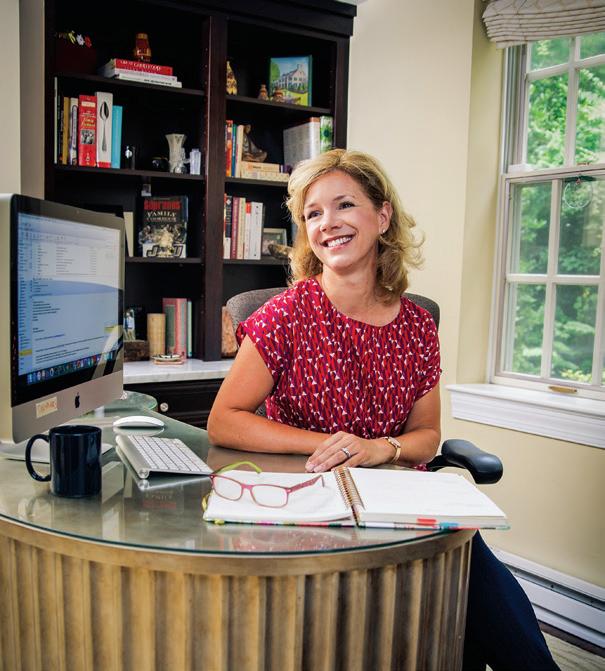
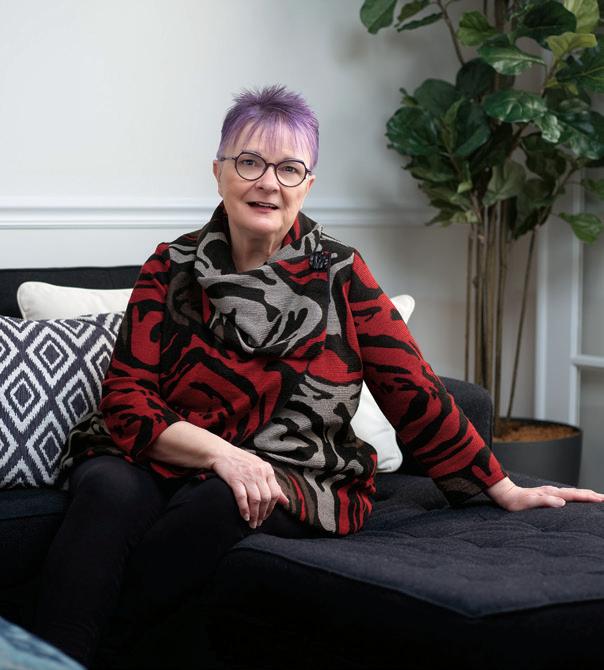
Simply Downsized, LLC
Serving the D.C. Metro Region 703-402-0471 annanovak@me.com www.simplydownsized.com
Busy people often delay a downsizing move because they dread the many decisions and hard work that will be required to make it happen. Anna Novak founded Simply Downsized to ease the burden of complex home transitions for retirees, seniors and their families.
Anna selects and oversees thoroughly vetted local professionals who can assist with any aspect of the process, including planning, budgeting, housing selection, downsizing, donations and estate sales, preparing a house for market, packing, moving and unpacking.
A dedicated downsizing coordinator can help make the experience more efficient and pleasant for everyone involved. “In many cases, we save our clients so much time and money that our services pay for themselves,” says Novak. “People tell us they wish they had called us sooner.”
ASSOCIATE BROKER
Certified Senior Advisor, Cer tified Aging-in-Place Specialist® McEnearney Associates, Realtors 4720 Lee Hwy. Arlington, VA 22207 703-328-0143
MoveOrImproveWithDebbie@gmail.com www.BoomerHousingOptions.com
When someone hires Debbie Miller, she says they are “renting a daughter” with the expertise to handle all the details of the entire home transition process, whether they remain safely in their current home or move to a new one. Her top priority is easing a client’s stress and the family’s as well.
Since 1995, she’s helped hundreds of seniors and adult children in Northern Virginia make the right housing decisions. Hoarders, widowed, divorced, active adults, solo seniors, and executors of trust and estate properties have all benefited from Miller’s ability to get the job done.
Past clients testify that she’s taken their worries away when they were overwhelmed and unsure. Miller offers expertise on her podcast, “Move or Improve with Debbie,” on Alexa, Spotify and iTunes.
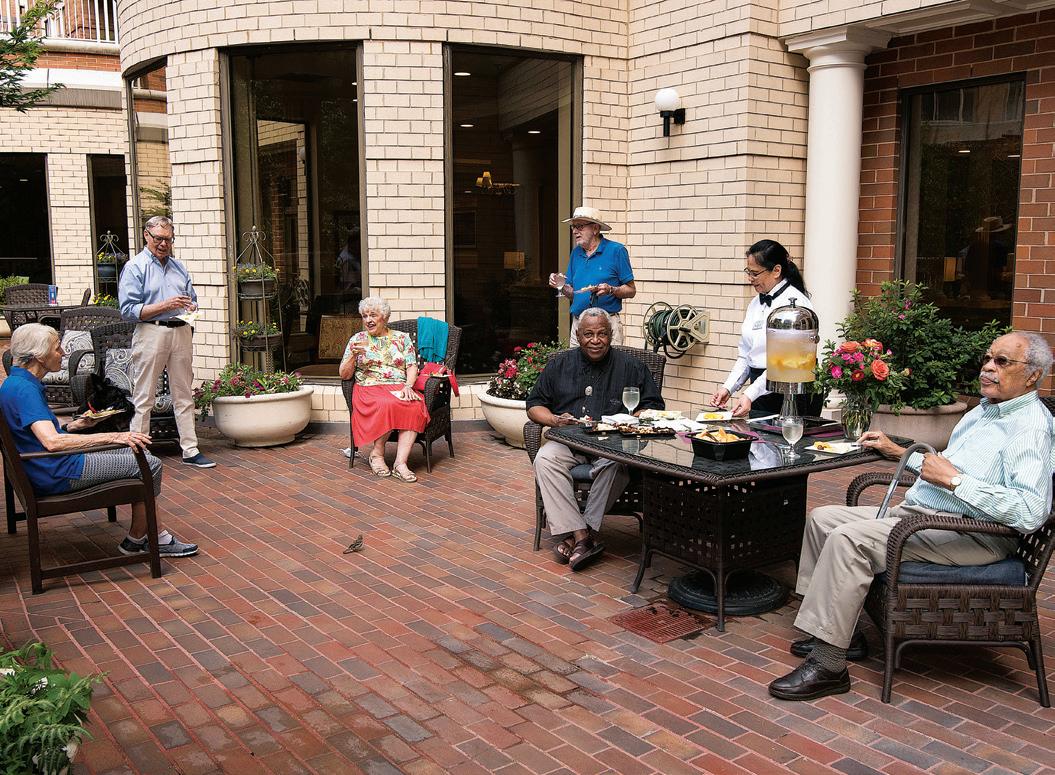
At The Jefferson, couples in independent living can stay together when one needs care. The Jefferson offers rehabilitation, assisted living, memory care and a FlexCare program in independent living. Residents who choose Flex-Care may hire a private caregiver for 30 minutes or more each day.
The Jefferson 900 N. Taylor St. Arlington, VA 22203
703-516-9455 www.thejeffersonrealty.com
allan Broehl
marge Corrieri
Pete Crews
wes Jones
Dr. Calvin sinnette
In the heart of Arlington’s bustling Ballston neighborhood, life at The Jefferson combines ease-of-mind community living with effortless access to urban adventure. Residents, who affectionately call themselves Jeffersonians, are within walking distance of a wide selection of eateries, shops, the Regal Ballston Quarter movie theatre, the UPS Store and more. The Ballston Metro and bus depot are just one block away, providing quick transportation into Washington, D.C., where residents routinely venture to explore the city’s world-class museums, theaters, restaurants and shopping.
Prospective residents are often surprised to learn that the units are individually owned and offered for sale or rent by the owner. Homeowners and renters pay a reasonable monthly fee to benefit from all The Jefferson’s amenities and services, such as 30 fine dining meals per month, weekly housekeeping,
transportation and a wellness center. Residents report a strong sense of community. They are very active and have great participation in activities. More than half of the 325 residents participate in Google Groups, a great way of communicating discount tickets to the Kennedy Center for a matinee dress rehearsal or announcing a happy hour group heading out to the hotel next door. Over the last four years the politics discussion group has grown from ten to about fifty who meet to discuss current events and issues. They take turns as moderator and assign interesting homework. Team Trivia on Saturdays is a favorite. Jeffersonians know how to have fun and find enrichment in their community and beyond.
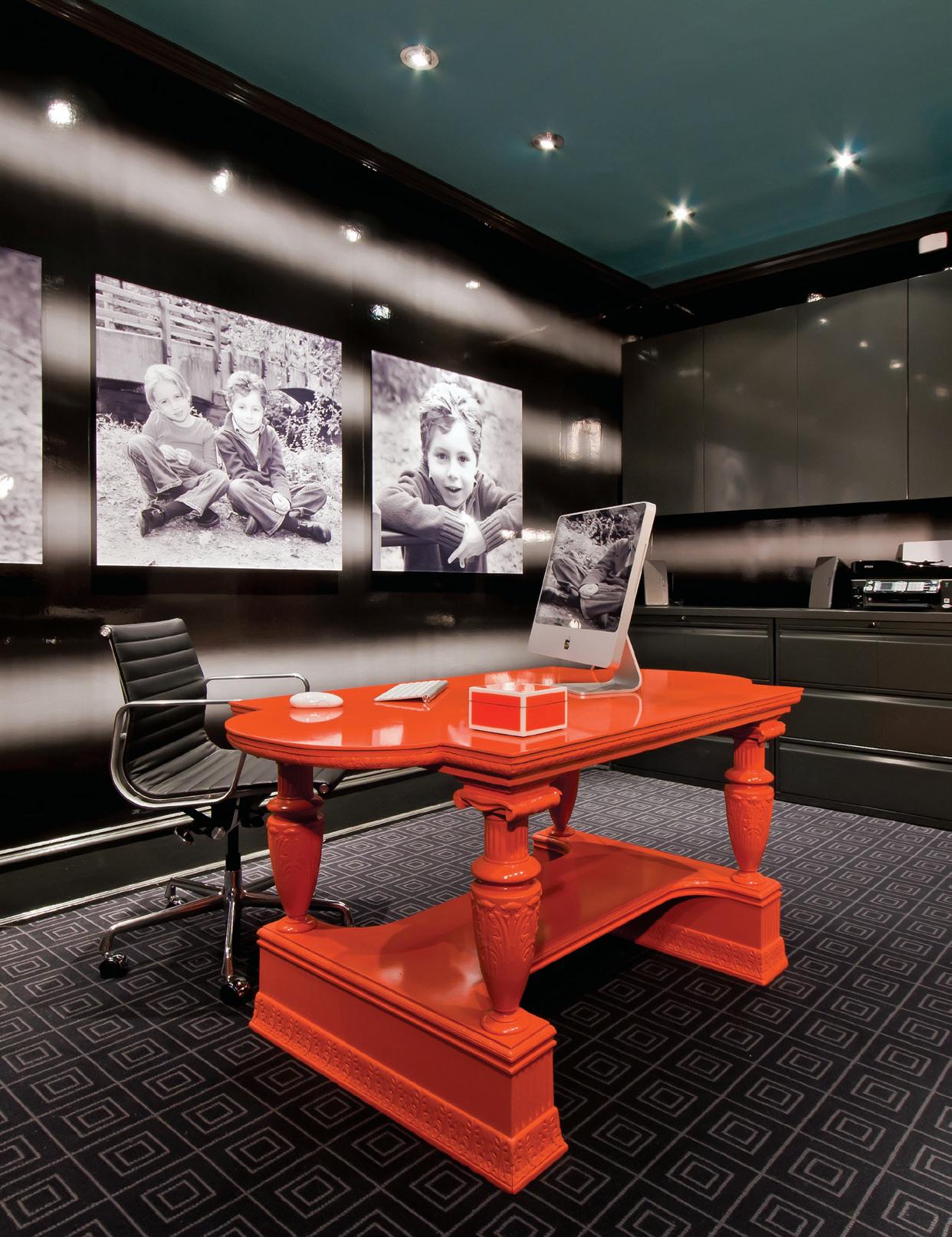
We asked local experts to weigh in.
CARLY AND PATRICK COLEMAN were initially disappointed that their custom bookcase/Murphy-bed unit was too big for the living room of their townhome in Courthouse. They’d been hoping to put it on the main level when they bought the place in 2018, but only the basement could accommodate it. “We were super-upset that it had to go downstairs,” Carly recalls.
Fast-forward to March 2020, when Covid-19 was filling hospitals and forcing stay-at-home orders. Patrick, an emergency-room physician at Inova Fairfax Hospital, found himself taking up residence in that
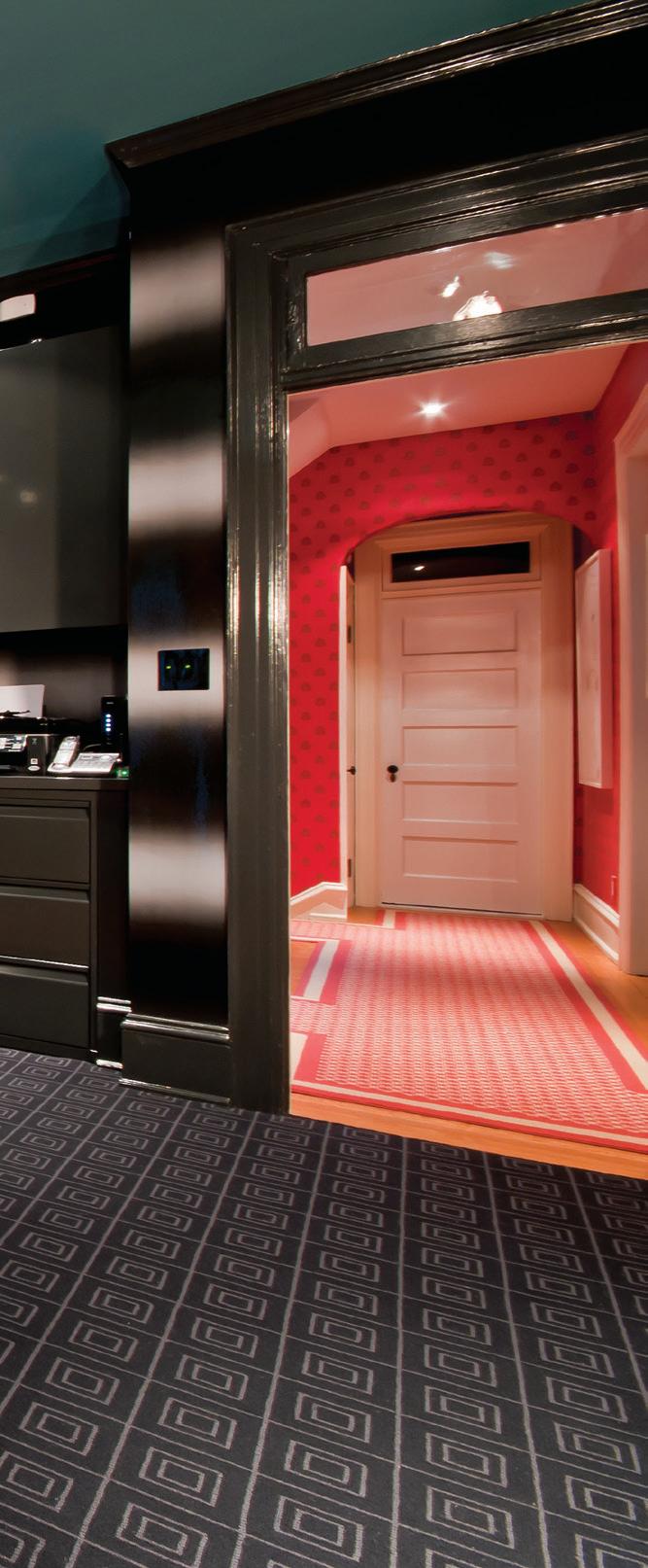 By Jennifer Sergent
By Jennifer Sergent
basement to protect Carly, who’s expecting a baby in November, and their 2-year-old daughter.
“We’re lucky in that we do have multiple floors, and I can completely isolate on a single floor,” Patrick says. Murphy-bed basement to the rescue.
With a full bath on the lower level, “it’s actually kind of a sweet setup,” Carly said in a June interview, “except that it doesn’t have any windows.” (That, plus the fact that she’s had to don a mask and special slippers to deliver Patrick’s meals.)
The pandemic has forced us to rethink our homes in ways we might never have imagined. Working, cooking, entertaining and recreation have coalesced under one roof for everyone in the family, for better or worse.
“This kind of event has a cathartic effect; you start thinking about the totality of all that you’re doing,” says Stephen Yeonas Jr., a partner at Artisan Builders in McLean. Looking ahead, “it’s going to be more about what types of spaces do you need and where do you want them, rather than ‘I just want to build a big house.’ ”
In the homes of the not-so-distant future, rarely used spaces such as formal dining and living rooms—which were already on the wane—may be eliminated altogether. Arlington organizer and decorator Gretel Lynch says one client who was contemplating a living-room makeover changed course during the shutdown, opting to trans-
form it into a home office instead.
Residential design experts predict functional spaces such as mudrooms will gain more importance—and square footage—as “decontamination” zones with laundry, food storage and mailorder package areas joining shoes, coats and bookbags. Many renovations are already including secondary, upper-


level family rooms tucked away from the public spaces downstairs.
Old rules won’t apply in the post-pandemic house, and no room is safe from scrutiny. We asked local builders, architects, designers and real estate agents to elaborate on what they’re seeing, and the kinds of solutions clients are considering for future construction and renovations.
The era of quarantine has proved that many people can work from home quite successfully—maybe even for good. “Workspace at home is definitely going to be more desirable,” says Theo Adamstein, an architect-turned-real-estatebroker with TTR Sotheby’s in Georgetown, “and designed to be separated from family space, with more than one office.” With commutes no longer an issue, even far-flung second homes can become primary residences, he says.
The inaugural ASPIRE House, a designer showcase home in McLean built by Artisan Builders, illustrates the work-from-home concept with a library/ office on the main level designed by interior designer Nestor Santa-Cruz, and a teen hangout and workspace upstairs designed by Jodi Macklin. The show home opens for tours (both on-site and virtual) in August.
Falls Church architect Seth Ballard says he’s taken the idea a step further, designing separate, soundproof office wings so families aren’t subjected to every member’s Zoom calls.
As part of a ranch-style home renovation in Arlington, architect Charles Moore is adding a new second floor and converting the first-floor bedrooms into an office and work/play space for the kids. “It reinforces the notion of creating specific action spaces for each member of the family,” says Moore, whose firm is based in Falls Church.
Of course, more people working from home can tax connectivity, making internet less reliable, notes Michael Sauri, co-owner of the Arlington designbuild company TriVistaUSA. He’s one of

several builders envisioning homes with commercial-caliber wired broadband and built-in speakers—installed invisibly, behind drywall—plus better conferencing cameras and lighting. “You’re not trying to be a TV-show host,” Sauri says, but you can still have a work setup that functions seamlessly.
“For the foreseeable future, everyone’s working from home, on conference calls. The kids are online, too. Internet connectivity—usually wired, not wireless—is the simplest low-cost, high-value add,” Sauri says. “You’ll see a huge difference on video calls.”
Kitchen design will surely incorporate greater food storage because we’re all cooking more, observes Jessica Petrino, an appliance educator at AJ Madison Home & Kitchen Appliances in Tysons. Chest freezers were on back order for months after the shutdown began— sales were up 269% from the same time in 2019, according to the company’s internal reporting, and refrigerator sales were up 95%. People don’t want to shop for groceries as frequently, Petrino says, because each trip out means potential exposure.
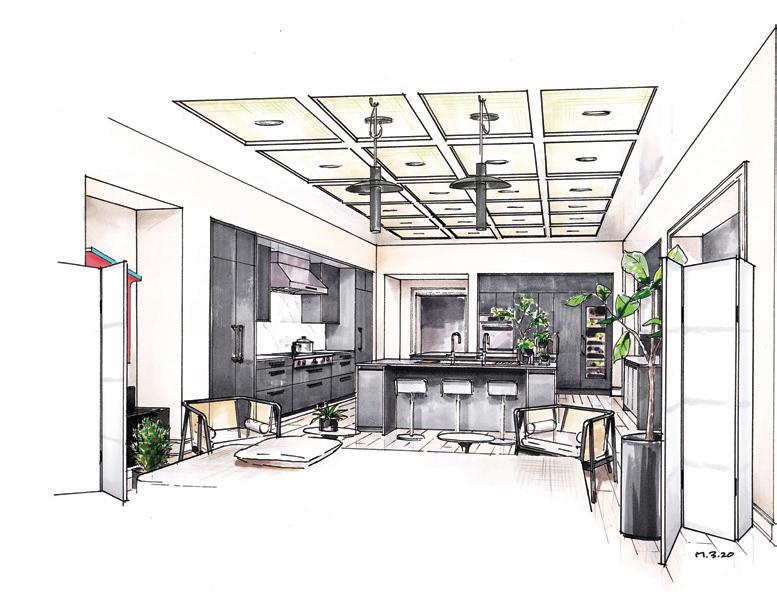
ing the ASPIRE showhouse kitchen, included smart appliances such as a fridge with ingredient-tracking cameras that make grocery shopping more efficient. His concept also features a large, flat-panel TV in the wall, which can display online recipes and allow for Zoom happy hours with friends. These features were planned before the pandemic, Carnemark says, “but [quarantine] put a big exclamation point on them.”
ing our houses and disinfecting spaces,” Petrino says, adding that she’s seen an uptick in requests for dishwashers and washing machines with sanitizing functions.
Jonas Carnemark, who’s design -
Exposure risk has also translated into a heightened demand for a clean, sanitary environment. “As a society, we’re more mindful of how we’re clean-
At NV Kitchen & Bath in Falls Church, clients have been asking for touchless technology such as handsfree faucets, motion-sensor lighting and voice-controlled TV, owner Mike Akpinar says. They also want kitchens with antimicrobial counter surfaces such as nonporous quartz and solid-surface products like Corian.
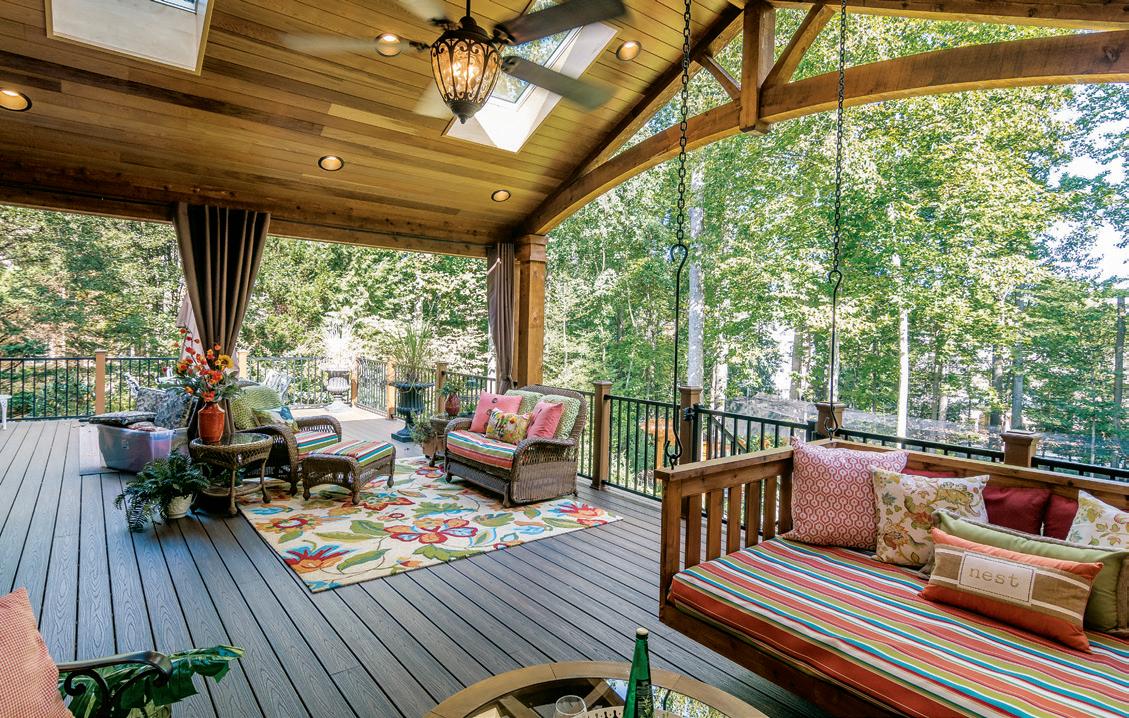
The pandemic has prompted an intense focus on outdoor spaces, which offer the only safe place for homeowners to entertain. “It’s been a running joke in the office that everyone who’s calling wants a screened porch,” says Wilma Bowers of Bowers Design Build in McLean. “Now that they’re stuck in the house, they want an outdoor space built in conjunction with the kitchen. Everyone wants an extension of their home.”
Her firm is outfitting open-air spaces with fireplaces, TV and speaker systems, high-end finishes and power sources for lighting and laptops.
At AJ Madison, sales of outdoorkitchen appliances are up, Petrino reports, as are wine fridges.
And because public pools are either closed or open with restricted occupancy, inquiries about backyard pools have skyrocketed, says Arlington land-
scape architect Jennifer Horn. “Everybody wants to build a pool right now, and everybody wants to build a fire pit. They say, ‘This is the only way I can see my friends.’ ”
D.C. designer Kiyonda Powell serves on a committee of the national Black Artists + Designers Guild (BADG) that’s organizing a virtual house of the future, to be presented this fall. The concept house—which will be digitally superimposed on an actual homesite in Oakland, California—could include a dining room with a table that extends onto an adjacent outdoor terrace.
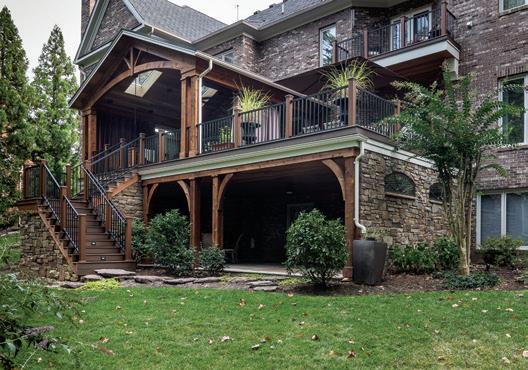
the ASPIRE house. “We’re really thinking twice or three times about how each space can be reimagined for different scenarios.”
“We’re specifically looking at what it means to live on the other side of Covid. How do we use spaces in multiple functional ways?” says Powell, who’s also designing a multitasking rec room in
For example, the BADG concept house will feature a pool house that can be converted into a parents’ or caregiver’s suite, she says, and a “sanctuary structure” farther back on the property that offers a quiet escape for yoga or meditation.
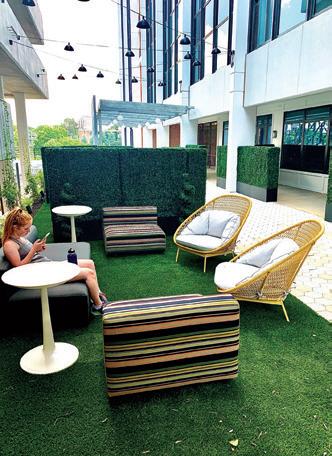
Of course, not everyone has a singlefamily house and a yard. In fact, a majority do not in Arlington and Falls Church City, where multifamily dwellings (industry parlance for apartments and condos) accounted for 65.5% and 53% of the housing stock, respectively, in 2019. Those numbers were already expected to increase in the coming years as municipalities add density to keep pace with population growth. (In Fairfax County, multifamily buildings represented 29.4% of housing in 2019, but are expected to account for 41% of it by 2045.)
Then came the pandemic, which has set two opposing forces in motion when it comes to housing, says real estate agent Trevor Moore, a vice president in Compass’ Arlington office—space and cost. On one hand, people want more space so families aren’t on top of each other. But with the economic downturn and spikes in unemployment, he says, large single-family homes aren’t an option for everyone. “It’s made people rethink budgets quite a bit.”
While move-up buyers with the means to do so are continuing to leave apartments and condos for townhouses and single-family homes, a significant share of the local population lives in mid- or high-rise buildings—where residents must reckon with dozens or even hundreds of other people in close quarters. Designer Phyllis Hartman is grappling with this issue for projects currently in development. She says she’s adding built-in office space in the apartments of one project in Reston

(a direct reaction to Covid-19), but the bigger challenge is making people feel safe in the large communal areas of residential buildings that have become a draw in recent years for socializing and coworking.
“People in multifamily buildings are going to want to get out of their unit,” says Hartman, principal of Hartman Design Group in Rockville, Maryland. “The importance of amenity space is going to be increasing, not decreasing. It’s a matter of how we make adjustments.”
As it turns out, some of the spaces her firm has already designed in Arlington— projects such as 1800 Oak in Rosslyn and Instrata and The Bartlett in Pentagon City—are well equipped for the postpandemic era. Small, shared work pods and glass-partitioned booths were originally designed for privacy and soundproofing; now they’ll add a layer of safety and physical distancing once common spaces open back up, Hartman says.
Going forward, she envisions fewer large, communal coworking tables in the common areas of multifamily buildings. Instead, watch for outdoor working pavilions equipped with power outlets; larger package rooms with self-service lockers; and separate delivery entrances.
For those who want to live and work at home—including small-business owners with employees—the newly opened Mission Lofts in Falls Church aims to offer a hybrid option, with 156 units designed for either residential or office use. Thanks to creative zoning

that developer Highland Square Holdings worked out with Fairfax County officials, what used to be an office building has been transformed so tenants can either live or work there—or do both.
It’s proved an innovative way to convert commercial space that’s emptying out—a trend the pandemic will only accelerate as more people work remotely, says Rob Seldin, Highland Square’s CEO. “People have specifically chosen it because they can facilitate living and working in the same place.”
His company first developed this model in 2016 with e-Lofts in Alexandria. Now three more live-work projects in former office buildings are underway in the Skyline area of Bailey’s Crossroads, just south of the Arlington County line. “One of the big challenges for buildings is to be flexible and adapt to changing market conditions,” Seldin says. “It’s a huge problem—adapting buildings to how people want to use them.”
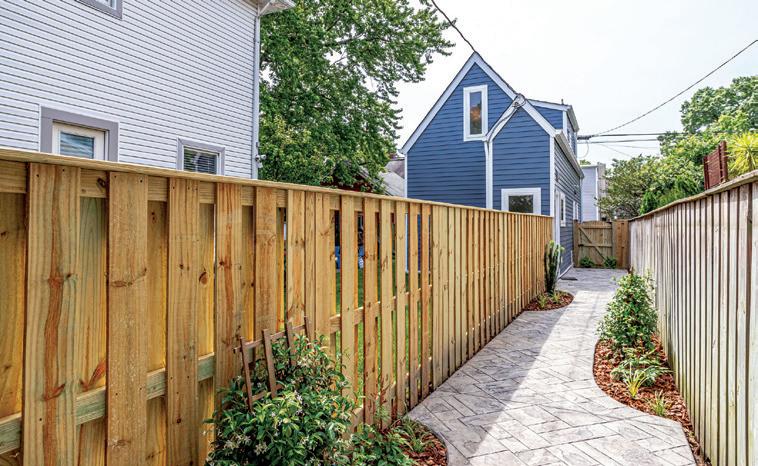
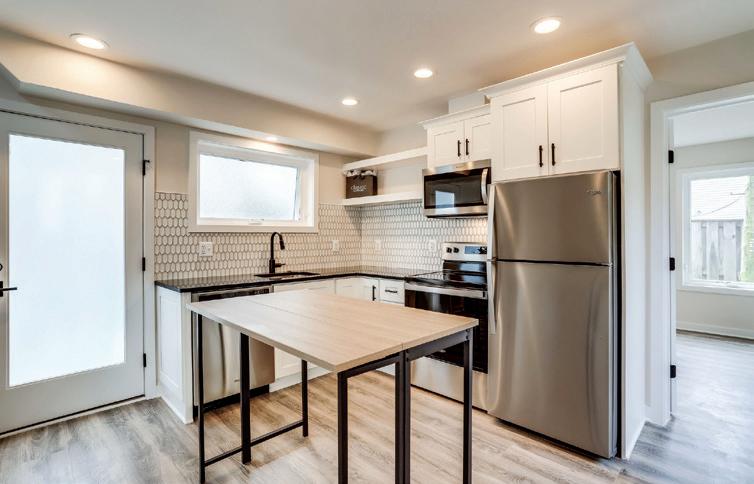
“People don’t want their parents in a nursing home anymore—go figure,” says architect Ballard. He’s currently designing a house in McLean where an elevator off the mudroom goes straight up to a separate apartment for the owners’ parents. Similarly, one of architect Moore’s latest projects is for returning clients who asked him to design a separate structure on their Falls Church property— one where the wife’s parents can live when they’re not wintering down South. “The parents are paying,” Moore says.
“To me, this type of project is another outgrowth of Covid.”
Classic Cottages, an Alexandria home builder, anticipated this trend even before the pandemic began. In 2019, it formed a new division called Backyard Cottages that’s dedicated to building stand-alone residential structures—aka “accessory dwelling units” (ADUs)—that coexist on the same lot with a larger house. Arlington County last year began issuing permits for ADUs. The units still require special-
use exceptions in Falls Church City and Fairfax County, but Fairfax County is looking to ease those regulations.
“It’s really taken off on the West Coast, and we think it’s a big opportunity in Arlington,” says Pierce Tracy, Classic Cottages’ vice president for business development. “We look at it as an evolution of the single-family space, but disconnected [from the main house].”
Where separate structures aren’t feasible, Akpinar and his team at NV Kitchen & Bath have been transforming basements into one-bedroom apartments with kitchens and full bathrooms. Even if no one is living there full time, he says, they make great flex spaces for exercise, work or a hangout for teens who want to get away from parents.
And the reality is, whether it’s a detached structure or a discrete apartment inside the main house, these self-contained units are ideal for sick patients who need to quarantine—or frontline workers like Patrick Coleman, the E.R. doctor, who need to isolate from family members.
“I’m not optimistic that this is going away anytime soon,” Coleman says. He knows many health care workers who’ve had to move out of their homes to keep everyone safe, so he considers himself lucky to have his basement space.
For now, he’s doing OK and has devised a routine for coming home each day, shedding his scrubs into industrial garbage bags in the garage before going straight to his basement bathroom to shower.
He and his wife have no immediate plans to renovate their townhouse— though it might be nice to have some kitchen space in that windowless basement, he admits, and some sunlight would help. “I have a TV down there,” he says. Maybe I can just set it to a screen saver of the beach!” n
Arlington-based design writer Jennifer Sergent also pens our Great Spaces column. Follow her DC by Design blog at jennifersergent.com.
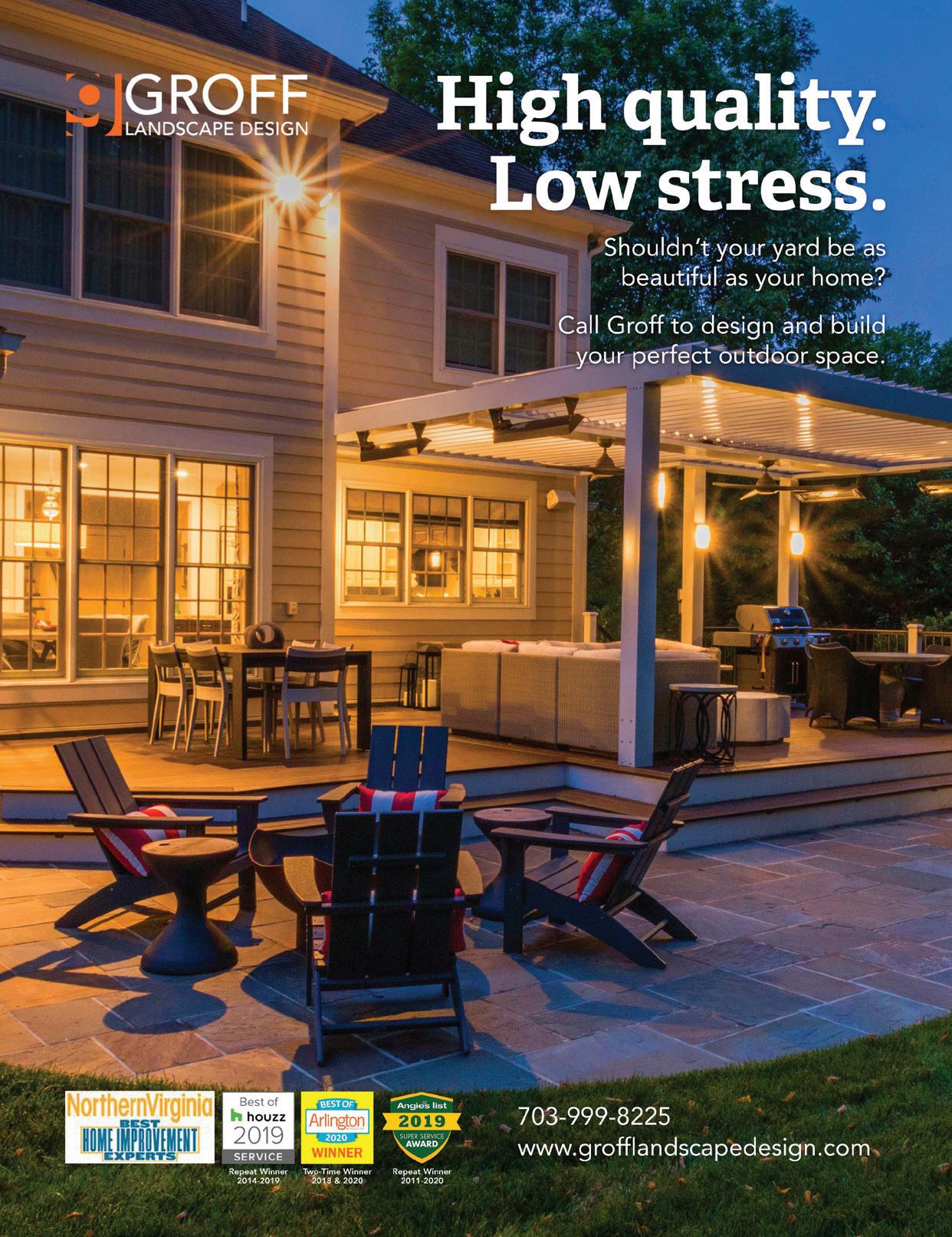

This pretty little space is part mudroom, part home office and an overflow area for parties.
MIA AND JOHN DEWITT knew they wanted to transform the den in their townhouse-style condo in McLean into something else—particularly given its position in the floor plan. Measuring 228 square feet, it was tucked between the breezeway from the garage and the home’s main entry, just across from the kitchen. “She wanted a multipurpose room,” designer Bonnie Ammon says, with emphasis on the multi.
The converted space now features a 7-foot-long table, built-in cabinetry and a deep window seat overlooking wooded grounds that lead to the Potomac River. Its function morphs from mudroom
(with storage lockers for bags, shoes and jackets) to home office (with a closet for the printer and supplies) to crafting area and reading retreat. Prior to Covid-19, the table also doubled as a spot for additional buffet service during parties.
The decor plays to the style Ammon invoked for a whole-house renovation she helmed for the couple last year, when she replaced the 50-year-old condo’s traditional design with a sleeker aesthetic featuring glossy surfaces, bold patterns and metal accents. “They have a lot of pattern and color—high contrast throughout the house,” says the Leesburg-based designer. “It’s drama and bling.”

Ammon painted the walls of the multipurpose room in Benjamin Moore’s Newburg Green, which captures the outdoor palette. “You have a beautiful view out the window, so I wanted to bring that in,” she explains.
As a counterbalance, she chose a bone-colored table on Lucite legs to lighten the look, and a patterned cowhide rug that can stand up to foot traffic. The chevron fabric on the chairs echoes the original herringbone hardwood floors, which Ammon darkened for a richer feel.
The space has beautifully served its purpose since the pandemic hit. The DeWitts’ son and daughter, both college students, have studied there during visits home, and John, who works in commercial real estate, has used it as his home office during this period of social distancing.
Says Mia: “It literally serves all purposes of living and studying and whatever you want to make of it.” n









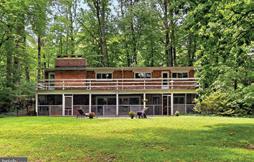
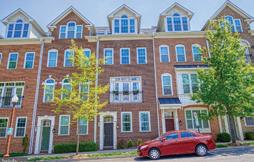









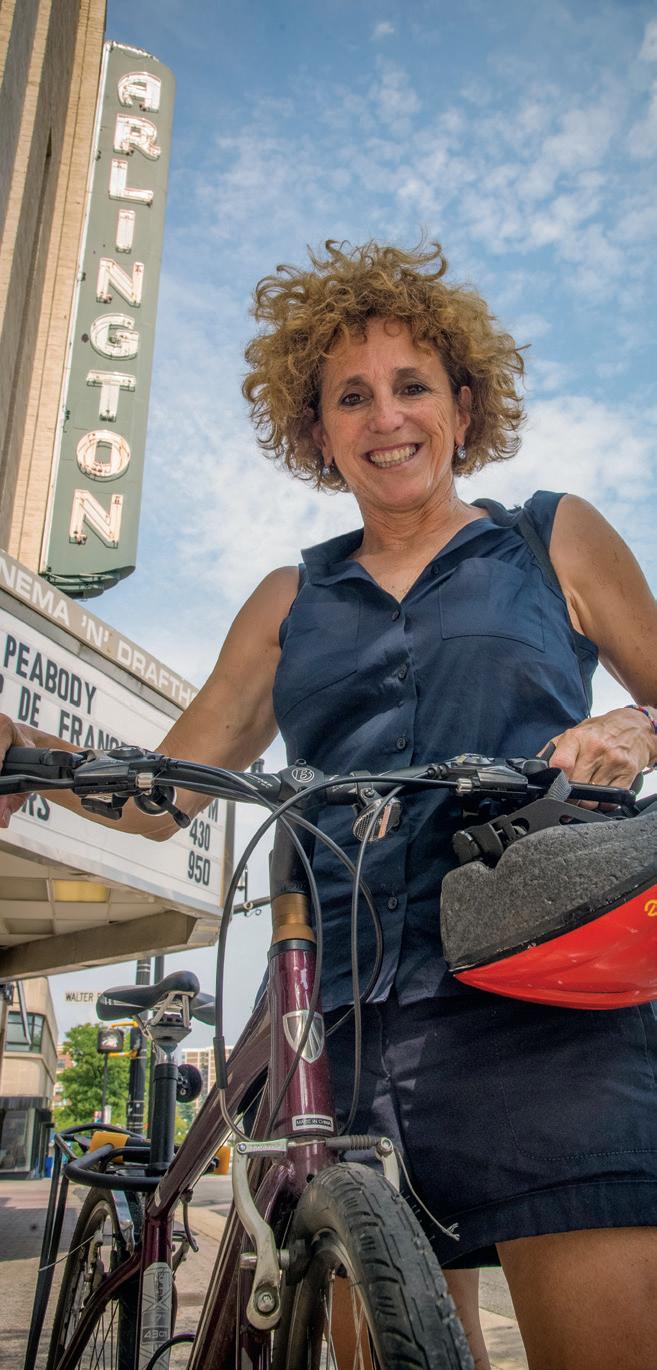


Arlington Magazine Top Producer, 2020; Washingtonian Face of Arlington Real Estate, 2020; Washingtonian Top Producer, 2020; Arlington Sun Gazette Best Residential Real Estate Agent, 2020; Northern Virginia Magazine Best Real Estate Agent List 2020; NVAR Top Producer 2019
KW Metro Center 2101 Wilson Blvd., Suite 100 Arlington VA 22201 703-819-4915 homes@bicyclingrealty.com www.bicyclingrealty.com
Q: How has the industry changed with the events of the past few months?
A: Last year’s normal seems so long ago. COVID-19, the resulting economic upheaval and the critically important Black Lives Matter movement have not eliminated the need to make our daily decisions, but they have certainly forced us to reexamine the way we make them. As we confront these global-scale challenges, people continue to reach for their own individual goals and milestones. This has been as true in real estate as in any aspect of our lives. The new normal in real estate requires vigilance, masks, gloves, hand sanitizer, Zoom calls, social distancing and increased exibility. It also means having more patience and being able to adapt quickly to any unexpected process delays. My team has been working non-stop helping clients navigate the new normal to make home buying and selling as smooth and productive as possible. Until we’ve truly beaten this pandemic, Bicycling Realty Group of KW Metro Center is adhering to CDC guidelines—socially distanced open houses and showings and bike tours are the way to go.
Q: What aspect of the industry will emerge unchanged?
A: Real estate is personal. It is all about relationships and that is more important than ever during these challenging times. Whether you are house hunting to nd that perfect neighborhood or choosing a real estate agent to sell your home, it is critical to nd the right t. I take that to heart in my business. Stay safe, wear a mask and give back to the community when you can!
Photo: An accessory dwelling unit (ADU) by Backyard Cottages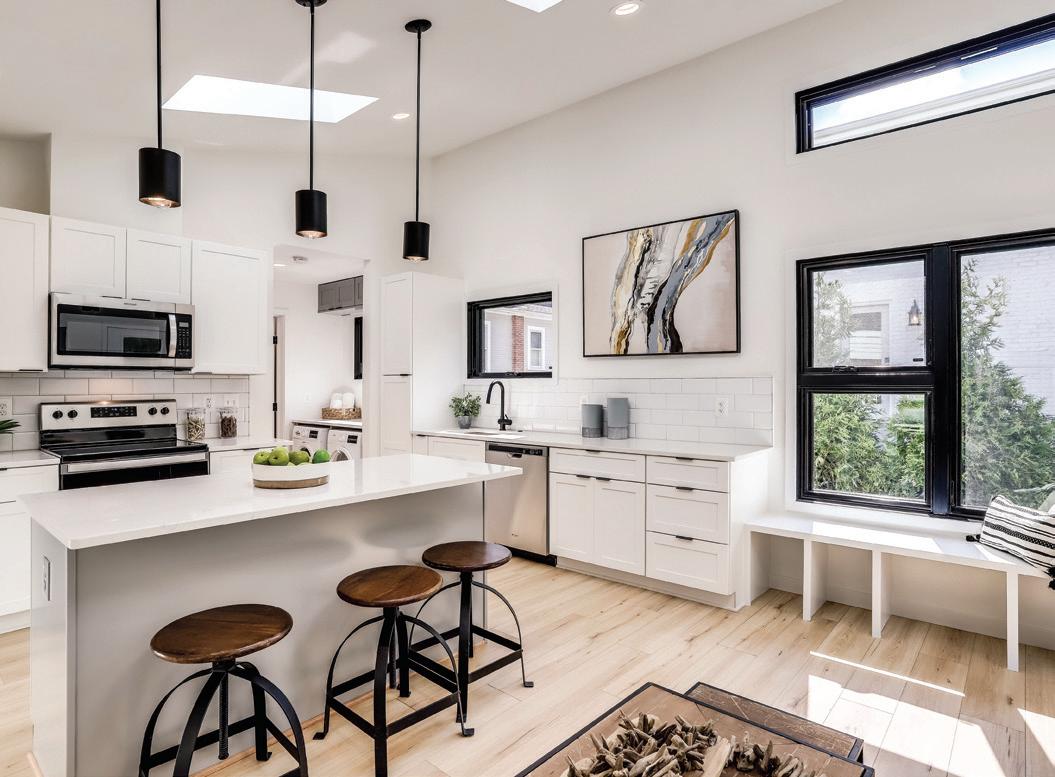
Classic Cottages is a local Arlington home builder that has redefined the term “modern living” with its latest portfolio of contemporary home designs. Classic Cottages consistently blends classic community culture with innovative architecture and design through its skilled in-house acquisitions, marketing and sales, architecture, design, and construction departments.
433 E. Monroe Ave. Alexandria, VA 22301 703-844-9936 sales@ccottages.com ccottages.com
Q: What innovative projects is Classic Cottages working on?
A: Classic Cottages recently launched a subsidiary company, Backyard Cottages, that builds detached Accessory Dwelling Units (ADUs) in Arlington. Since the adoption of new zoning ordinances allowing these structures, Arlington residents are investing in this unique opportunity to create a flexible, separate, multi-use living space that can be used for aging parents, young adults, guests, entertaining or as a rental unit. Backyard Cottages has partnered with Urbaneer Inc. to incorporate its patented technology into these modular ADUs to maximize functionality and space.
Q: How has Classic Cottages employed new technology to help its clients during the pandemic?
A: Visuals have always been vital to the home building industry. While using technology to enhance the client’s home
building experience isn’t particularly new to us, we have certainly needed to increase and rely on this technology more than ever before. Our designers use interactive 3D software that allows clients to “walk” through every room of their future home. Visual concept boards are a 2D version of the 3D walkthrough that help clients see the design selections come together on paper. On-site project managers snap progress photos and meet virtually with clients for construction updates and walkthrough meetings. Our marketing team has transformed the website to include digital editions of each of our home showcase volumes, extensive photo galleries and 3D virtual tours. We stay connected with our followers on social media by announcing new home reveals, listing and price alerts, under-contract notifications, home photos, upcoming events and exclusive builder news.
MICHAEL AND DEBORAH SAURI
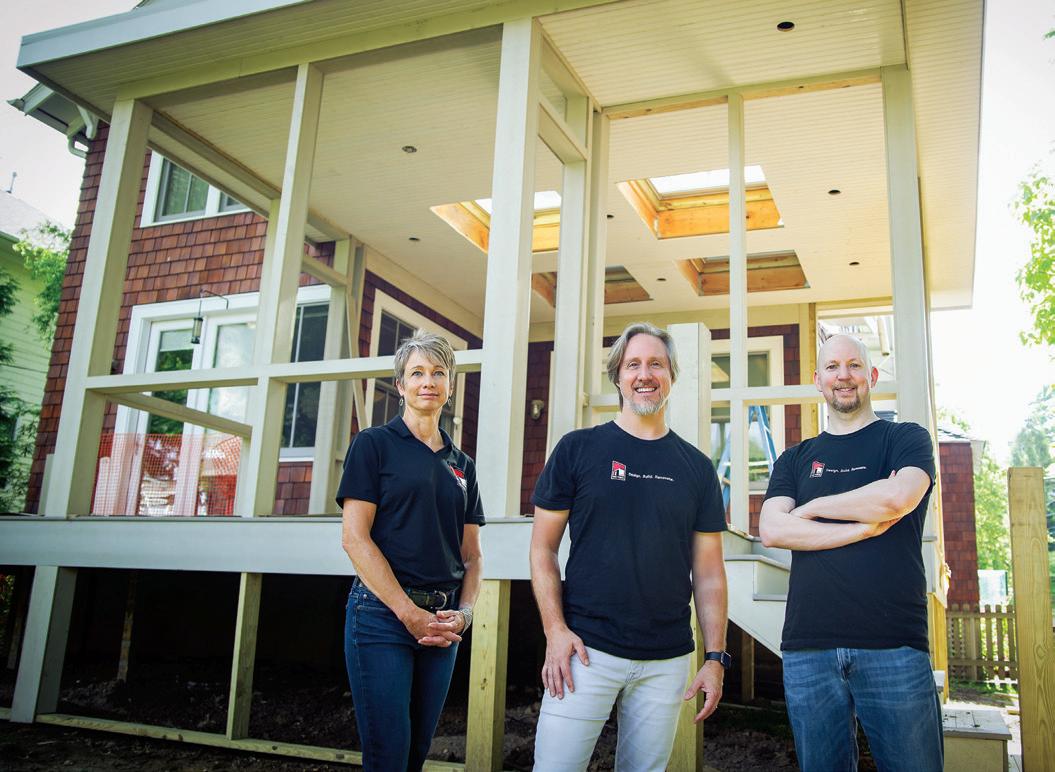
Arlington Magazine Winner, Best Remodeler; NARI Contractor of the Year (COTY); Fred Case Remodeling Entrepreneur of the Year Award; Remodeling Magazine Big 50 Award; Best of Houzz in Service
TriVistaUSA Design + Build 925 N. Garfield St., Suite 106 Arlington, VA 22210 703-243-3171 info@trivistausa.com www.trivistausa.com
Pam HarPer, InterIor DesIgnermIcHael saurI, owner
JoHn HovIs, ProJect arcHItect
Q: How important is the design aspect of your work?
A: From the first project the company built over 15 years ago, design has been integral to TriVistaUSA Design + Build’s work for every single client, on every single project. Focus on design ultimately impacts every aspect of our clients’ lives: the flow through their remodeled home, the amount of sunshine and light available for them to enjoy, their privacy, the connectedness of family they feel and the beauty they enjoy when they sip a cup of tea. Although we see every project as an artistic opportunity, we believe form follows function. The design should relate to the needs of our clients, whom we love delighting with custom-crafted solutions that fit their vision.
Q: How do you achieve a connection between design and build?
A: A large part of our success is due to a process called a design charrette. The term comes from mid-1800s Paris, when French architectural students would frantically gather around the cart submitting their work, finishing their projects as they were being rolled away—“en charrette,” or literally “in the cart.” Our charrette process is less frantic, but more collaborative, calling on the expertise of every team member to bring different perspectives to the design solutions we provide our clients. Clients are presented with an exciting variety of options which solve their home challenges, within budget, allowing them to see multiple options and collaborate with us on their own solutions from the very first design presentation.
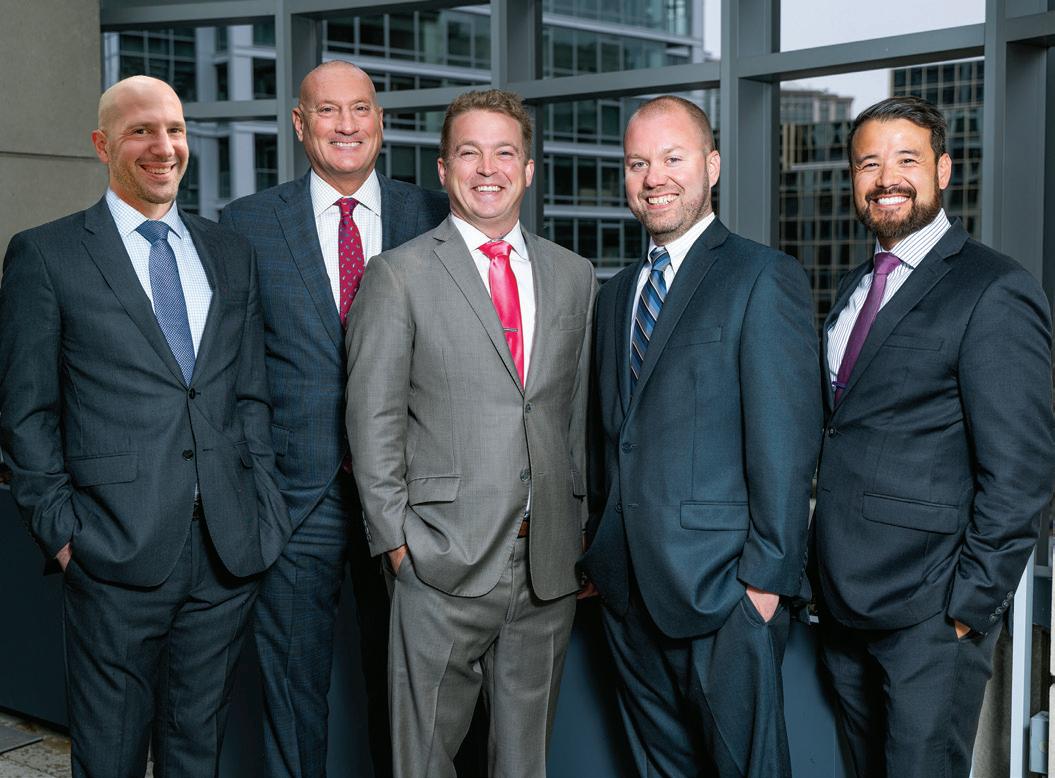
ARLINGTON’S HOMETOWN HOME LOAN TEAM—AND YOUR VA LOAN EXPERTS!
Colin Myers, Joe Prentice, Robert Martinson, Scott Gordon, Ru Toyama
Specialities
VA loans, Construction Loans, First Time Homebuyers, Conventional Loans, Renovation Loans, USDA Rural Development Loans, Reverse Mortgages, Mortgage Down Payment Assistance, Mortgage Refinancing
Monument Home Loans
4075 Wilson Blvd., Suite 823
Arlington VA 22203
703-650-7431 info@monumenthomeloans.com www.monumenthomeloans.com nmlsconsumeraccess.org
Colin Myers, Loan Officer NMLS# 1473250; Joe Prentice, Sales Manager NMLS#1610163; Robert Martinson, Branch Manager NMLS #470762; Scott Gordon, Processing Manager NMLS# 483765; Ru Toyama, Loan Officer NMLS# 1528382
A division of Mann Mortgage LLC NMLS#2550 Equal Housing Lender
Q: Why choose Monument Home Loans instead of a bank?
A: Home mortgages are what we do— and all we do. Instead of juggling auto loans, ATMs and asset management, we focus solely on ensuring that every client has a smooth and predictable financing experience. As a company, we are committed to hometown values, solid partnerships, streamlined processes and cutting-edge technologies. We are experienced in working with clients from a wide range of backgrounds— first-time buyers, experienced buyers, refinancing, jumbo loans, self-employed, credit-challenged—and we can easily find the right options for any situation for our customers. Regardless of your circumstances, every member of our team shares a common objective—to close your loan on time, as expected, and as efficiently as possible.
Q: What sets Monument Home Loans apart?
A: Our service. While our interest rates are quite competitive, our customer service is what sets us apart. From your first phone call until your final signature, our loan officers and processing team are fully accessible whenever needed, day or night, weekday or weekend. We also understand that mortgages should not be one-size-fits-all. That’s why we offer one of the widest arrays of mortgage products in the DMV, and work closely with each client to identify the program that best meets their needs and goals. As a result, we enable people from all walks of life to experience a smooth, predictable process that results in the best mortgage for their circumstances—and to have an experienced loan officer with them every step of the way.

For 30 years, we have created an extraordinary homeowner experience. Our on-staff architects and interior designers create maximum functionality and beautiful finishes. Our on-staff construction experts execute our building process with an emphasis on quality and finely honed project management skills. The entire team is focused on extreme customer care.
6715 Whittier Ave., Suite 200 McLean, VA 22101
703-506-0845
info@bowersdesignbuild.com www.bowersdesignbuild.com
From Left:
Wilma BoWers, Co-oWner
BoWers Design BuilD
Kim Joshi, interior Designer
BoWers Design BuilD
Betsy Frantz, happy Client; FounDer anD presiDent, true north llC
Q: What sets you apart from other architects/builders?
A: When Bruce Bowers started our company 30 years ago, his goal was to create an extraordinary design and construction experience for the homeowner. Coupling his early learning of doing things “the right way” from his builder father and grandfather with his education from the University of Maryland School of Architecture, he developed a customercentric approach to unique designs and a precise process for executing designs in construction. His passion for excellence has attracted a team of people who share this mantra. The Bowers Design Build team of on-staff architects, interior designers and construction professionals care deeply about the client and go above and beyond each day to ensure overall client satisfaction. While winning industry awards for exceptional design and construction are wonderful, the true measure of our success
is happy clients. The proof that our hard work is paying off? Recent results from GuildQuality.com show that 100% of our clients surveyed would recommend us to a friend. We wouldn’t have it any other way.
Q: How would your clients describe you?
A: Among the terms our clients use to describe us are creative, detail oriented, dedicated, honest, fair and great project managers. They recognize us as good people with a focus on customer care. Nothing thrills us more than hearing satisfied customers say “I wouldn’t change a thing about my experience with Bowers Design Build.” We will never settle for mediocre—and our clients appreciate that.
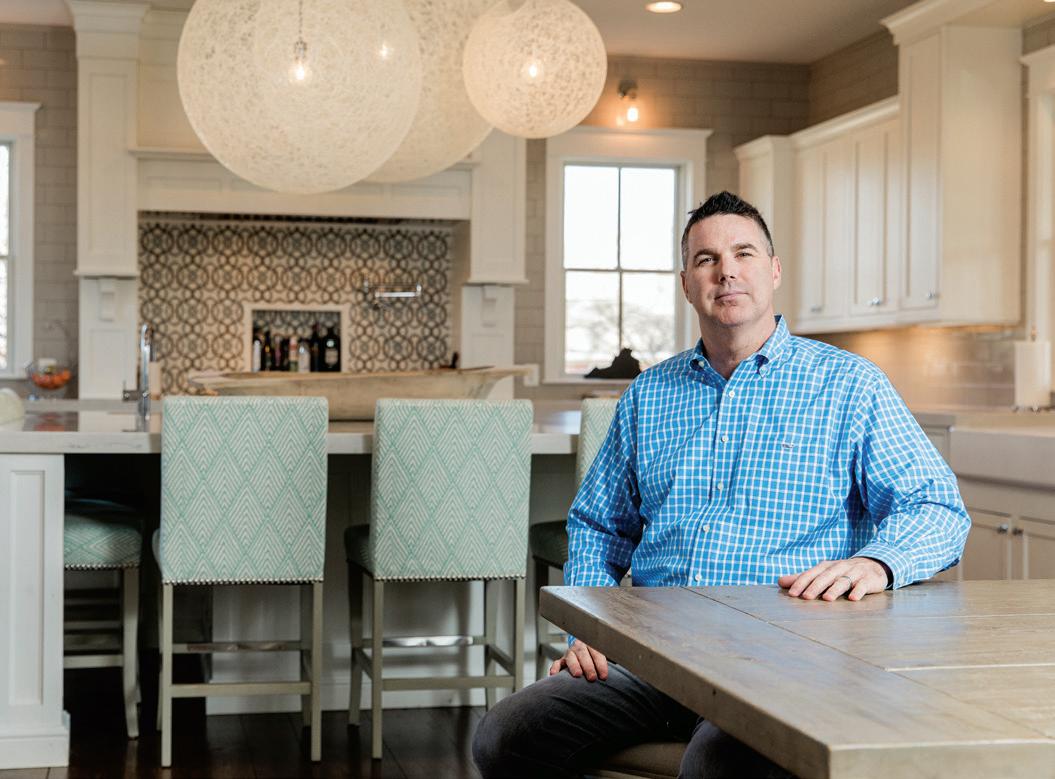
HERB AMAN
Arlington Magazine Top Vote Getter, Best Builder, 2019 Arlington Sun Gazette Best Builder/ Construction Company, 2018
Whitestone Custom Homes
Herb Aman P.O. Box 7638 Arlington, VA 22207
703-244-2802
info@whitestonecustomhomes.com www.whitestonecustomhomes.com
Q: How do your clients benefit from your vast experience in the industry?
A: You could say that for me, building homes in Arlington is a family tradition. My grandfather founded Broyhill Homes and built many homes here in the 1940s, ‘50s and ‘60s. I take great pride in carrying on the family tradition and continuing to make this community a beautiful place to live.
As a true custom builder, Whitestone Custom Homes offers the details, such as entertaining-friendly great rooms, outdoor living spaces and a wide range of architectural styles that make a home your own. We understand everyone has a personal vision and our job is to turn that image into a reality. By seamlessly integrating the design and construction phases of their projects, our team of architects, designers, project managers, suppliers and selections coordinators smoothly guides clients through the process of creating the home of their dreams.
Q: Why should a prospective client choose to work with Whitestone?
A: Our business is built upon four cornerstones: integrity, quality, service and value. When you work with us, you’re not buying a product, but a premium service. A common misconception is that every custom homebuilder is the same—we strive to prove otherwise.
A vital part of what sets Whitestone apart from the competition is our unwavering commitment to excellence. We hold the quality of our workmanship to the highest standards. By employing only highly qualified personnel who are committed to upholding this high level of excellence, we strive to give the best possible service before, during and after the construction process.
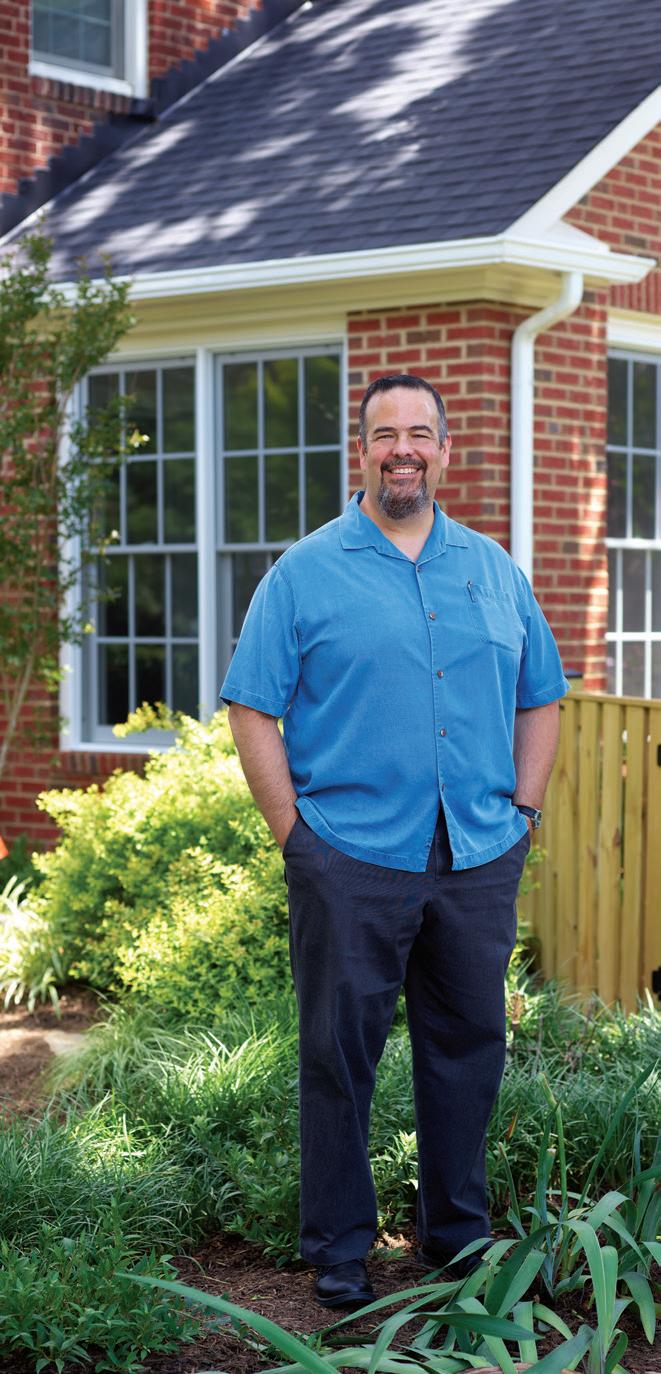
We specialize in harmonious and complementary work that blends seamlessly and proportionally with your existing home
Red House Architects 1612 N. Fillmore St. Arlington, VA 22201 703-346-9818 rbraddock@redhousearch.com www.redhousearch.com
Q: From an architect’s perspective, what unique challenges does the Arlington market present?
A: A large part of the existing housing stock in Arlington was built in the 1930s, 40s and 50s. These homes served their purpose with dignity and vast numbers of people raised families in them. But, as products of their time, they were usually modest, with small, separated rooms. They were only nominally insulated, heated with a furnace and did not have air-conditioning. Storage was at a minimum. Basements were not considered habitable— most were not dry. Many Arlington homes were built on small lots, for working-class families. Expansion normally meant enclosing an existing porch.
On the plus side, they were often built with 8- or 12inch thick solid masonry walls. And the wood framing that was used came from old-growth forests and was much stronger than the same size lumber used today. Small and sturdy – that’s the starting point.
Q: What services do you offer your clients?
A: As a residential architect, I am most often called upon to expand and remodel homes for growing families and also address the existing shortcomings. Today, we can open up large spaces with engineered lumber spans. We can bring in light with insulating windows and doors. We can combine robust insulation, draft-stoppage and new HVAC technology to heat, cool and maintain comfort, while minimizing energy expenditures. And we can build with materials that have been reclaimed, recycled or diverted from the waste stream. This allows us to create beautiful and comfortable spaces that match the owner’s lifestyle and needs.
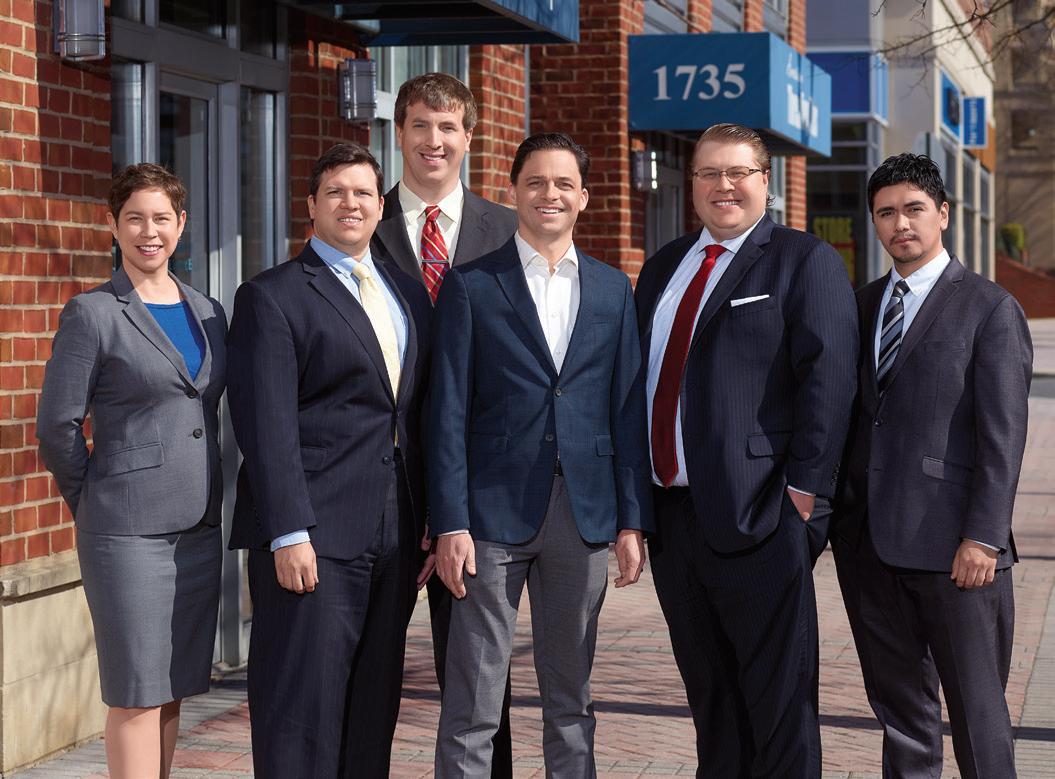
Ryan A. Brown, Esq.: Super Lawyers® Rising Stars, Estate Planning & Probate, 2016 – 2020; Arlington Magazine Top Attorney Business/ Corporate, Nonprofit, Tax, Trusts & Estates, 2019; Northern Virginia Magazine Top Lawyer, Financial Law, 2019; Leadership Center for Excellence, “40 Under 40” Recipient, 2018
James F. Anderson, Esq.: Arlington Magazine Top Attorney Trusts & Estates, 2019
Eric M. Lemmer, Esq.: Arlington Magazine Top Attorney Business/ Corporate, 2019
1739 Clarendon Blvd., Arlington, VA 22209
703-842-3025
clients@arlingtonlawgroup.com www.arlingtonlawgroup.com
From Left:
Bridget Alzheimer, esq
JAmes Anderson, esq
eric lemmer, esq
ryAn Brown, esq
Peter gAynor
JuAn mArtinez
Q: How does estate planning help protect my real estate?
A: Our clients’ homes are often their largest asset. In preparing their estate plans, we discuss creditor protection options, tax planning and how to best manage real estate should the client become incapacitated or die. Each client has different needs and budgets, and we offer several fixed-price planning options. We prepare powers of attorney, wills, trusts and deeds to best accomplish each client’s goals. Planning ahead with a trust or a revocable transfer-on-death deed can save time and expense for beneficiaries of real estate. Correctly titling property between spouses can protect against creditors. All of our estate planning work starts with a free initial consultation, so we encourage clients to come and speak with us about their options.
Q: How does an attorney help with real estate if I become incapacitated or die?
A: We regularly receive calls from clients with concerns like: “Mom has dementia and we need to sell her house” or “Dad passed away and we need to do something with his rental property.” In each situation, we meet with our clients to review documents and determine the best course of action. If the family member did not do any planning, we can help with guardianship, conservatorship and probate through the courts. Or, if they had a financial power of attorney, trust, will or transfer-on-death deed, we advise our clients on how to fulfill their roles as agent, executor, trustee or beneficiary. We can help with complex court filings, and we can coordinate even the most basic logistics of changing locks, sorting through tangible property and preparing real estate for sale.
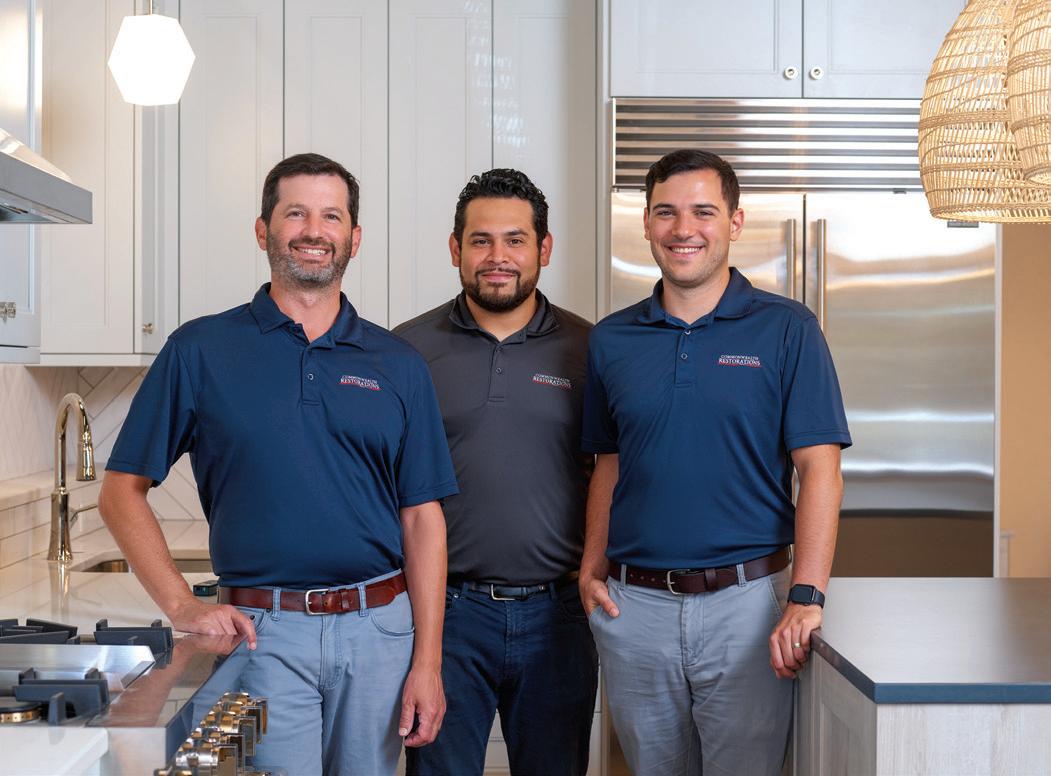
Additions, renovations, kitchens, bath, screen porches, front porches, entire home renovations
2430 S. Kenmore St. Arlington, VA 22206
703-525-5255
office@commonwealthrestorations.com www.commonwealthrestorations.com
Q: What sets you apart from the competition?
A: We are Arlington based and focused— all of our work is done here. We have been in business since 1971, and we are personally familiar with all the nuances of this market. We have an extensive portfolio of work on Arlington homes, both old and new.
Q: What brings you the most satisfaction in your work?
A: There’s nothing we love more than handing over a project to a customer after all of the hard work is completed and seeing the look of happiness on their face. When we follow up with the customer later on, we love to hear how our project has changed their life. At Commonwealth Restorations, we take great pride in working collaboratively with our clients. We’re not the type of shop that offers limited options, saying “take it or leave it.” All of our work is
customizable, and we encourage our clients to make the choices that will work best for them within budget and style.
Q: How does technology play a role in the work you do?
A: We have project management software that our clients can utilize to monitor the progress of their project. They can access real-time schedules as well as regularlyupdated photos of our work. This is especially useful if the client is not living in the house at the time the job is being done. Additionally, we strive to make use of the newest materials and products in our work. This ensures that the quality of the final product is the best it can possibly be.
TRACY WILLIAMS | TTR SOTHEBY'S
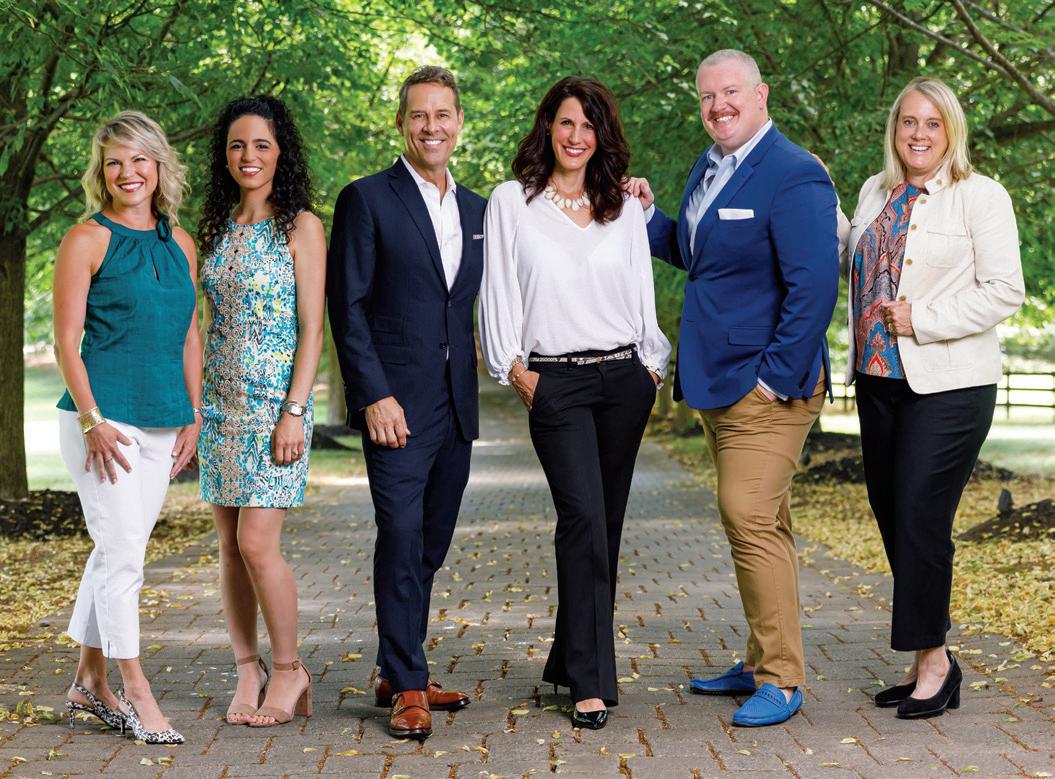
Specialist in residential sales, lot acquisition, land development and investments; Arlington Magazine
Top Agent and Top Team 2019, 2020; Washingtonian and NOVA Real Producers magazines “Top Producer” and “Top Agent” 2018, 2019, 2020; Real Trends, America's Best Real Estate AgentsTop 1% Nationwide 2020
6723 Whittier Ave., Suite 101 McLean, VA 22101
703-867-4309
twiliams@ttrsir.com www.alliancegroup.realestate
From Left:
Janet Million
Mona KhorraMi Banes
GreGG Zeiler
tracy WilliaMs
Joshua BauMGardner
holly tennant Billy
Q: What is the one thing that your clients should know about you and your team?
A: We pride ourselves on identifying trends, understanding market dynamics and offering intelligent market data to our clients. We believe this is essential to helping them navigate any transaction, especially one that represents their largest investment. For example, we were the first group to host an “Amazon Effect” roundtable prior to the announcement. We invited key industry professionals and assessed the potential impact on the region—information we then circulated to our clients!
Q: What sets you apart from other real estate agents?
A: While most real estate agents focus on residential sales, we offer a broader suite of real estate services including standard sale, lot acquisition, land development and investments. We also work with some of the area’s most prominent builders, and therefore
have a unique insight into this growing sector of the residential market.
Q: What brings you the most satisfaction in your work?
A: Knowing that we’ve played a role in making many home buyers’ dreams come true! We work tirelessly to make an often stressful time in our clients’ lives much easier and more enjoyable. Many of our clients start the process with anxiety, but express their gratitude at settlement.
Q: What is the biggest challenge in your job?
A: Despite a lack of inventory in this market, we have a proven track record of finding off-market properties for our clients. Another challenge we often encounter is educating out-of-town buyers to the unique competitiveness of this market. Our clients are very trusting in our abilities as professionals to help them make a valuable investment.
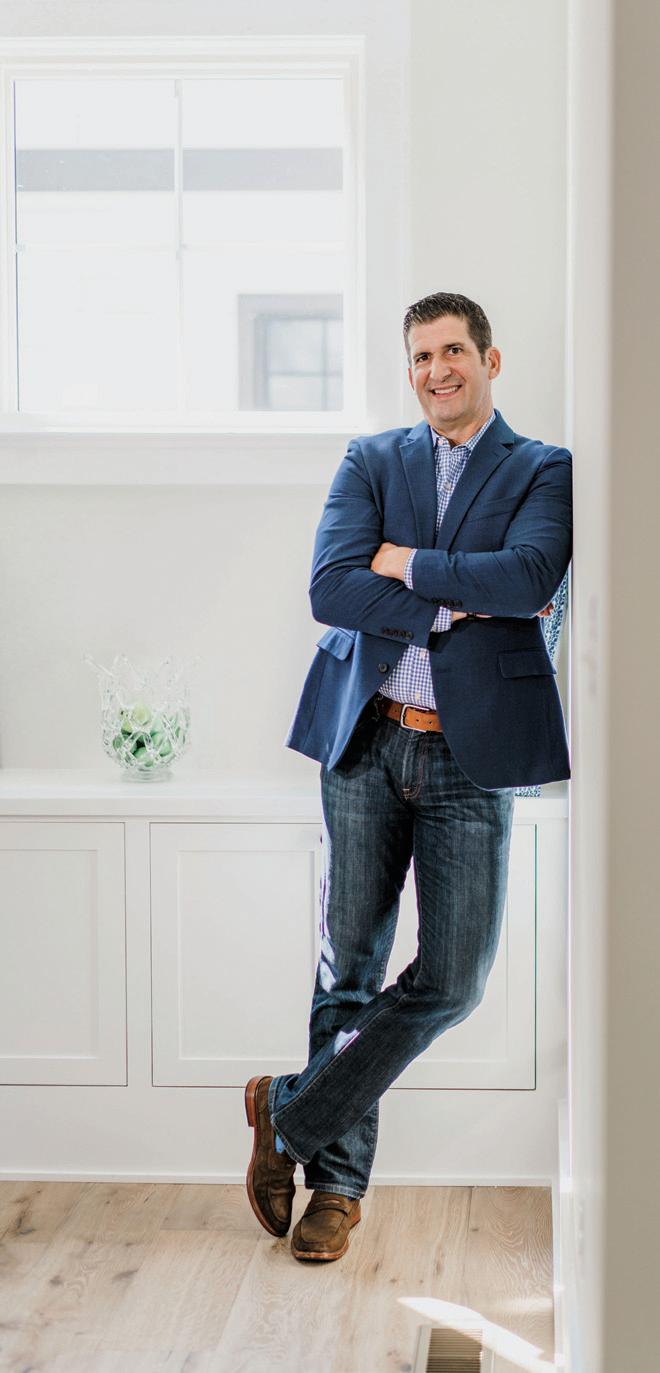
Arlington Magazine Top Vote Getter, Best Real Estate Agent 2020, Top Producer 2019; Washingtonian Best Realtor, 2016-2019; Northern Virginia Best Realtor 2019, Top Agents, 2016-2018; Northern Virginia Association of Realtors Top Producers Club
3001 Washington Blvd., Suite 400 Arlington VA 22201
703-932-3622
craig.mastrangelo@compass.com www.compass.com/agents/craig-mastrangelo
Q: How do you employ new technology to help your clients?
A: Mobile phones, mobile phones, mobile phones! Technology pushes information to everyone’s mobile phones—something unheard of even a decade ago. Incorporating client communication, advertising and marketing via mobile phone into my day-to-day business plan has proved crucial to the level of services I offer sellers and buyers. Leveraging mobile technology allows me to provide my clients professional guidance on how to incorporate this information into a successful selling and/or buying strategy, resulting in my listings selling, on average, for 98% of their original asking price. My use of technology, coupled with 21 years experience with over 450 successful transactions, helps me get my clients to the part of the process that brings them the most satisfaction—closing day!
Q: How will the COVID-19 pandemic change the real estate industry?
A: Our industry has quickly adapted to a changed real estate landscape by adopting technology! While home tours can be conducted while social distancing, many listing agents promote homes via live video tours on platforms such as Zoom and Instagram Live. When inperson tours and public open houses are allowed again in our local markets, I will continue to incorporate live video tours as they allow for an interactive experience for the end users and provide a marketing opportunity for sellers that didn't exist only a few months ago. Contact me today for a Zoom or old school face-to-face meeting where I will show how I will put my 21 years of full-time real estate experience to work for you!
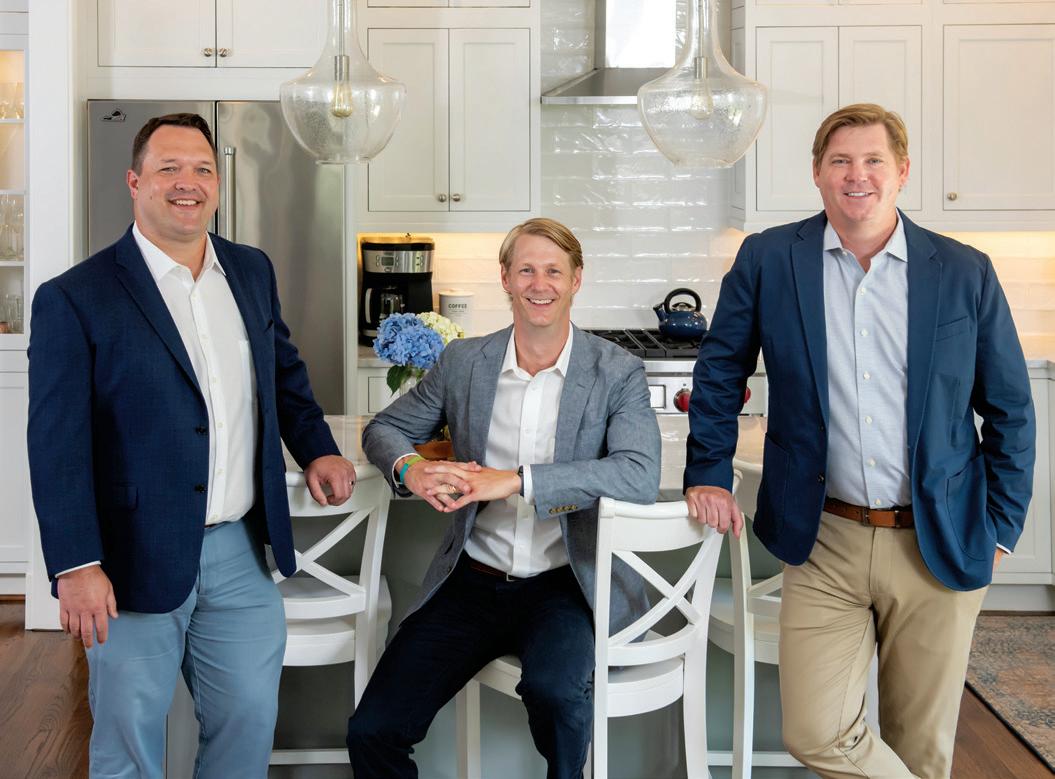
“We are thrilled with our choice to work with Marks-Woods! They were wonderful to work with and gave us a finished product that is just spectacular (on schedule, no less!). We would absolutely go to Marks-Woods again in the future for any projects. Can't recommend them highly enough!” –Kate H.
Marks-Woods Construction Services
205 S. Union St. Alexandria, VA 22314
703-838-9788
www.markswoods.com
From Left:
Byron Woods
dreW Marks
GreG Marks
Q: What sets you apart from other builders?
A: We are proud of our tried and true Marks-Woods process and our 18+ years of experience remodeling homes in Northern Virginia and the surrounding D.C. area. However, what really sets us apart from other builders is our in-house design team and hands-on approach to client interactions.
We have interior designers on staff that work directly with homeowners to first determine their overall design aesthetic, and then recommend materials and finishes that match their style and stay within their established budget.
We are very committed to our hands-on approach to client relationships. Clients will engage with all three partners: Greg (Director of Business Development, Design Manager), Byron (Contracts Manager) and Drew (Operations Manager). We get to know clients, not just by project name, but
by direct interactions with them and their families from consultation to completion.
Q: What brings you the most satisfaction in your work?
A: Renovating a home can be a daunting process. As homeowners ourselves, we get it! For that reason, our top priority is alleviating the stress of the home renovation process. We do this by really understanding our clients’ goals and visions: What does their dream home look like? How would they define their style? What frustrations do they want their renovated home to solve? Our in-house design team partners with clients to answer these questions. Our experienced construction crew brings floor plans and renderings off paper and into real life. There is no greater satisfaction than seeing a client’s face light up because their vision has finally become a reality. That is why we love what we do.
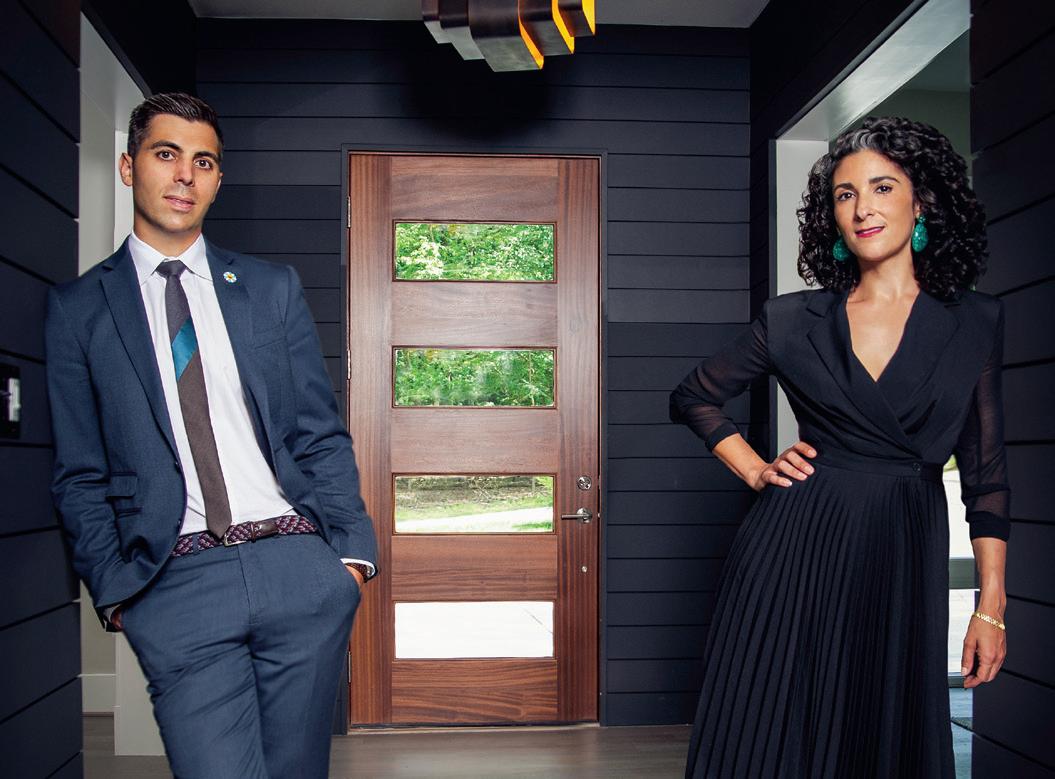
JASON WALDER & NATALIE VAUGHAN
Arlington Magazine Top Producers 2019, 2020; Washingtonian Magazine Top Agents 2018, 2019, 2020; NVAR Top Producer Club, Platinum
Compass
3001 Washington Blvd., Suite 400 Arlington, VA 22201
571-232-2934
hiveresidential@compass.com
https://www.compass.com/agents/hiveresidential/
Licensed in VA and DC
Q: What is the most significant change in real estate during your career?
A: We are currently witnessing it! The concept of “home” has dramatically changed in 2020. The homes we live in are also where we work, play, exercise, educate our young children, and welcome back our older children with colleges and internships on pause. Creating space for these shifts in our daily lives has meant reconfiguring rooms or sometimes finding new accommodations altogether. As Realtors who work with both buyers and sellers, we recognize that the pandemic has changed buyers’ wish lists and has also changed the home features we prioritize to maximize the value of a home sale. With nearly 14 years in the business we excel at staying ahead of real estate trends, understanding market dynamics and leveraging our networks. This combination of skills allows us to
pivot quickly and tackle changes head on as the market shifts.
Q: What brings you the most satisfaction in your work?
A: We thrive on the challenges of our daily work, offering innovative and outof-the box solutions to make our clients’ real estate dreams come true. There is no better feeling than exceeding a client’s expectations at the closing table of a successful transaction. Buying and selling a home is usually the largest personal transaction an individual undertakes in their lifetime. While it can be filled with competition, stress and anxiety, it doesn’t need to be. We manage the overwhelming nature of the process by listening to our clients’ needs, laying out their options and counseling them towards a decision that achieves their end goal.
ANDREW STEWART AND WARIS MOJADDIDI, OWNERS
“Give your home its best look yet.”
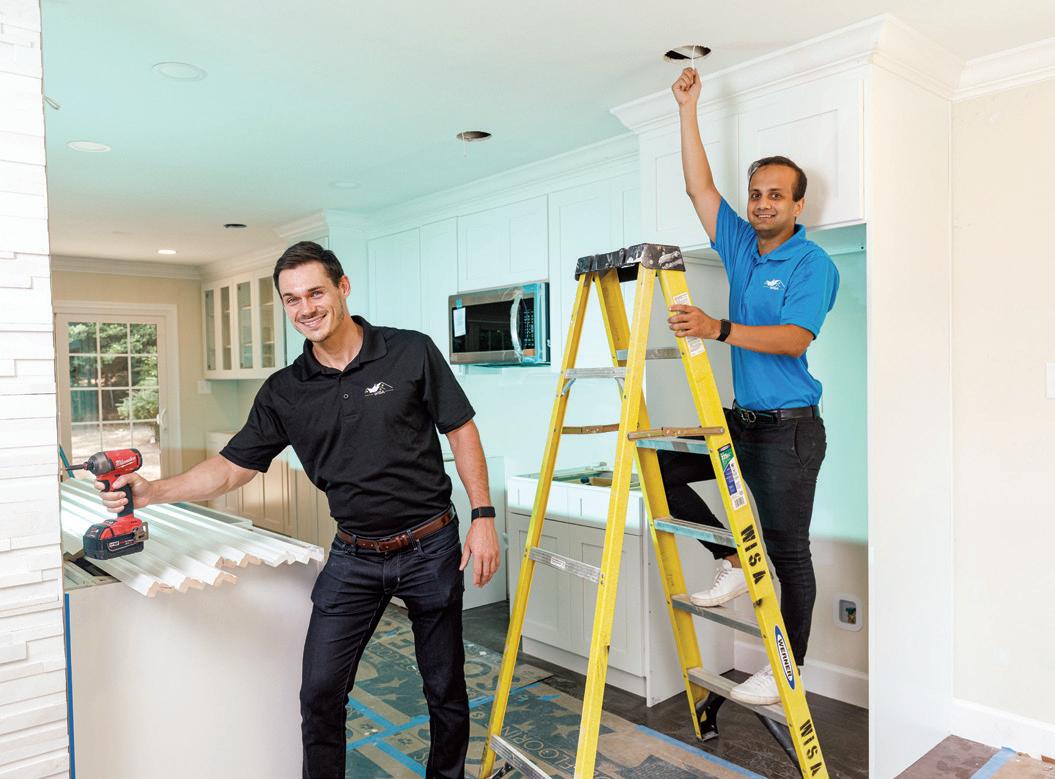
7000 Newington Road, Suite J Lorton, VA 22079
703-337-4344
www.wisadc.com
From Left:
Andrew StewArt, Andrew@wiSAdc.com
wAriS mojAddidi, wAriS@wiSAdc.com
Q: What sets WISA Solutions apart from the competition?
A: WISA is a full-service design-build firm and remodeling contractor that specializes in helping Northern Virginia homeowners turn their houses into their dream homes. As a licensed, fully insured remodeler with over 25 years of experience in the construction industry, we deliver award-winning home renovation services at affordable prices. We keep clients informed and communicate every step of the way to ensure that the final product is a home they will love for years to come.
Q: What is the biggest challenge you face on an ongoing basis in your work?
A: The biggest challenge in our business is educating homeowners on residential contracting and dispelling misconceptions about the industry. We are completely
transparent and honest, sticking to nopressure sales—something that’s very unique in this industry.
It’s also a challenge staying on top of the latest technology. We constantly strive to remain on the cutting edge. For example, WISA is one of the few contractors using 3D home modeling, which allows homeowners to pick and choose different products and color finishes for their homes and then view custom renders of their home with those very products and finishes.
Q: What brings you the most satisfaction in what you do?
A: For us, satisfaction comes from ensuring clients’ satisfaction by turning their visions into reality. Our clients describe us as honest, trustworthy, caring and reliable. We stand behind our work 100% to make sure that our clients love the finished product before the job is done.

710 N. Highland St.
List Price: $2.23 million
Sale Price: $2.23 million
Days on Market: 8
Listing Office: Compass
Neighborhood: Lyon Park
Year Built: 2016
Bedrooms: 6
Full/Half Baths: 4/1
1216 20th St. S.
List Price: $1.4 million
Sale Price: $1.4 million
Days on Market: 67
Listing Office: Compass
Neighborhood: Arlington Ridge
Year Built: 1993
Bedrooms: 4
Full/Half Baths: 3/1
This information, courtesy of Bright MLS as of July 14, 2020, includes single-family homes as well as row/townhouses sold in June 2020, excluding sales in which sellers have withheld permission to advertise or promote. Information should be independently verified. The Bright MLS real estate service area spans 40,000 square miles throughout the midAtlantic region, including Delaware, Maryland, Washington, D.C., and parts of New Jersey, Pennsylvania, Virginia and West Virginia. As a leading Multiple Listing Service (MLS), Bright serves approximately 95,000 real estate professionals who in turn serve over 20 million consumers. For more information, visit brightmls.com.
421 N. Upton Court
List Price: $1.03 million
Sale Price: $1.02 million
Days on Market: 41
Listing Office: Optime Realty
Neighborhood: Buckingham Commons
Year Built: 2013
Bedrooms: 4
Full/Half Baths: 4/1

827 S. Randolph St.
List Price: $979,900
Sale Price: $980,000
Days on Market: 5
Listing Office: Realty One Group Capital
Properties
Neighborhood: Alcova Heights
Year Built: 2000
Bedrooms: 5
Full/Half Baths: 3/1
2004 N. Greenbrier St.
List Price: $1.54 million
Sale Price: $1.51 million
Days on Market: 140
Listing Office: Yeonas & Shafran Real
Estate
Neighborhood: Tara Leeway Heights
Year Built: 2019
Bedrooms: 5
Full/Half Baths: 4/1


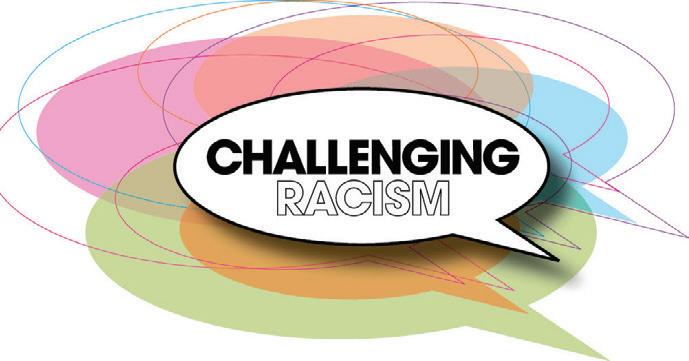
5029 22nd St. S.
List Price: $829,900
Sale Price: $870,000
Days on Market: 3
Listing Office: Gateway Properties
Neighborhood: None listed
Year Built: 1947
Bedrooms: 5
Full/Half Baths: 3/0
2722 N. Norwood St.
List Price: $3.35 million
Sale Price: $3.35 million
Days on Market: 97
Listing Office: McEnearney Associates
Neighborhood: Riverwood
Year Built: 2018
Bedrooms: 5
Full/Half Baths: 6/3
2131 N. Scott St.
List Price: $1.24 million
Sale Price: $1.25 million
Days on Market: 3
Listing Office: Compass
Neighborhood: Palisades Park
Year Built: 1996
Bedrooms: 3
Full/Half Baths: 3/1
No single-family or row house/ townhouse sales in the month of June
1953 Rockingham St.
List Price: $3.6 million
Sale Price: $3.6 million
Days on Market: 32
Listing Office: Washington Fine Properties
Neighborhood: Franklin Park
Year Built: 2013
Bedrooms: 5
Full/Half Baths: 5/1
7798 Solitude Court
List Price: $3.2 million
Sale Price: $2.9 million
Days on Market: 18
Listing Office: Long & Foster Real Estate
Neighborhood: The Reserve
Year Built: 2000
Bedrooms: 6
Full/Half Baths: 6/3
22041 (Falls Church)
6434 Lakeview Drive
List Price: $1.53 million
Sale Price: $1.48 million
Days on Market: 59
Listing Office: TTR Sotheby’s International Realty
Neighborhood: Lake Barcroft
Year Built: 1958
Bedrooms: 5
Full/Half Baths: 3/0
22042 (Falls Church)
3432 Putnam St.
List Price: $1.09 million
Sale Price: $1.08 million
Days on Market: 14
Listing Office: McEnearney Associates
Neighborhood: Roundtree Park
Year Built: 2002
Bedrooms: 6
Full/Half Baths: 5/0
22043 (Falls Church)
7104 Eastman Drive
List Price: $2.15 million
Sale Price: $2.05 million
Days on Market: 126
Listing Office: Long & Foster Real Estate
Neighborhood: Southampton
Year Built: 2018
Bedrooms: 7
Full/Half Baths: 6/2
22044 (Falls Church)
6222 Cheryl Drive
List Price: $849,900
Sale Price: $865,500 Days on Market: 6
Listing Office: D.S.A. Properties & Investments
Neighborhood: Ravenwood Park
Year Built: 1958
Bedrooms: 4
Full/Half Baths: 3/1
22046 (Falls Church)
515 E. Broad St.
List Price: $1.8 million
Sale Price: $1.79 million
Days on Market: 60
Listing Office: FASS Results
Neighborhood: Broadmont
Year Built: 1951
Bedrooms: 3
Full/Half Baths: 3/1






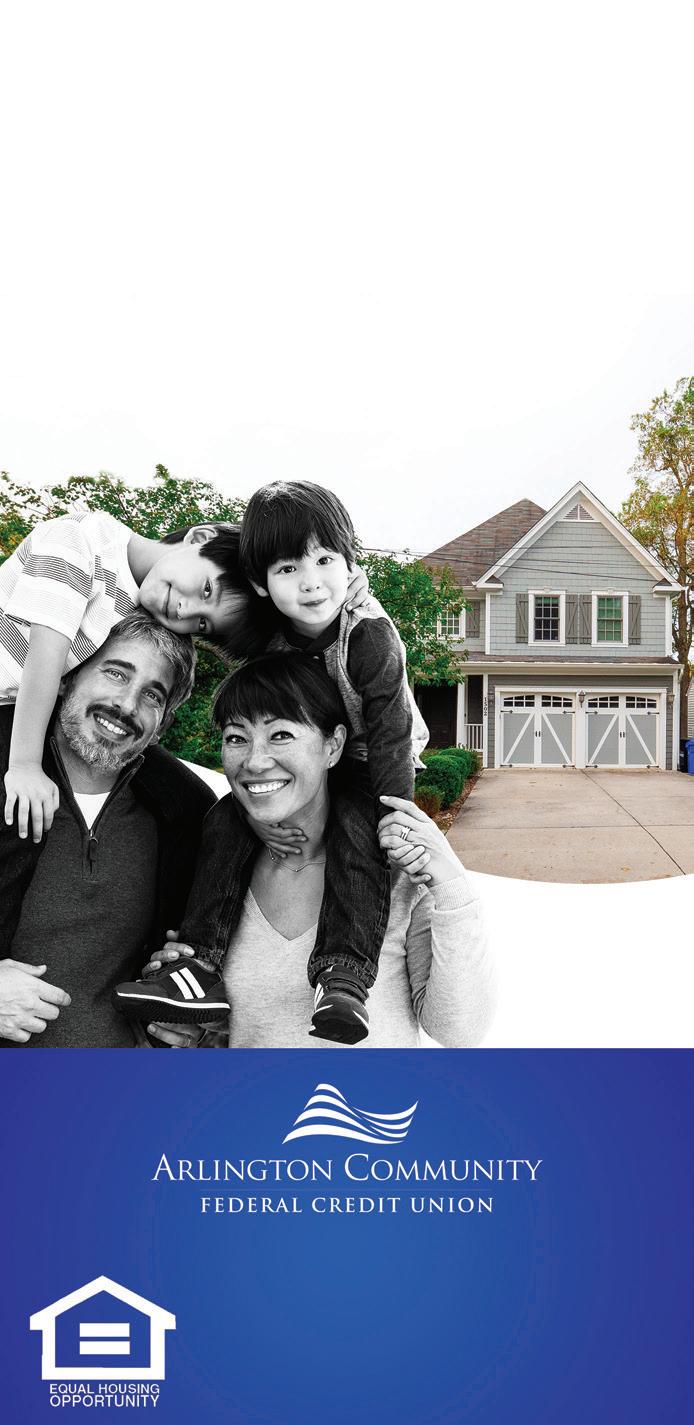
22204
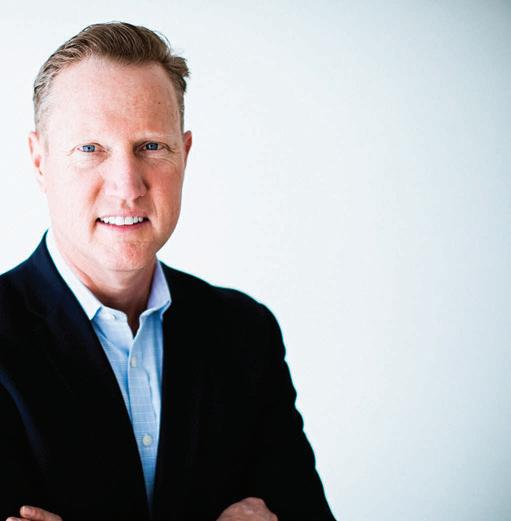

22205
22207

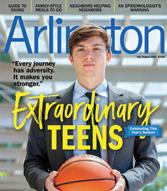

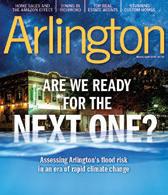



22209
22213
Number
Number
22101
Number
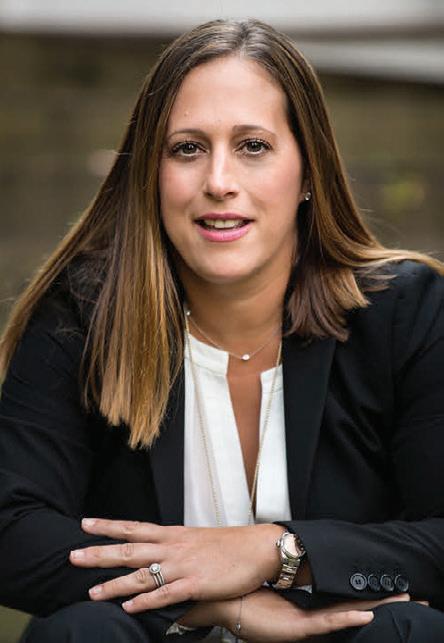

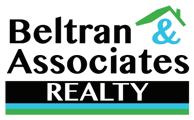
Karina is a North Arlington native and grew up with her mother’s love of real estate. She has been licensed since 2004, and in her first 2 years of selling real estate earned Top Producer status as well as membership in the elite 10+ Million Dollar Sales Club. She is also a member of the NVAR Lifetime Top Producer’s Club. She holds a B.A. degree from Dickinson College and a Master of Public Administration from George Mason University. She, her husband, and their 3 children reside in North Arlington.


(cell)
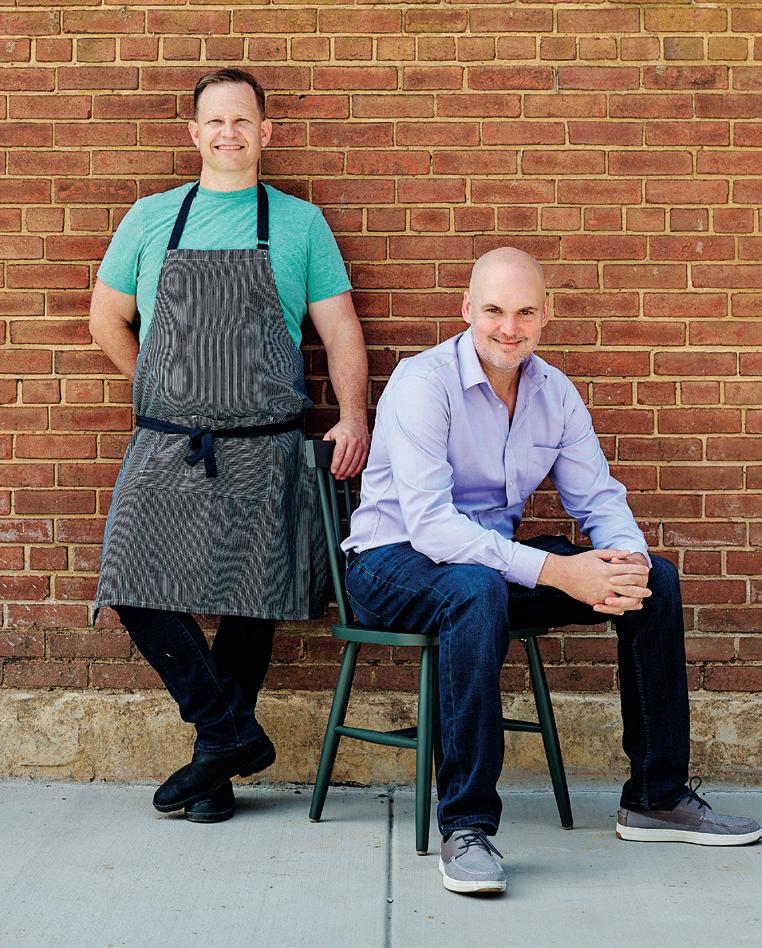
In the 1950s, the building at the corner of South Fifth Street and South Glebe Road in Arlington Heights housed a chocolate factory and an ice cream shop. Now it’s poised to become
Ruthie’s All-Day, a restaurant helmed by Matt Hill, who left his post as executive chef of The Liberty Tavern Group (The Liberty Tavern, Lyon Hall, Northside Social, Liberty Barbecue) on
March 6 to pursue a lifelong dream.
“I’ve always wanted to open my own place,” he says. “It’s more special when it’s yours.”
Named after Hill’s paternal grandmother, Ruthie’s will center on a “meat ’n’ three” concept, reminiscent of the informal restaurants the chef remembers from his youth growing up in North Carolina.
“The tradition dates back to when the area was dominated by agriculture and textile mills,” he says. “These were more casual places where workers could get a home-cooked meal when their shift ended.” Make that a meat and their choice of three sides.
Wood-fired proteins will play a starring role on the menu, cooked over live fire with no gas or electric assists. Hill’s workhorses: a custom hearth in the center of the restaurant, plus two large smokers, one inside and one outside. Wood species will be a key ingredient.
“Hickory has a more pungent kick,” he says, “so often we’ll use that for items with shorter cooking times, like fish; whereas for meats we’ll use oak, which has a more nuanced flavor, or a combination of the two woods. We’ll also do specialty woods, like apple, for things like wild mushrooms, salmon or mackerel.”
Diners can look forward to woodgrilled steaks and fish, smoked brisket and poultry, and gochujang-rubbed spare ribs, along with creative sides that take the meat ’n’ three concept to a playful level. At the time of this interview, the chef was tinkering with braised greens with white soy and smoked turkey broth; pulled-pork dirty rice; butter bean salad with marinated heirloom tomatoes; and stewed chickpeas with house-made labneh.
“And of course, Ruthie’s classic mac ’n’ cheese,” Hill says. “My grandma’s recipe, made with evaporated milk.”
In addition to Counter Culture Coffee, breakfast fare will include ELI
biscuit sandwiches with fillers like house-made sausage, egg-and-cheese, fried chicken or brisket. Lunch will bring sandwiches on house-baked bread and composed salads.
Most breakfast options will be priced under $10 and lunches under $15. The dinner menu will offer a wider array of price points. “You can get barbecue for $15 to $16,” Hill says, “but we might also have Koji-aged rib-eye for $45-$55. I’m sensitive to prices and want to give great value to guests, but also the best ingredients.”
Hill’s partner in the venture, Todd Salvadore, was most recently the general manager at Siren by RW in D.C. (The two previously worked together at Charlie Palmer Steak in the District.)
Salvadore’s bar program promises classic cocktails, bold wine selections— “Rhones, Spanish varietals and some new world stuff; the kinds of big flavors that hold up to barbecue,” Hill says— and eight beers on tap, most of them local, served from a 20-seat oak bar with brass accents.
The space, designed by Hill’s wife, Jeanne Choi, in partnership with JC Schaub at 5th Edition Designs, will include seating for 112 inside, including two private dining rooms that hold 10 and 20, respectively, and a patio that can accommodate 70. A front counter will offer takeout service.
“I grew up with two great sets of grandparents,” Hill says. “My maternal grandparents had a farm. Ruthie and my grandfather, William Kelly Hill, lived in Charlotte, but they had a huge vegetable garden. After he retired, my grandfather sold tomatoes from a stand on the side of the road. It wasn’t lucrative but he enjoyed it. I think he just wanted to talk to people.
“Ruthie was always super welcoming— a great lady and a great cook,” he says. “I want to emulate the hospitality she extended to her family and friends.”
Ruthie’s All-Day is aiming for a midSeptember opening. 3411 S. Fifth St., Arlington, RuthiesAllDay.com
These newcomers also joined the local dining landscape in recent months.
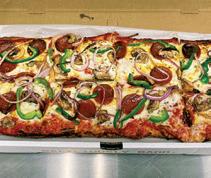


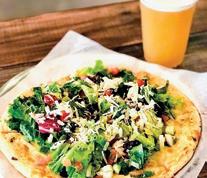

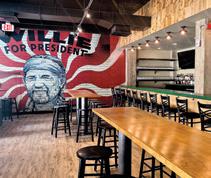

Joel Salamone’s pizza parlor specializes in Buffalostyle “cup-and-char” pepperoni pies (so named for pepperoni slices that curl up) and Buffalo chicken wings. Opened in early March (Falls Church) and June 30 (McLean). 346 W. Broad St., Falls Church; 6263 Old Dominion Drive, McLean; baddpizza.com
Giuseppe and Mario Lanzone started their food truck seven years ago. Now you can grab their empanadas, alfajores and Peruvian coffee from The Stand in Crystal City. Opened April 28. 1601 Crystal Drive, Arlington, peruvianbrothers.com
Signature tacos at Graham Bartlett’s Shirlington taqueria include orange Fanta pork carnitas with habanero and pineapple; and a “chile relleno” rendition with cheese, roasted poblano peppers, chipotle salsa and tempura flakes. Opened May 5. 4041 Campbell Ave., Arlington, tacoandpina.com
A joint venture of Solace Brewing Co., restaurateurs Ian and Eric Hilton, and Blackfinn Ameripub co-founder Steve Ryan, the microbrewery is turning out house-brewed suds, fried chicken, fries and woodfired pizza in the former Mad Fox space. Opened June 17. 444 W. Broad St., Falls Church, solaceoutpost.com
Helmed by executive chef Brendan L’Etoile (Chez Billy Sud) in partnership with Ian and Eric Hilton, the French bistro in the former Cassatt’s Café space in Lee Heights is cooking up rillettes, boudin blanc sausage and chicken confit. Opened June 25. 4536 Lee Highway, Arlington, cafecollineva.com
A country-western saloon with live piano music, this Clarendon newcomer (the latest from Copperwood Tavern and Dudley’s owner Reese Gardner) slings draft brews, mason-jar margaritas, steaks, burgers, local seafood and Southern fare. Opened July 24. 1101 N. Highland St., Arlington, thepinemoor.com
The ’cue joint is owned by pitmaster Andrew Darneille, whose Smokecraft Championship BBQ team won more than 70 festival awards in 2019. Feast on pork belly burnt ends, smoked crabcakes, wagyu brisket and St. Louis ribs. Opened July 31. 1051 N. Highland St., Arlington, smokecraftbbq.com
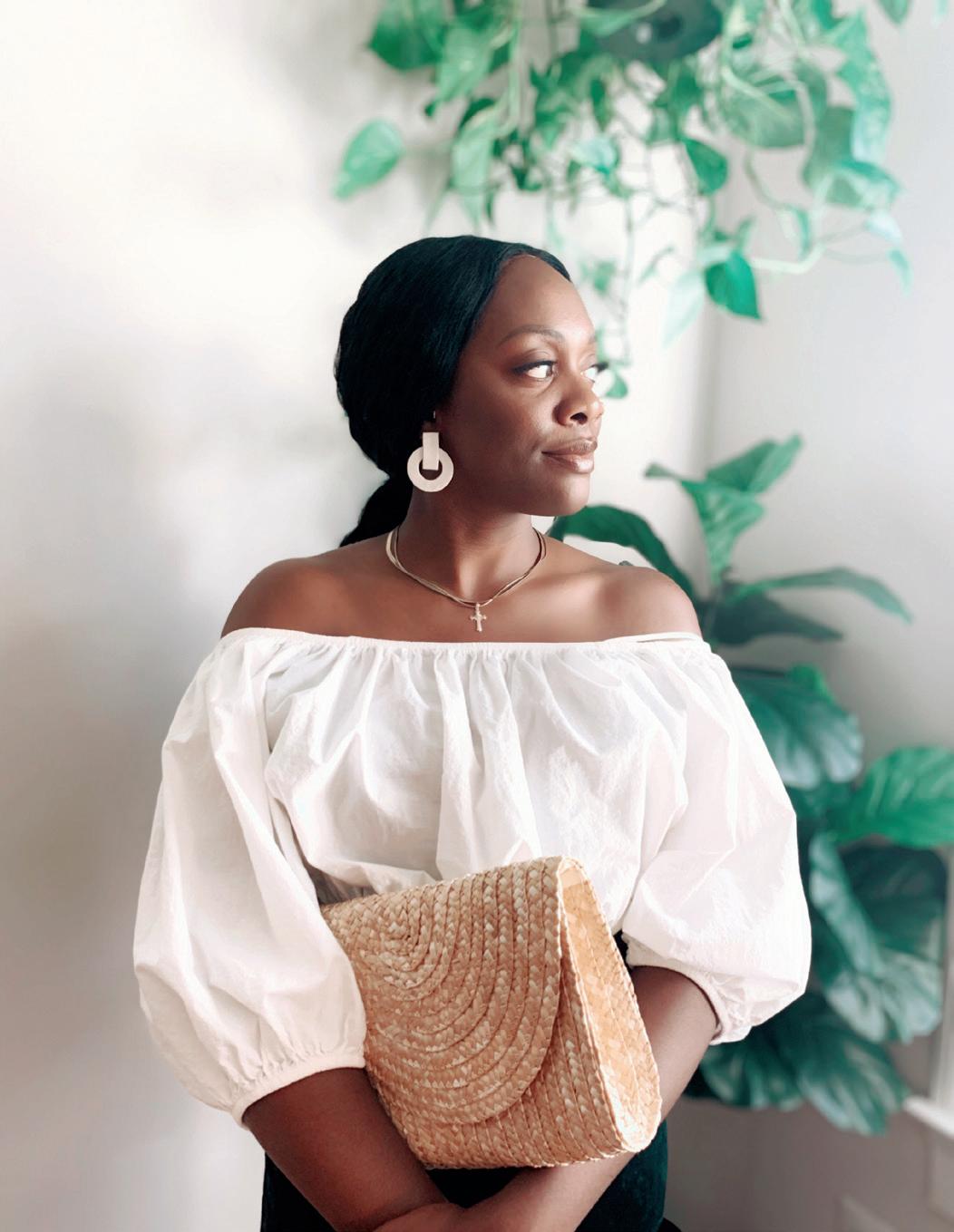
Khadeejah Honesty isn’t just dreaming of the places she’d like to visit someday. She’s creating jewelry inspired by those locales. And her one-ofa-kind statement pieces have developed quite a following.
“I pull from a lot of places that are biblical, like Jerusalem,” says the Arlington-based artist, who launched her business, Soultry, in April 2019. “In that case I went for sandy tones with a marbled effect to get that desert feeling.”
Another collection, called “Eden,” featured bright colors evoking gardens and flowers. Most items are modestly priced at $30.
Honesty works in clay, having perfected a baking technique that leaves her pieces flexible and durable. A single mom with a 5-year-old daughter, she maintains a studio at her home in Colonial Village and normally sells at local farmers markets and craft fairs, but during the pandemic she’s moved most of her transactions online. It hasn’t put a damper on sales. The last couple of collections sold out soon after they were released.
She also makes and sells a line of natural, smallbatch skin care products, including shea body butter, facial masks and lip balm.
And she’s finding ways to give back. All of the proceeds from her “Joy” collection, for example, are providing financial support to close friends who are looking to adopt a baby.
“I don’t have money to donate, but I can use my artistry to bring joy to people,” Honesty says. “The humanitarian aspect of my company is something I plan to continue. I’ll be teaming up with other [artisans] to create a community of collaboration over competition. I’m big on that. Celebrating people and knowing there is enough space for everyone.”
As of this interview, Honesty was working on a new jewelry collection evoking the Greek isles— think azure water and whitewashed buildings— with plans for a midsummer release.
How is she coping with the uncertainty of the times? “My faith carries me,” she says. “I’ve been reading, meditating and spending a lot of time with my daughter, enjoying that we get to see each other every day. There are things happening that are beyond me and greater than me. We have to wait this out.” soultrybrand.com



It’s one of Zara González Hoang’s favorite childhood memories: sitting on the floor with her dad, drawing pictures. “My mom was a teacher so we always had materials at home, and my dad was very artistic. I liked to draw horses and he liked to draw boats,” says the illustrator, whose repertoire later expanded to include “animals and monsters and stories I made up in my head and turned into little books.”
Now a mother of two in Falls Church, Hoang is sharing her lifelong love of doodling with a series of free, downloadable coloring pages and drawing activities for kids—call it an antidote to pandemic malaise—on her website, zaralikestodraw.com.
She also recently wrote and illustrated a children’s book, A New Kind of Wild (Dial Books, April 2020), a story about “imagination, the magic of friendship, and all the different ways we make a new place feel like home.”
Earlier in her career, Hoang worked in the creative departments of several ad agencies and for a company, Duck Duck Moose (later acquired by Khan Academy), that designed apps for kids. These days she’s focusing mostly on writing and illustrating kids’ books, but she also sells whimsical art prints and greeting cards through her freelance business, Mankaco (etsy.com/shop/ mankaco). Manka means “little rascal” in Polish.







“Heirloom furniture” typically conjures up images of things that are old, but in Jeff Spugnardi’s shop, the lineage starts now.
The Arlington woodworker is handcrafting the bespoke rocking chairs, rustic dining tables and cedar-lined chests that he hopes will be passed down through generations to come. Sometimes clients come to his studio and help build them, turning a commission into a learning opportunity.
A former Marine—he was stationed at Camp Lejeune in North Carolina—and onetime e-commerce entrepreneur, Spugnardi has a woodshop in his Leeway Overlee home, where you’ll often find him covered in sawdust (he calls it “man glitter”) and where he’s been making custom pieces inspired by the designs of legendary furniture-makers such as Le Corbusier, Sam Maloof and George Nakashima since 2008.
They’re pricey (dining room chairs start at $1,200; tables and
rocking chairs are $4,000 and up), but they are built to last, offering an alternative to the cheap pressboard stuff that so often ends up in the trash.
A Spugnardi rocking chair is a labor-intensive endeavor, taking 80 shop hours to build. It’s one of the most complicated pieces of furniture to make, he explains, because of its many curves, including an ergonomically sculpted seat and “flexible, free-floating back braces.” Spugnardi estimates he has made more than 80 of them. Each comes with a custom footstool.
Fallen trees in and around Arlington (cherry, maple, walnut) provide the raw material for many of his hardwood creations. “Often, there’s a provenance to this tree,” he says. “It fell in someone’s backyard, it goes to the kiln, and then we make fine furniture out of that wood. It goes full circle.”
His designs frequently include “live edges,” knots and checks



(cracks) to show off the natural characteristics of the wood. Some pieces incorporate other materials, too, such as glass and carbon fiber.
Now that more local residents are working from home, demand for quality office furniture has spiked, Spugnardi says, and he is plenty busy. “The temporary desks and chairs that people bought from Ikea in college aren’t working,” he says. “They want something custom and sized to fit a certain space. Maybe they want an adjustable-height desk. Some want a nicer chair.”
One of his latest designs is a wheeled office chair that promises the same ergonomic support and comfort of a rocking chair.
What happens to all of the scrap wood left over from furniture projects? Smaller items emanating from Spugnardi’s tool chest have included humidors, side tables and chess tables. He also sells cutting boards at Westover Market. spugnardi.com n


















































































































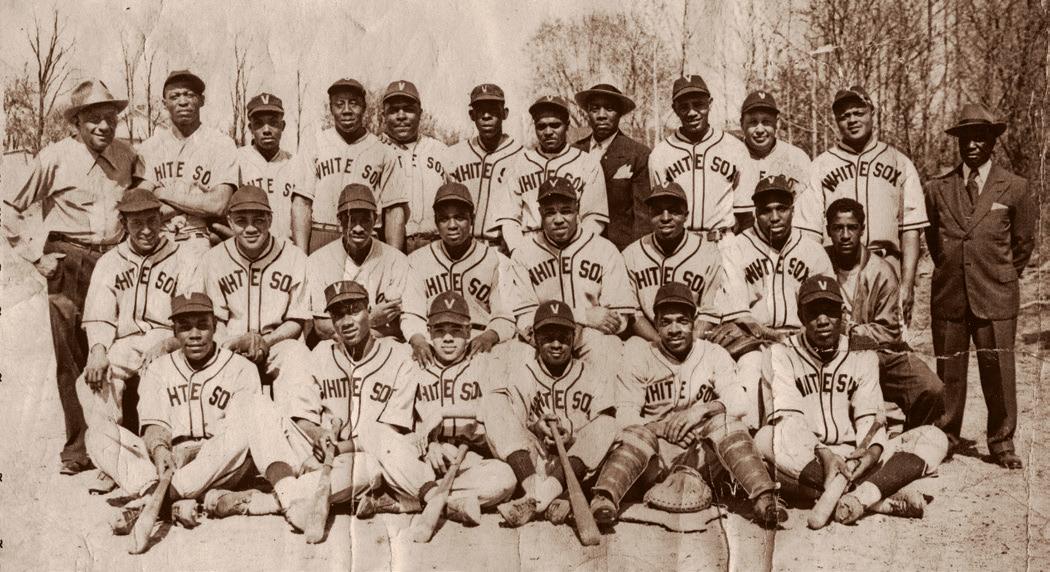
White baseball teams weren’t the only game in town in the first half of the 20th century.
The Washington Senators may have won the World Series in 1924, but they weren’t the only game in town. Starting in about 1910 and continuing just past World War II, Black baseball clubs like the Old Virginia Blues, Green Valley Black Sox, Virginia White Sox, Arlington Athletics and Green Valley Quick Steps were big draws and a popular summer pastime for Arlington’s Black community. They competed against each other and teams from across the region, including rivals from Georgetown, Anacostia and Annapolis.
Home field was often Green Valley Ball Park, located south of Four Mile Run (now a part of Jennie Dean Park). Arlingtonian James Peyton, an AfricanAmerican foreman at the U.S. Bureau of Engraving and Printing, owned the park, but opened it for public
use. Judging by the sheer number of regional championship games held there, it likely was one of the finest ballparks in the area available to the Black community. Games also were played at a field near today’s High View Park, on land that’s now part of the Virginia Hospital Center campus, as well as at another field near Bailey’s Crossroads.
Game days were major events. Tournaments were sometimes sponsored by The Washington Tribune, a weekly Black newspaper. Local businesses sold snacks while entire families came out to watch the action and socialize with friends.
The 1940s saw the decline of allBlack baseball leagues. Peyton sold his land in 1942, leaving local teams without a place to play. The national Negro leagues, which had been formed in
the 1920s, lost popularity shortly after Jackie Robinson integrated professional baseball in 1947.
But for a time, youth ball clubs continued the Green Valley baseball tradition in Arlington. Organized by Ernest Johnson, director of Negro recreation for the Arlington Department of Parks and Recreation, youth games were played throughout the 1950s and into the 1960s at the newly christened Jennie Dean Park, named after a former enslaved woman who had founded one of the only secondary schools in Northern Virginia for African Americans.
The park—which included baseball and softball diamonds, three grandstand sections, a basketball court, horseshoe pits, picnic tables and an outdoor fireplace—was conceived as a $300,000, 10-acre recreation area that was to be the only one of its kind for Arlington’s Black community. Many of its proposed features were never built, but the baseball field did eventually get floodlights.
In 1961, Arlington Public Schools integrated its athletic programs and, with them, all county-sponsored sports, allowing Black and white sluggers to play ball together. n


